Planning a trip to Greece: The ultimate guide
Some links in this post are affiliate links, which means I earn a small commission if you book through them, at no extra cost to you. This support helps keep this site running, the suitcase wheels spinning, and lets me keep writing ultra-detailed travel guides that are free for you to use to plan your next adventure.
Is it finally time to tick Greece off your bucket list? This post covers everything you need to know before planning a trip to Greece, from logistical tips and accommodation suggestions to budget guidelines and loads more.
It’s a surprise to no one that Greece is one of the most visited countries in the entire world (it’s #13 in 2024), and in my opinion the hype is absolutely well deserved. Beaches so perfect you’ll think they’re Photoshopped, ancient ruins that’ll make you feel like you’ve travelled back to the Dark Ages, and hospitality so warm and friendly you’ll feel right at home.
But with countless landmarks to see, more than 200 islands to discover, and an ever-growing tourism industry (for better or for worse), planning a trip to Greece can be a bit of a mission.
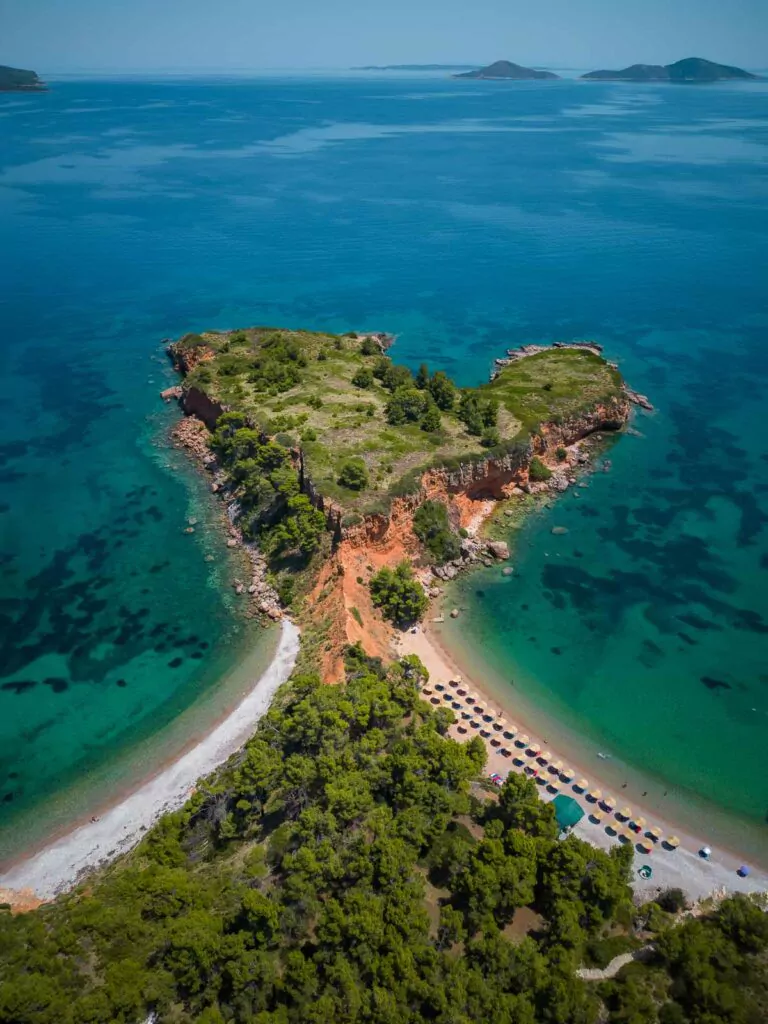
Santorini and Mykonos are undeniably beautiful but those prices are eye-watering, a Greek summer sounds dreamy until you realise you’ll be sharing a small island with tens of thousands of others, and figuring out the perfect Greek island hopping plan is harder than it sounds!
Don’t stress, I’m going to share all my knowledge from six trips to 14 different islands in this Mediterranean paradise, to help you plan and prepare for visiting Greece for the first time.
I’ll run you through tried-and-true ways to get the best bang for your buck Euro, logistical tips that’ll make your trip smooth from start to finish, and my personal suggestions for things to see, food to eat and places to stay that will take your trip to the next level.
This complete guide to planning a trip to Greece covers everything you need to know before you go, and I guarantee it’ll save you money, stress and time. Let’s get started on planning the ultimate Greek adventure!
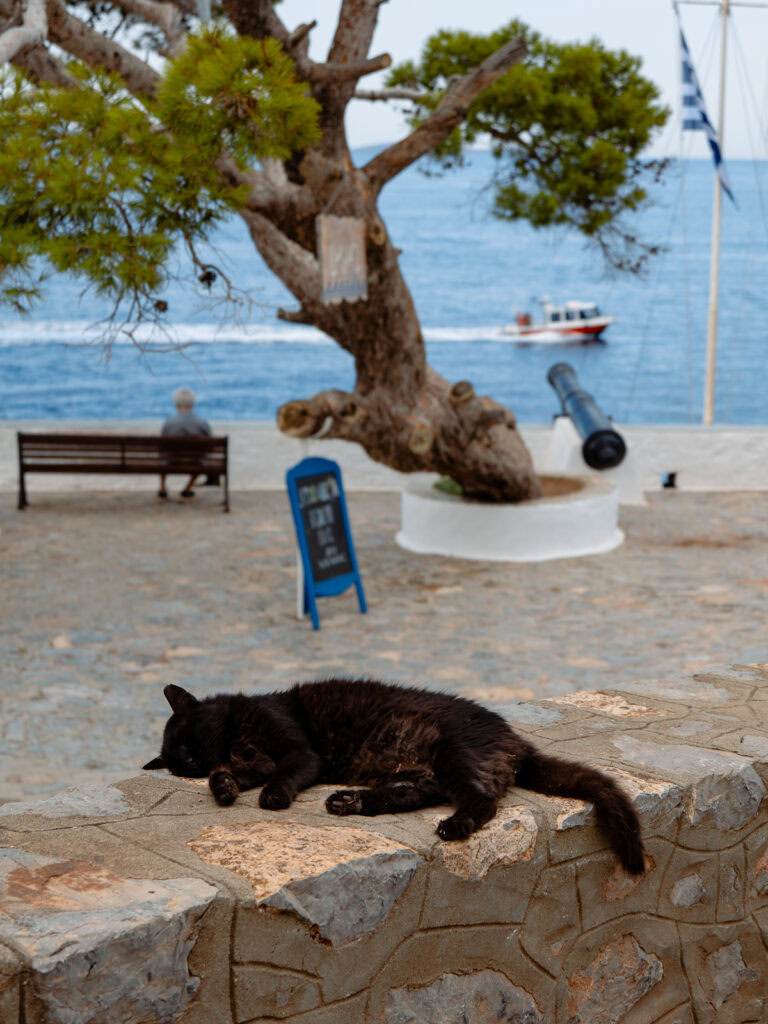
Please note this blog contains affiliate links that give me a small commission from any purchase, at no extra cost to you. I would never advertise anything I wouldn’t use myself, and this commission helps Finding Alexx reach more travellers. Thank you for supporting me!
When to visit Greece
Your Greece experience will depend entirely on when you choose to visit, so here’s a quick breakdown on what to expect at different times of the year.
Greece in peak season
I’m not going to sugar-coat this, Greece in summer is pretty much hell on earth.
Crowds at every beach, viewpoint and landmark, prices that will destroy your travel budget in a matter of days, and heatwaves so intense that they literally close the Acropolis because too many people faint from overheating. The country does not need more tourism in these months, you’ll be adding to already immense pressure on their infrastructure and your experience will be impacted too.
If you can avoid visiting Greece in July and August, please do.
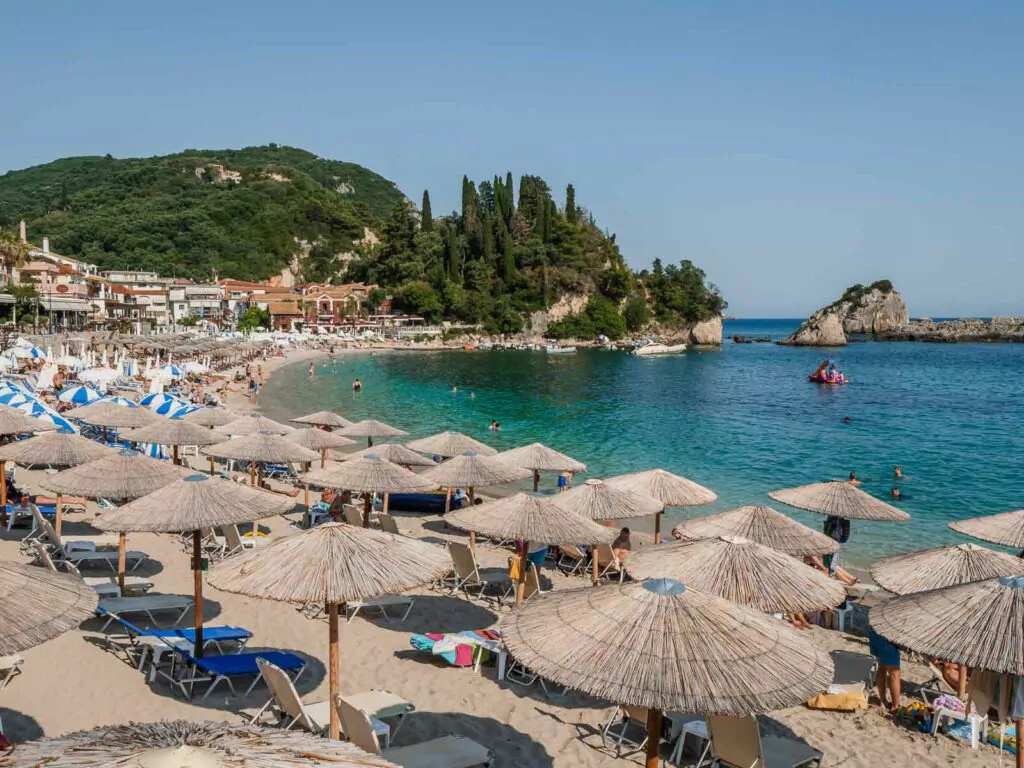
If you can’t visit outside of these months for work/school/whatever reason, here are some ways to maximise your chances of your holiday being unforgettable for all the right reasons:
- Visit lesser-known islands, I’ve listed a bunch below but there are 200+ to choose from
- Book a week-long sailing tour like MedSailors (for travellers in their 20s and 30s) or Yacht Getaways (all ages) to see a different destination each day without the nightmare of inter-island ferries or insane accommodation prices
- Plan your trip well in advance, book things 6+ months ahead of travel because prices will just go up and up and up
- Be prepared for crowds, because in July and August the chances of you finding a single beach, restaurant or sunset spot all to yourself are minimal. Know what you’re getting yourself into and it’ll be less of a disappointment.
- Avoid Athens at all costs, use it as a transit hub if necessary but don’t plan to sight-see. Athens’ average high in July and August is 33° and 40°+ temps are common, every year there are headlines about both locals and tourists dying from heatstroke.
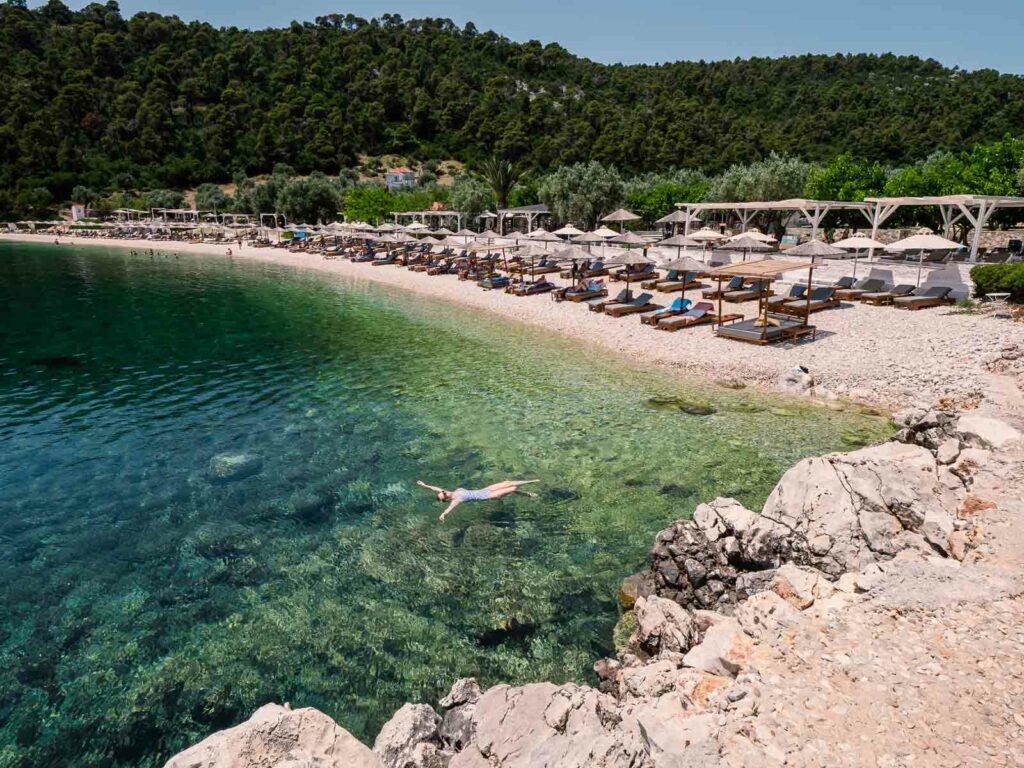
Greece in the shoulder season
I’m a proud Shoulder Season Ambassador (not an official title but it should be!), and I literally plan a 9-10 month round the world trip every year to visit destinations outside of their high season.
Shoulder season is 👑 king 👑 in popular places like Greece, and visiting in May/June and September/October will be exponentially better in terms of busy-ness, weather and budget. ‘Euro Shoulder’ doesn’t have the same ring to it as ‘Euro Summer’, but I promise your wallet, your camera roll and your hypothalamus will thank you.
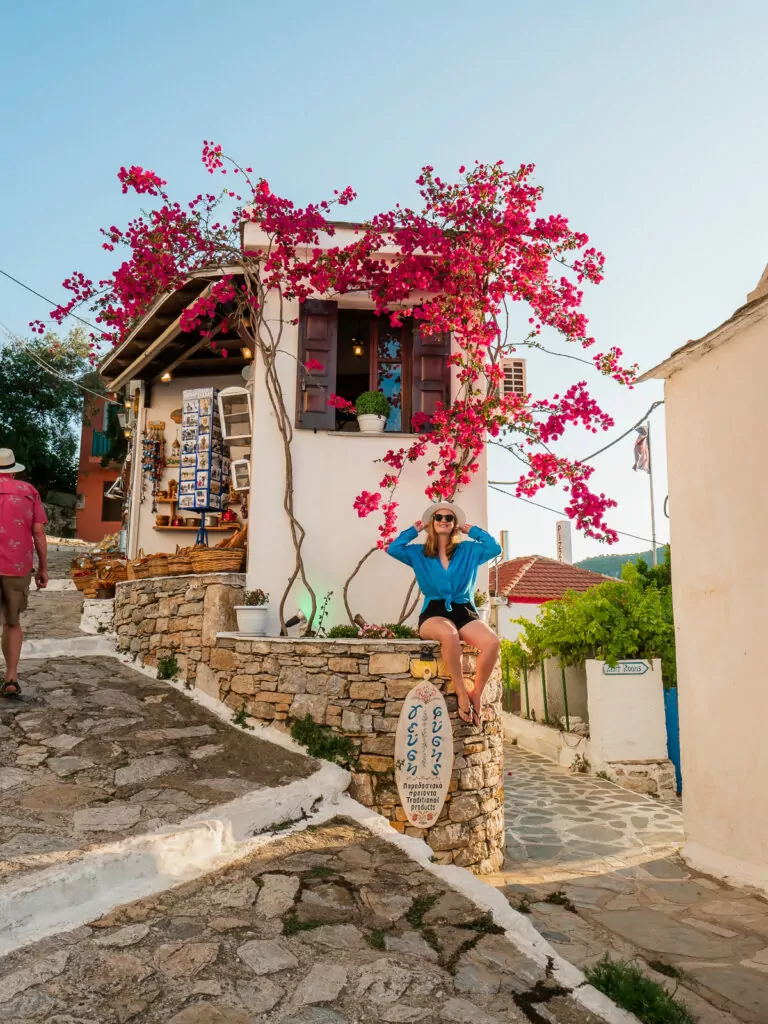
What counts as shoulder season does depend on where in Greece you’re visiting though:
- The main hot spots like Santorini, Mykonos, Crete and Corfu have a prolonged peak season, they get busy busy busy from early June and won’t slow down until late September. Shoulder season in these islands is April/May and October, where most things will still be open* but crowds are noticeably thinner and prices are cheaper.
- For smaller or lesser known islands, July/August is the peak season and June/September are the shoulder months. By mid-September on local, non-touristy islands you might find restaurants, hotels and activities are shutting up shop for the season, so just research the specific islands you’re looking at before you book.
*The one caveat to this is that Mykonos beach clubs have most of their major events and international DJs performing in the summer months, so if this is your top priority then check gig dates in advance. Smaller beach clubs might shut towards the end of September, in October there will still be clubs open but you might not have the same range to choose from.
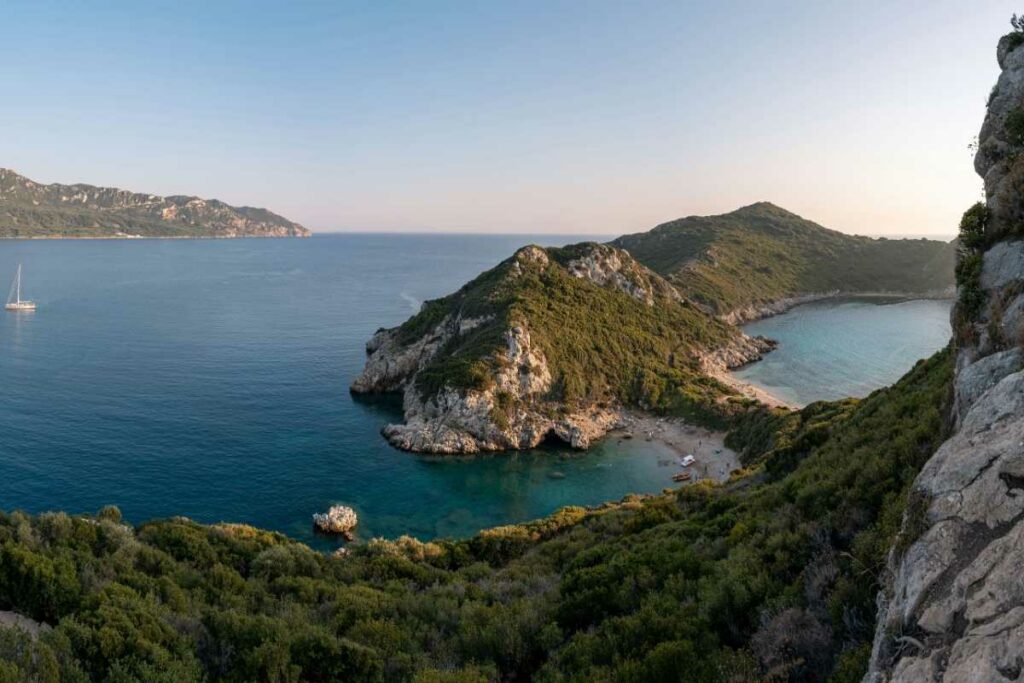
Greece in the low season
Greece’s low season runs from November to March for the popular islands, and from October to April for the smaller islands.
Santorini, Crete and the other main islands are year-round destinations, though low season comes with fewer options, reduced ferry timetables and more rainfall.
There are always hotels and restaurants ready to service travellers trying to find some winter sun though, so if you’re looking to experience Greece on a budget without the crowds (and don’t mind compromising on weather and activities) then the low season might be perfect.

For islands away from the tourist trail, you’ll find that in the low season they are pretty much closed for business, with most hotels shutting up shop and infrastructure slowed right down to support the local population only.
If you’re looking for a perfectly peaceful Mediterranean escape and are happy to self-cater and rent a car to explore, low season on one of the quieter islands would be an interesting experience!
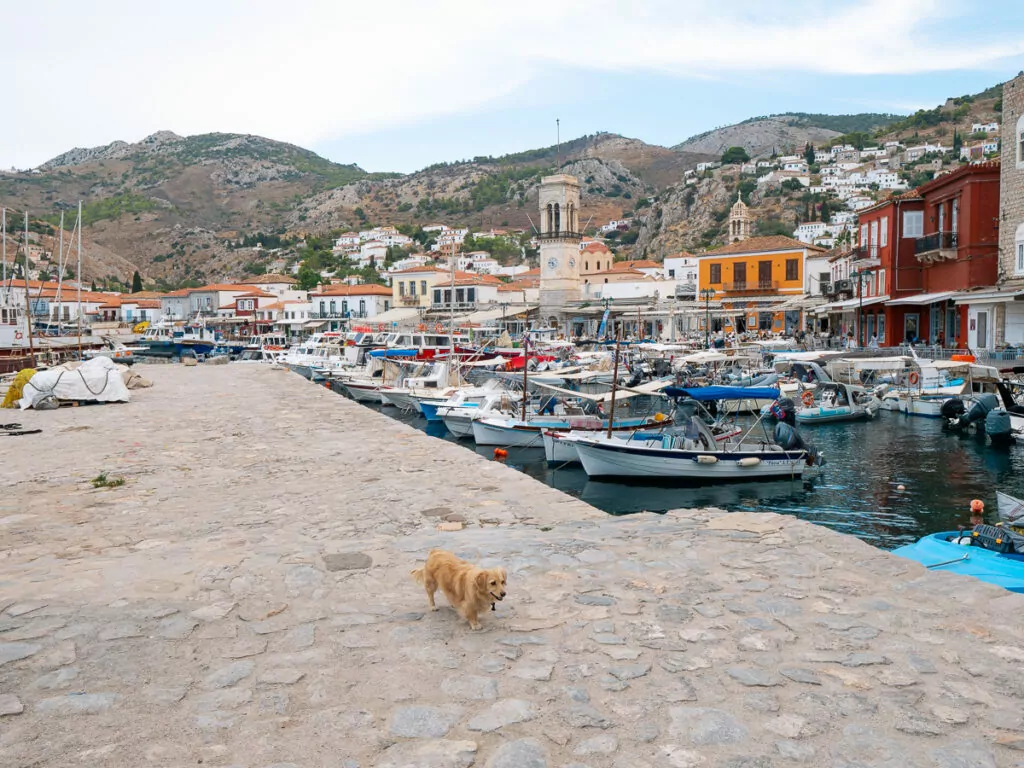
Weather in Greece
Greece’s weather patterns vary across the country, with the mainland’s mercury typically higher than what you’d find on the islands. Here’s what you can expect throughout the year:
☀️ Summer (June-August): Hot and sunny, average daily temperatures from 28-35°C and average ocean temps of 24-26°C, lush for island hopping but not so fun for mainland activities. Wildfires can happen, in summer 2023 and 2024 there were fires in Athens, Corfu and Rhodes which caused major disruption and sadly resulted in some fatalities.
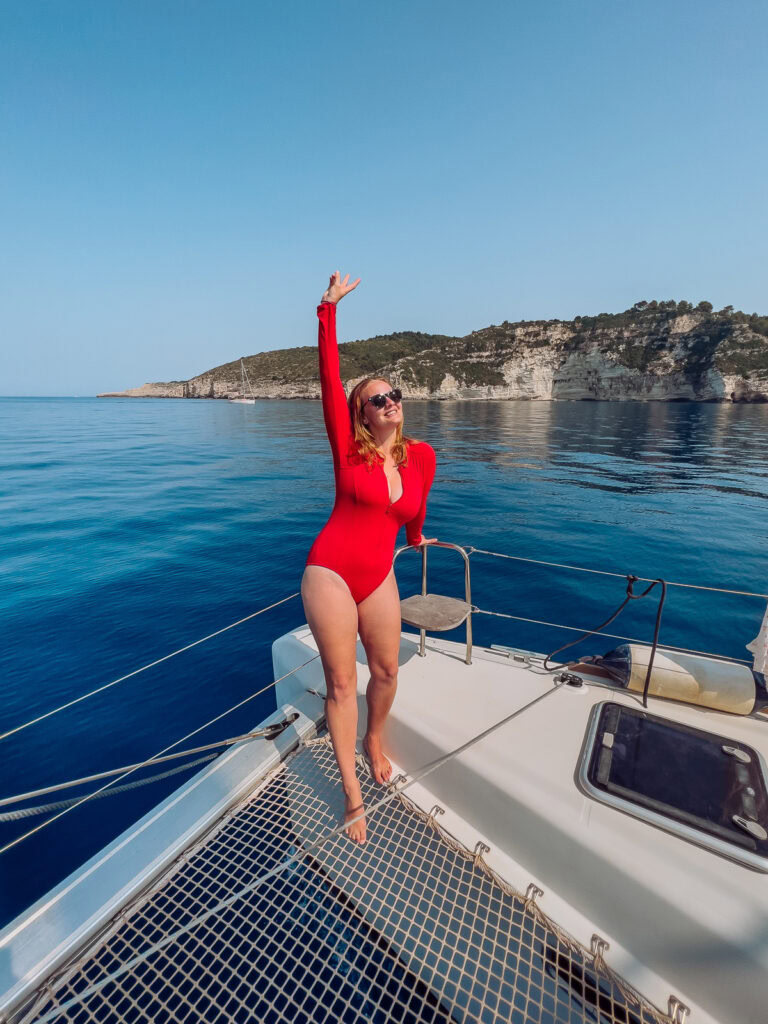
🍂 Autumn (September-November): Mild temperatures from 16-24°C with occasional rain. Sea temperatures stay warm enough for swimming until late October.
🌧️ Winter (December-February): Mild on the islands (around 10-15°C) but the mainland can get very chilly, with snow possible in mountainous regions.
💐 Spring (March-May): Pleasant temperatures (15-25°C), occasional rain showers, lots of wildflowers on the greener islands. Ocean temperatures will still be cold post-winter, usually around 13-16°C until they start heating up from mid-May.
⛈️ Thunderstorms can happen year-round and can wreak havoc with ferry schedules, so it’s important to always leave a buffer day when planning any inter-island trips. They can be seriously spectacular though, Zeus really likes to show off!
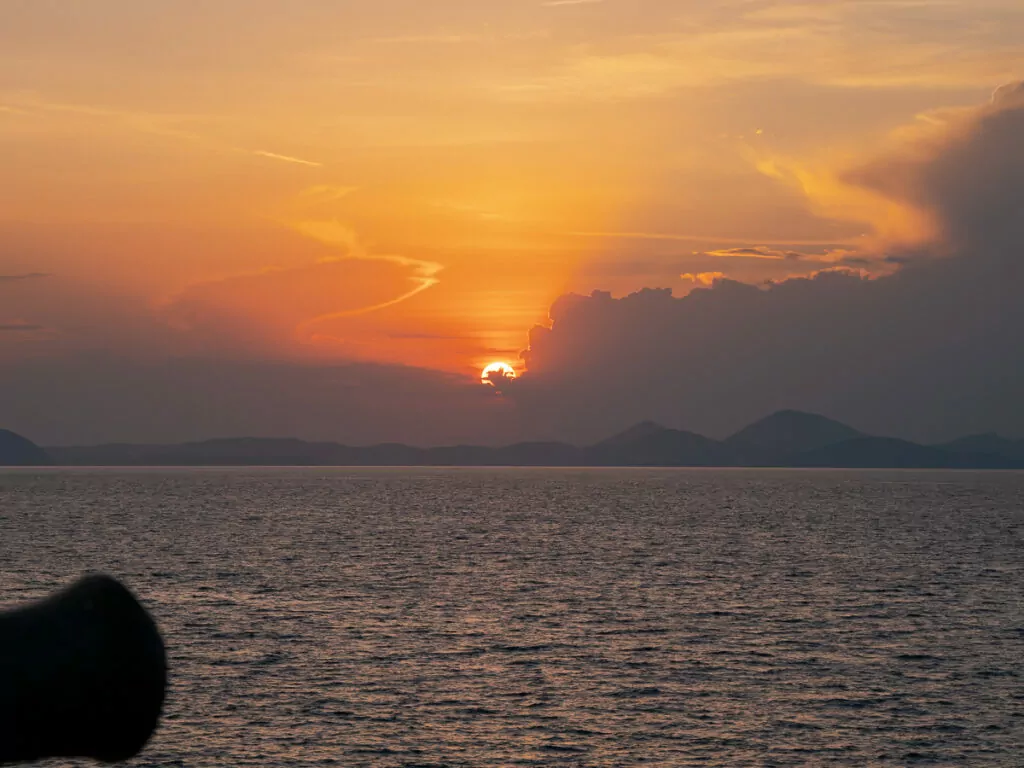
Events and festivals in Greece
Here are some key dates to keep in mind when planning your trip.
- Apokries/Carnival (three weeks before lent): Festivities differ amongst the country but the biggest Apokries events are in Patras and Athens.
- Greek National Day (25 March): Parades, fireworks and performances commemorate the start of the War of Greek Independence.
- Orthodox Easter (April/May): The main religious holiday in Greece, celebrated with huge feasts and processions. They use the Julian Calendar to determine any religiously significant dates though, so they’ll be a few weeks later than Western Easter dates.
- Assumption of the Virgin Mary (15 August): Known as ‘Summer Easter’, another religious celebration and public holiday.
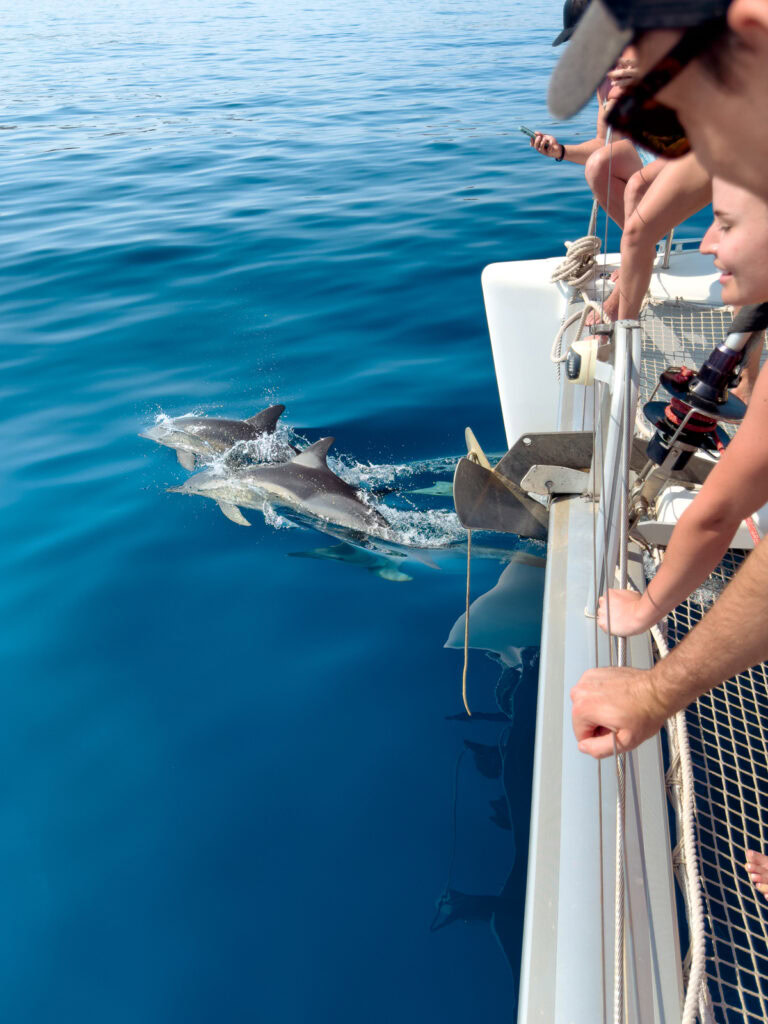
National holidays and religious events can impact transportation schedules and business opening hours on smaller local islands, so double check your travel dates with Greece public holidays before your trip.
So what is the best time to visit Greece?
My top pick for when to go to Greece is June/September for lesser-known islands, and May/October for the major spots like Santorini, Corfu, Crete etc. In these months you’ll get beautiful, warm weather, better value for money, and avoid the over-crowding.
If you’re absolutely tied to peak season dates, try to visit in early July before the Europe school year finishes, and be prepared for sky-high temps and very busy islands.
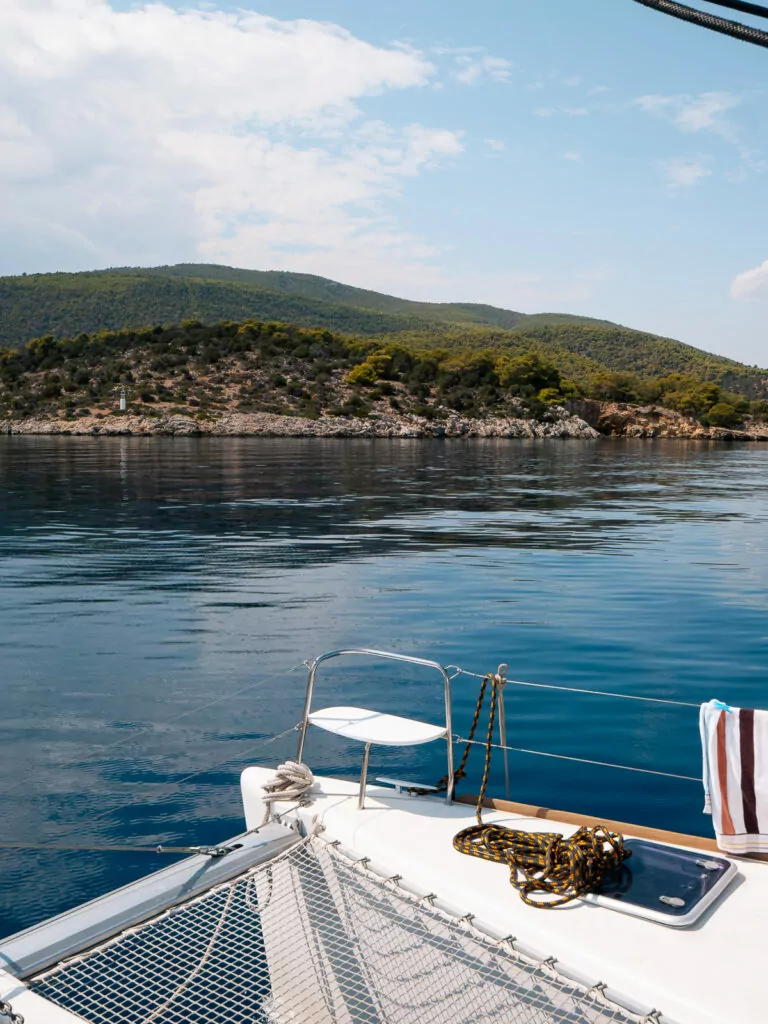
Where to go in Greece
The first step to plan a trip to Greece: Choosing where to go! But with 200+ inhabited islands dotted throughout three different seas, that’s easier said than done. Let’s start with a quick overview of the island groups.
A quick guide to the different island groups in Greece
Cyclades
The most iconic island group in Greece, and by far the busiest.
Main islands are Santorini, Mykonos, Naxos, Ios, Paros and Milos, lesser-known islands include Andros, Tinos, Sifnos and Folegandros.
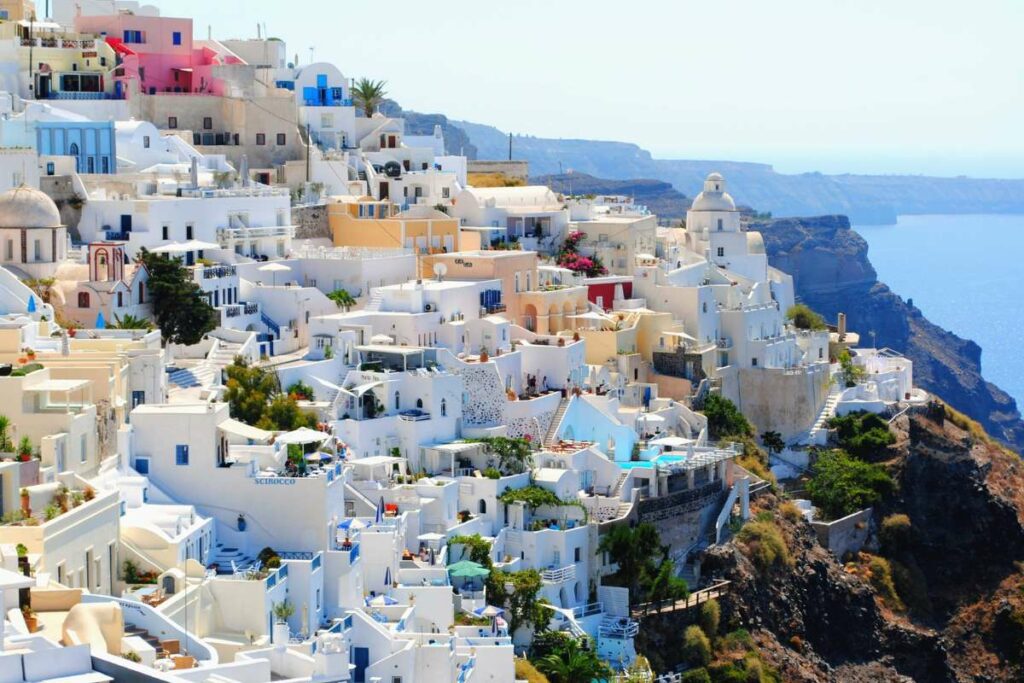
Ionian Islands
Dramatic cliffs, bright blue water and more greenery than other island groups, the best-known Ionian Islands are Corfu, Zakynthos and Kefalonia, and some more under-the-radar ones are Lefkada, Paxos and Ithaca. This is my top destination for a Greece sailing tour.
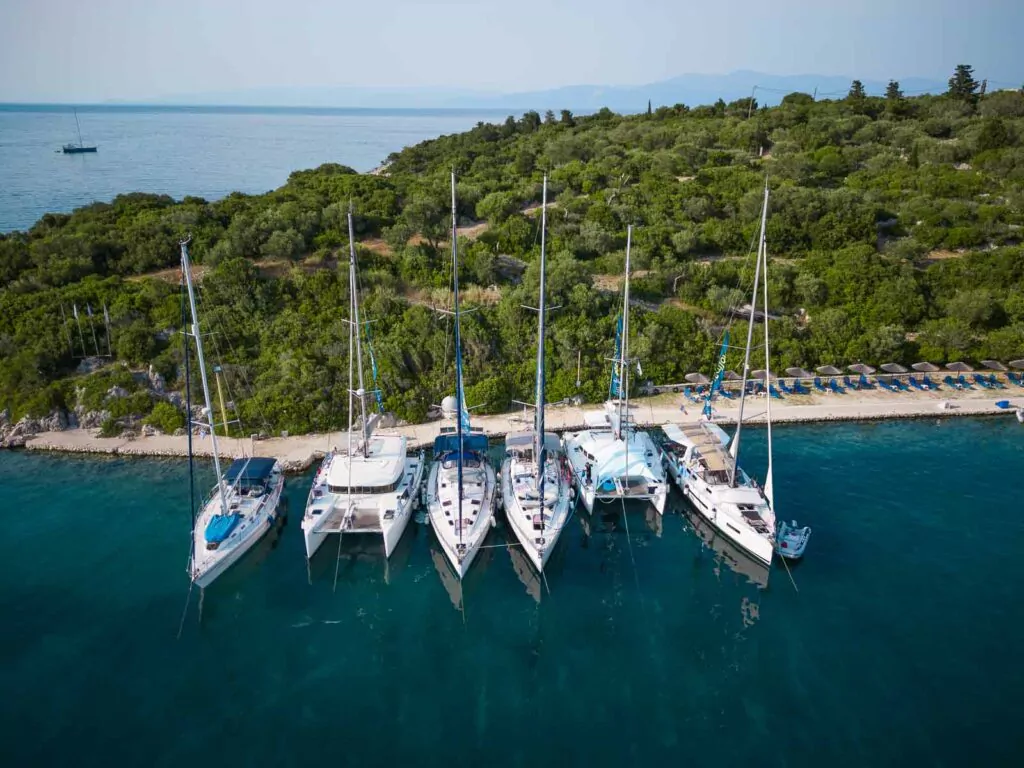
Dodecanese
With colourful, history-rich islands that are much closer to Türkiye than they are to Greece’s mainland, the Dodecanese offer a longer warm season than the other parts of the country.
Main islands are Rhodes and Kos, lesser-known islands are Karpathos, Symi, Kastellorizo and Patmos.
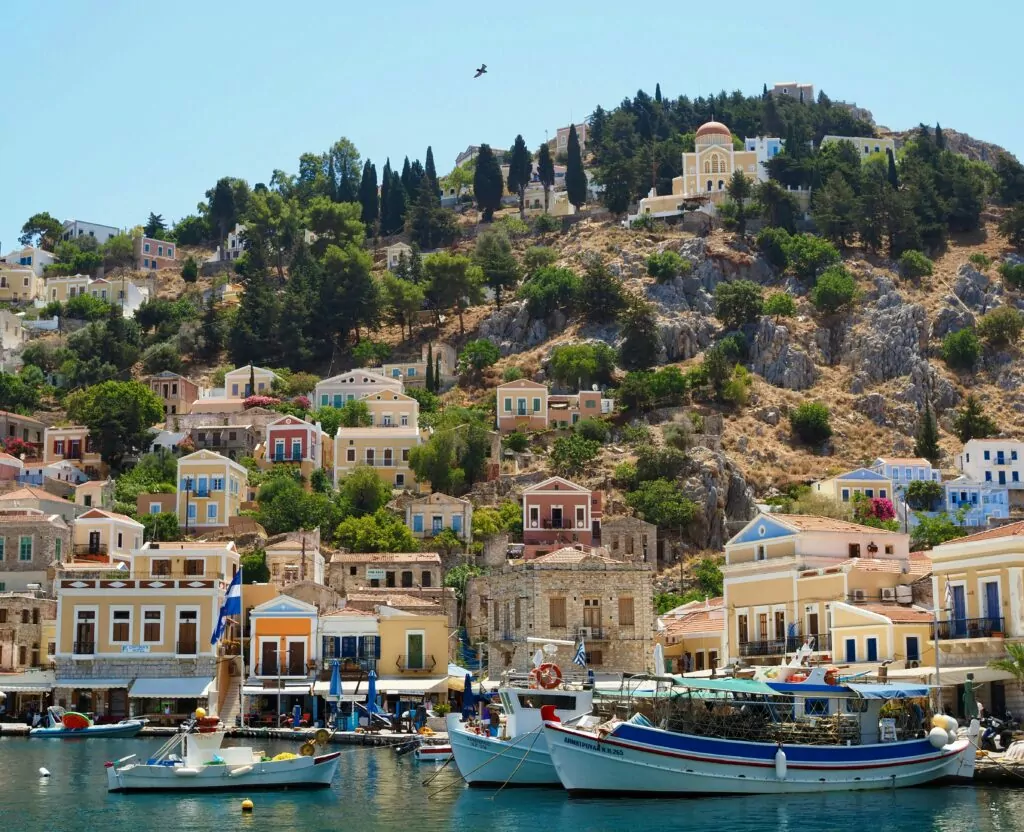
Sporades
Home to one of my all-time favourite Greek Islands, Alonissos, the Sporades Islands are harder to reach but the pay off is fewer people to share them with.
Main islands are Skiathos (the only airport) and Skopelos (Mamma Mia island) which both receive package holiday tourists in summer but nothing like Crete/Corfu/Rhodes, then Alonissos and Skyros are more authentic.
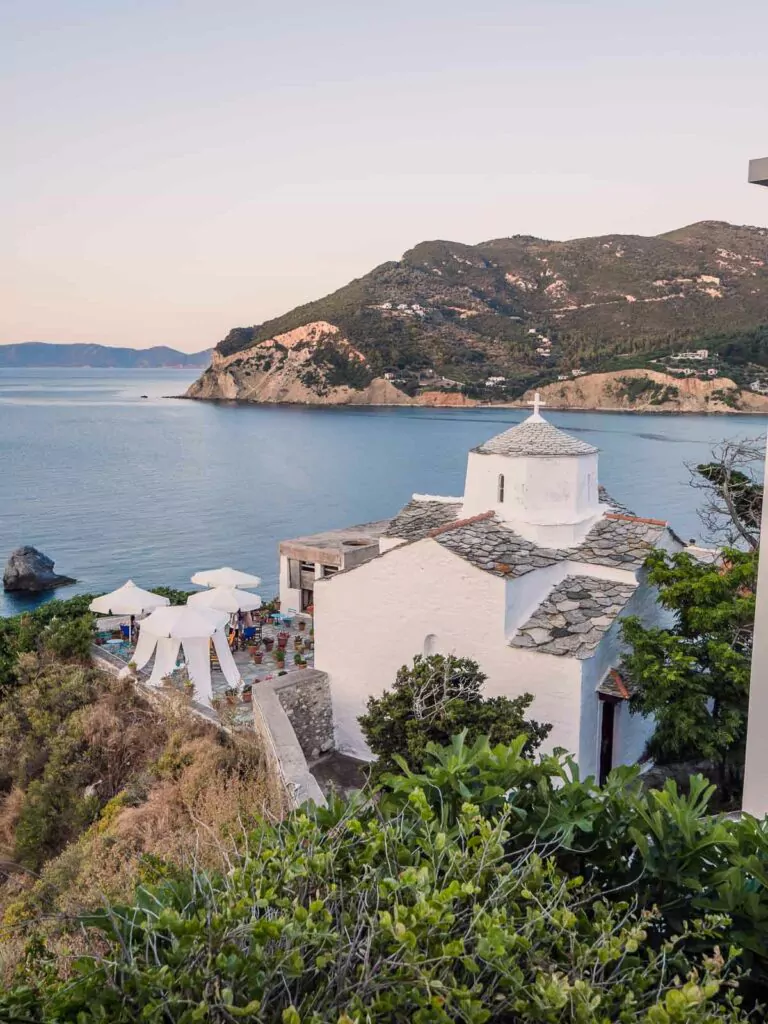
Saronic Islands
Accessible within only a couple of hours from Athens, the Saronic Islands are often overlooked for the glitzy Cyclades or more scenic Ionian Islands, but they’re a great option for a sailing tour or if you’re looking for a more local vibe. The best-known island is probably Hydra (car-free and loads of cats!), other islands are Aegina, Poros, Agistri and Spetses.
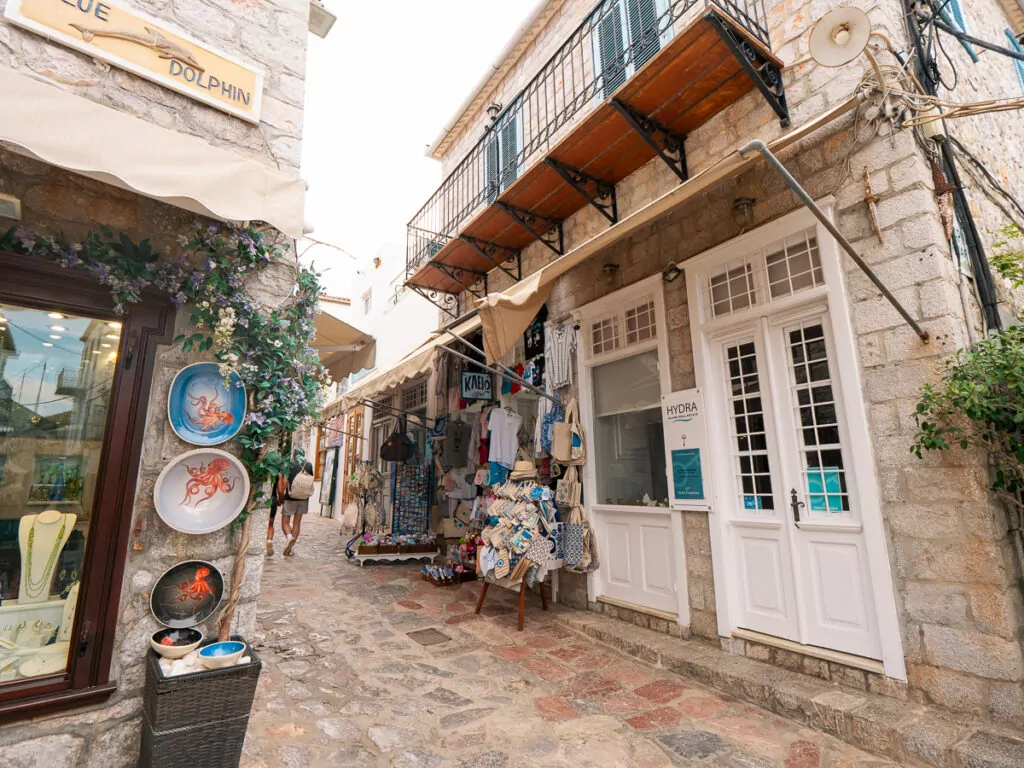
Crete
A single island rather than a group, Crete is huge and deserves its own spot. It’s got some of the best beaches in the world, a thriving food scene and loads of historical sites too. The main cities are Chania and Heraklion, both have airports but they’re 2-2.5h apart by car so don’t book accommodation in the wrong one.
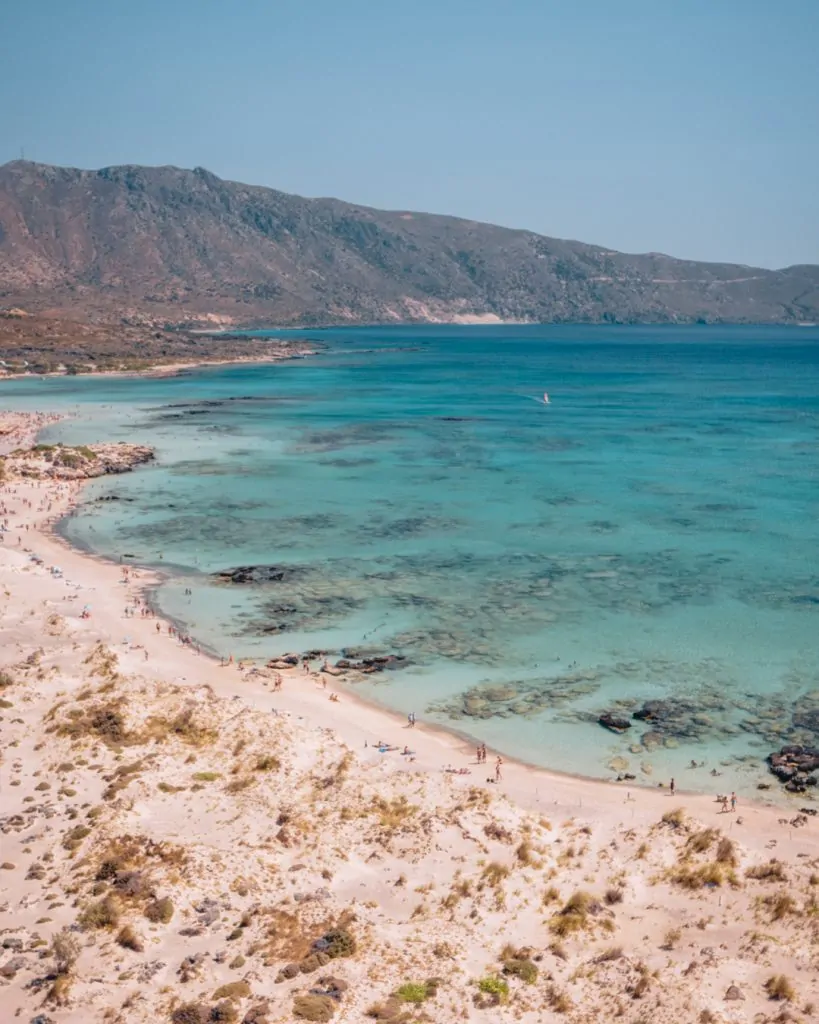
North Aegean Islands
Another less touristy region due to lack of transport links, here you can experience medieval villages, unspoilt beaches and some of the best hiking trails in Greece.
The major islands are Samos, Lesbos, Ikaria and Chios, smaller ones include Limnos, Thassos and Samothrace.
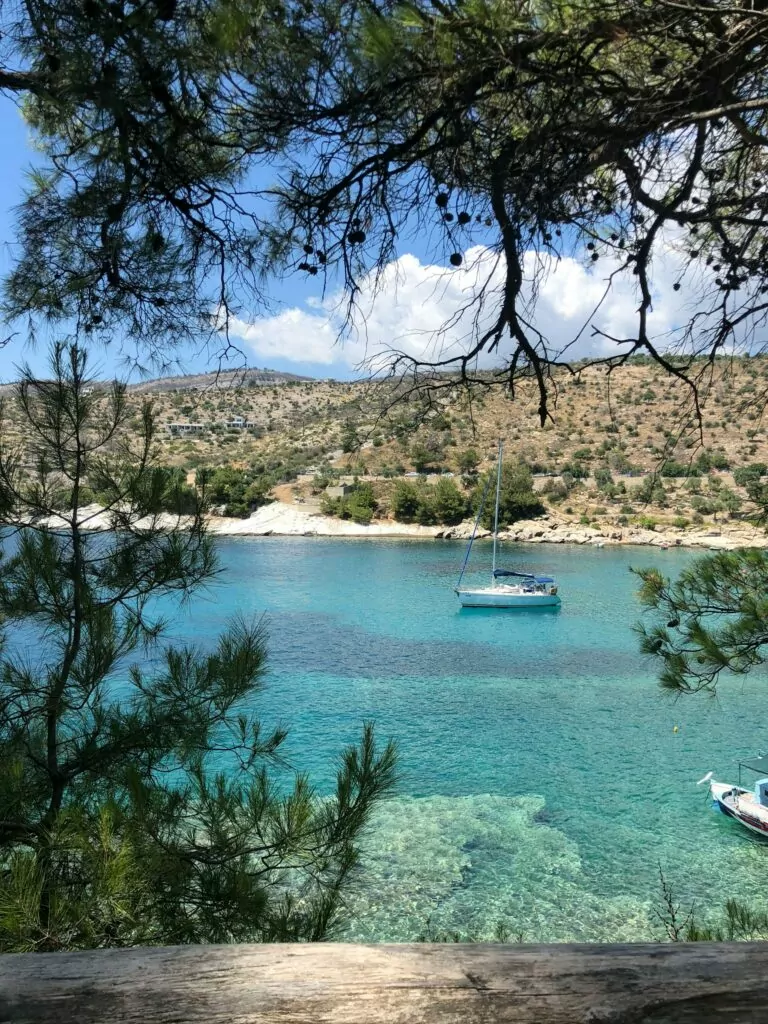
The popular Greek Islands
The islands below are the bucket list ones that you’ve probably seen on social media. They have better transport links (some have their own airport), longer high seasons, modern tourism infrastructure but also higher prices and far more visitors.
They’re famous for a reason, but one of my absolute top Greek Islands travel tips is to not only consider these ones.
- Santorini (Cyclades): No intro needed, those white-walled blue-domed buildings are one of the most iconic tourism scenes in history.
- Mykonos (Cyclades): Party central with fancy hotels, vibey beach clubs and a super cute maze-like old town.
- Crete: Huge island with loads to see, do and eat, truly something for everyone! Best explored by rental car.
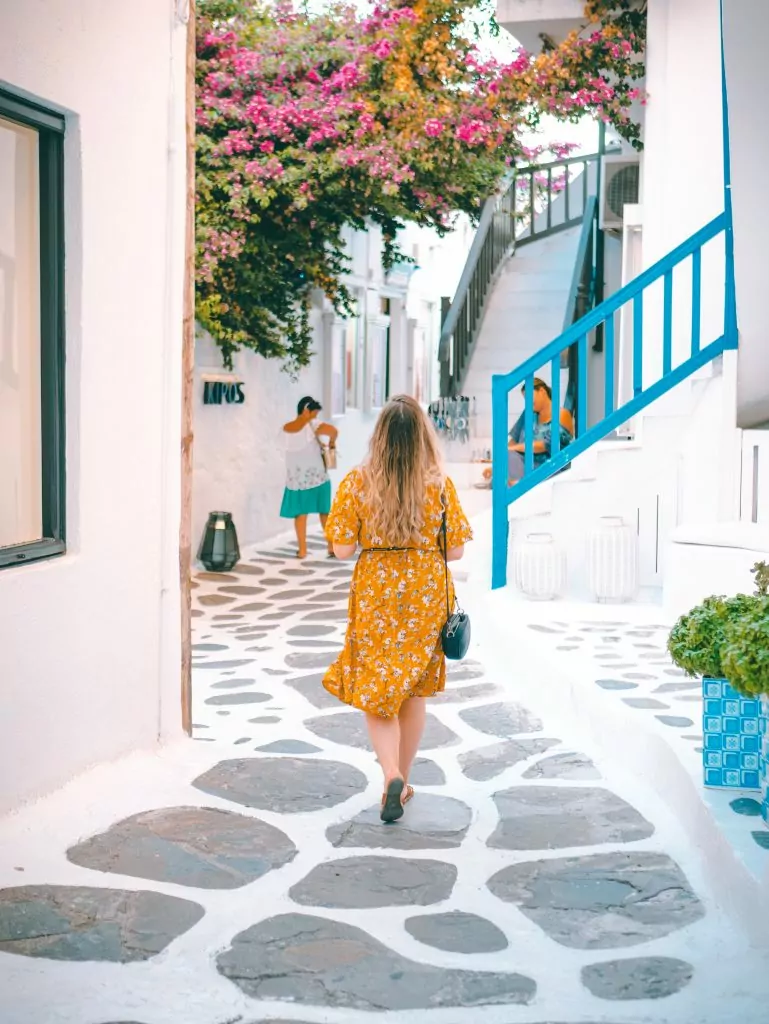
- Rhodes (Dodecanese): A popular package holiday destination, interesting vibe due to the blend of ancient Greek, Roman, Byzantine and medieval influences.
- Zakynthos (Ionian): Home to Shipwreck Beach!
- Corfu (Ionian): Gateway to the stunning Ionian Islands with a charming old town and Venetian fortress. The best beaches are only accessible by boat, book a sailing tour (either a day trip or an epic yacht week).
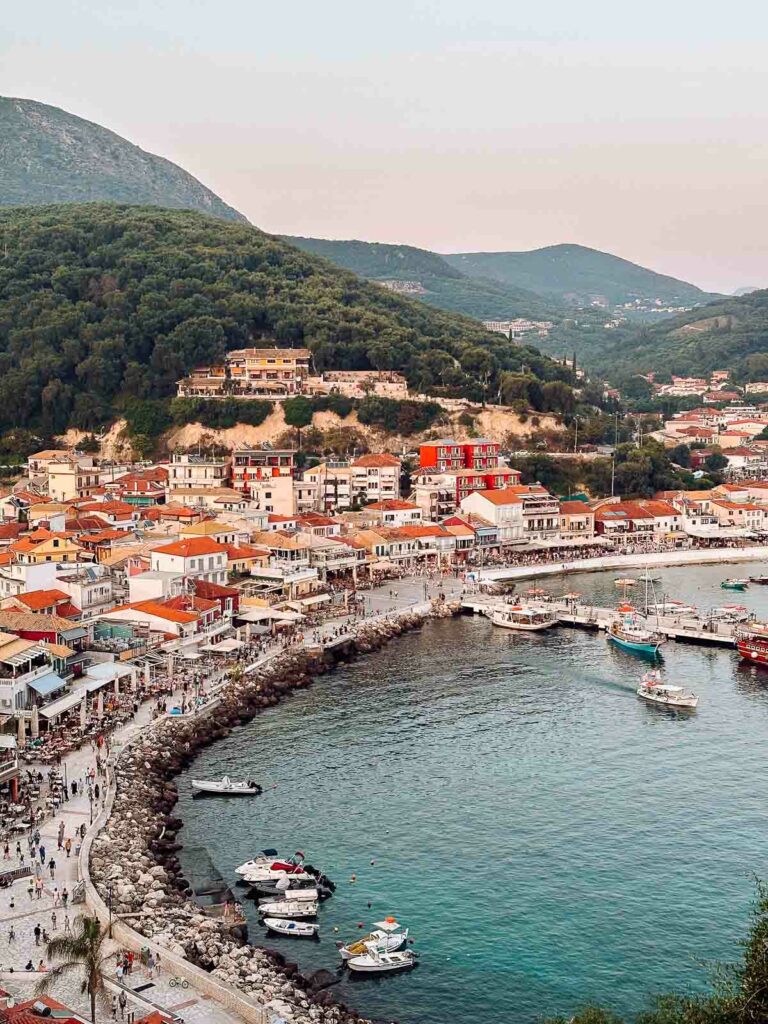
- Skiathos (Sporades): Another fly-and-flop island with package tourists arriving by the jet-load in July/August, but more chill in June/September.
- Milos (Cyclades): With moon-like landscapes and dreamy swim spots, this one is gaining popularity quickly but still much more chill than its famous neighbours Santorini and Mykonos.
- Paros (Cyclades): Photogenic villages, vibey nightlife, popular with return visitors who want to avoid the chaos of the main hot spots.
- Naxos (Cyclades): Super laidback, family-friendly, more casual and local vibe.
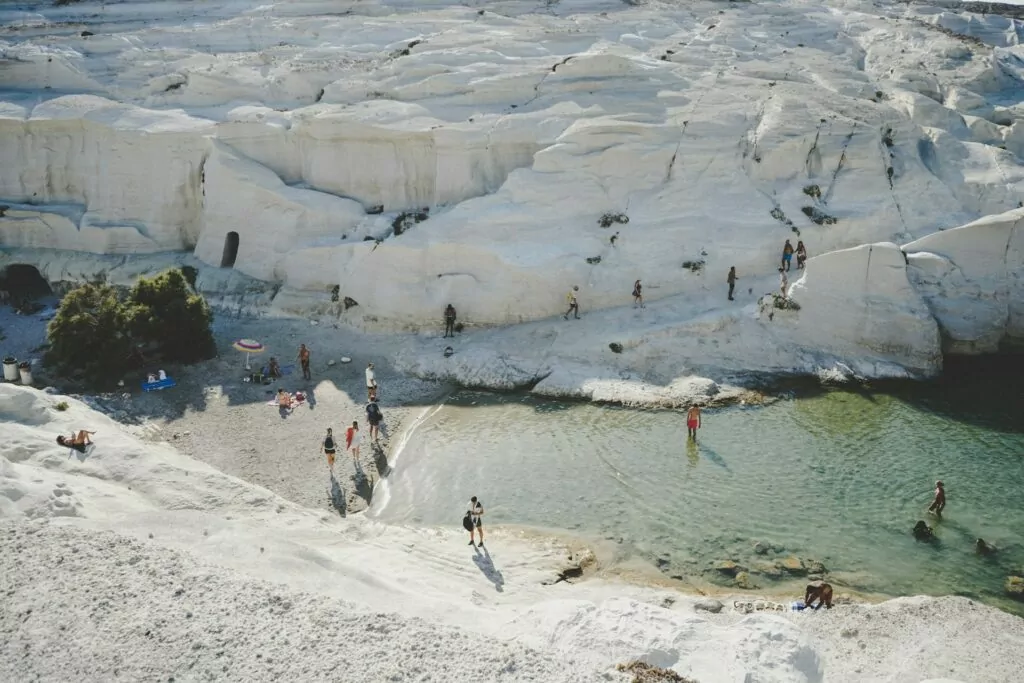
- Kos (Dodecanese): An international airport makes this another easily accessible option in the Dodecanese, with quick ferry connections to Bodrum in Türkiye.
- Ios (Cyclades): Backpacker favourite and party hot spot.
- Kefalonia (Ionian): Lush mountain scenery, epic sea caves and lots of watersports on offer, and it’s a big island so doesn’t feel too busy.
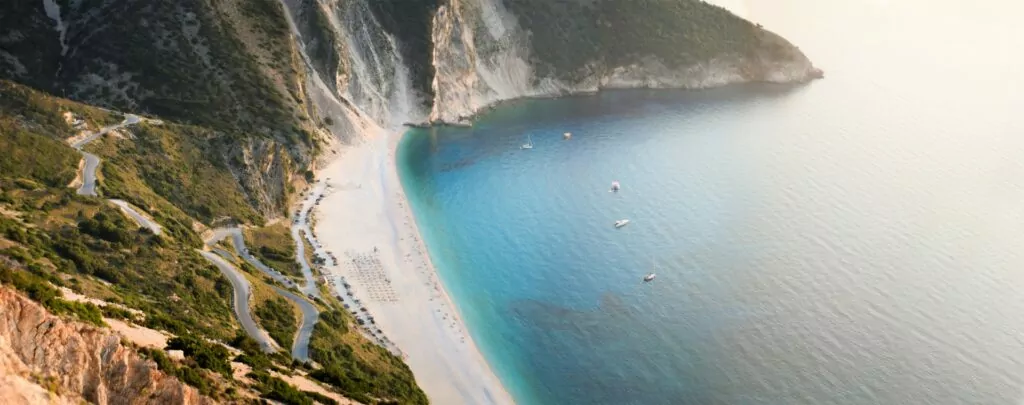
The lesser-known Greek Islands
If you want to plan a Greece trip that gives you a more authentic experience and lets you escape the crowds, these low-key and laidback islands offer all the Mediterranean magic without the mayhem of the hot spots. They’re a little harder to reach, but they’re worth it.
- Alonissos (Sporades): My personal favourite! The Chora (old town) has unbeatable views, hiking trails criss-cross the entire island, and you’ll easily find beaches and sunset spots all to yourself. It’s in a national marine park with the clearest water I’ve ever seen, our scuba dive had 60 metres of visibility at 18m deep which is insane 🤯 Check out my full Alonissos travel guide.
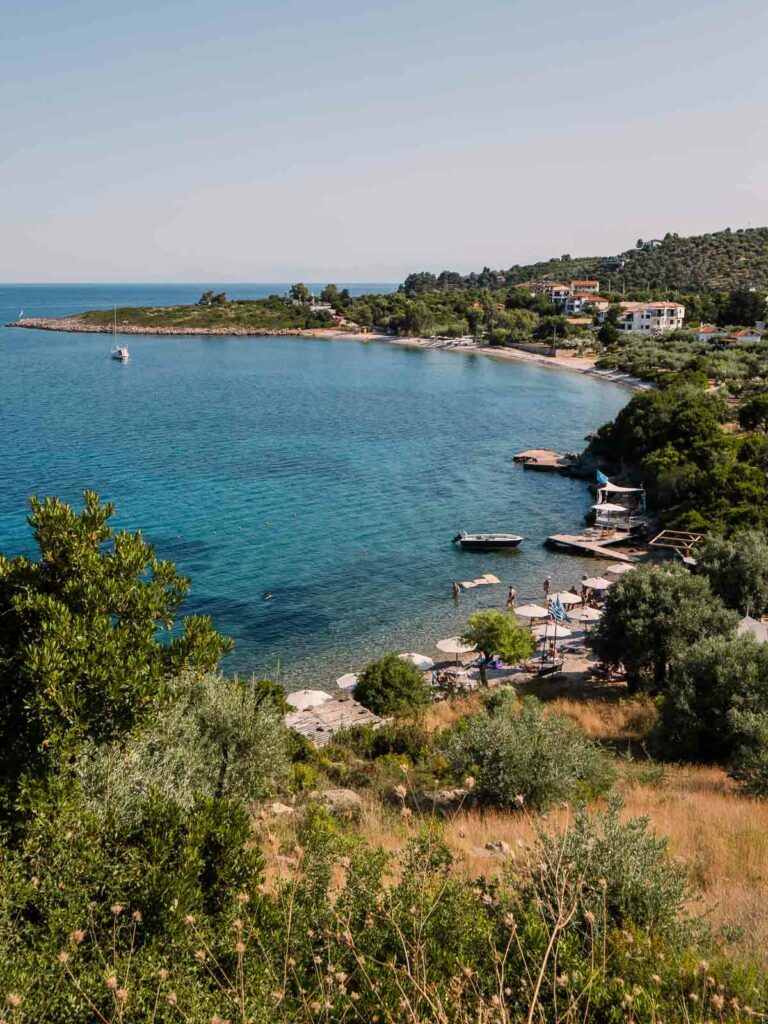
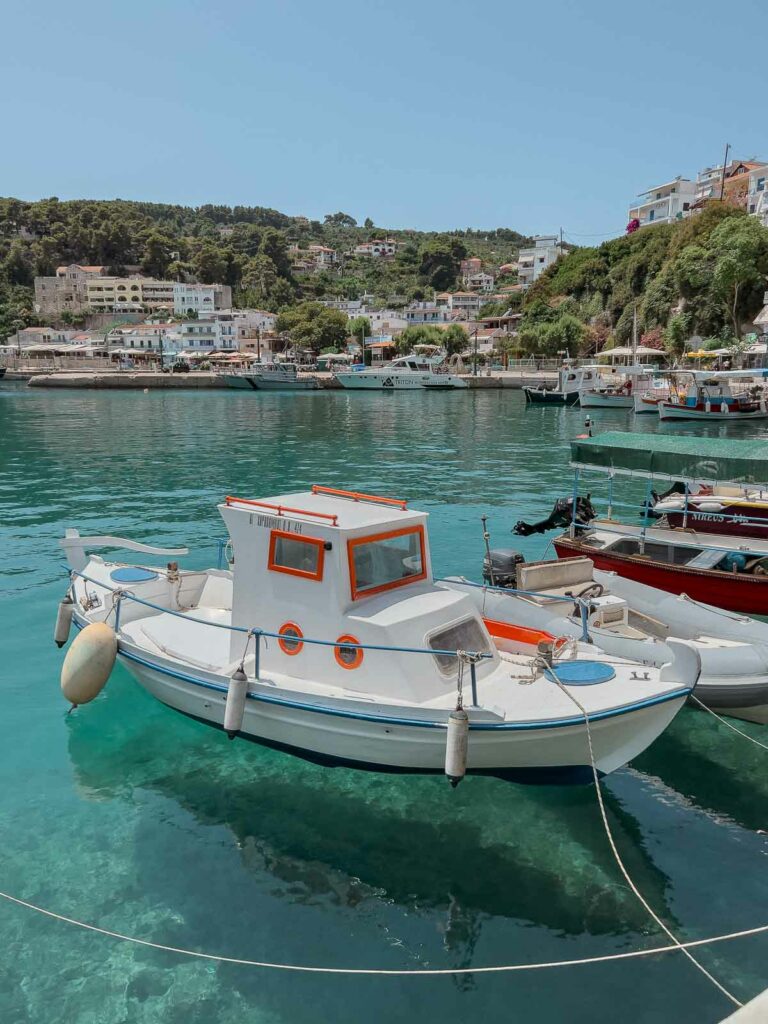
- Skopelos (Sporades): Neighbour of Alonissos, this is where they filmed Mamma Mia so it does receive a lot of ‘set-jetters’ (people who travel to movie locations) and is more commercialised than next door, but in June and September especially it’s very relaxed. Charming white-washed old town, clear water too, a few organised beaches with sunbeds and drinks for a fraction of what you’d pay on bigger islands. See more in my Skopelos travel guide.
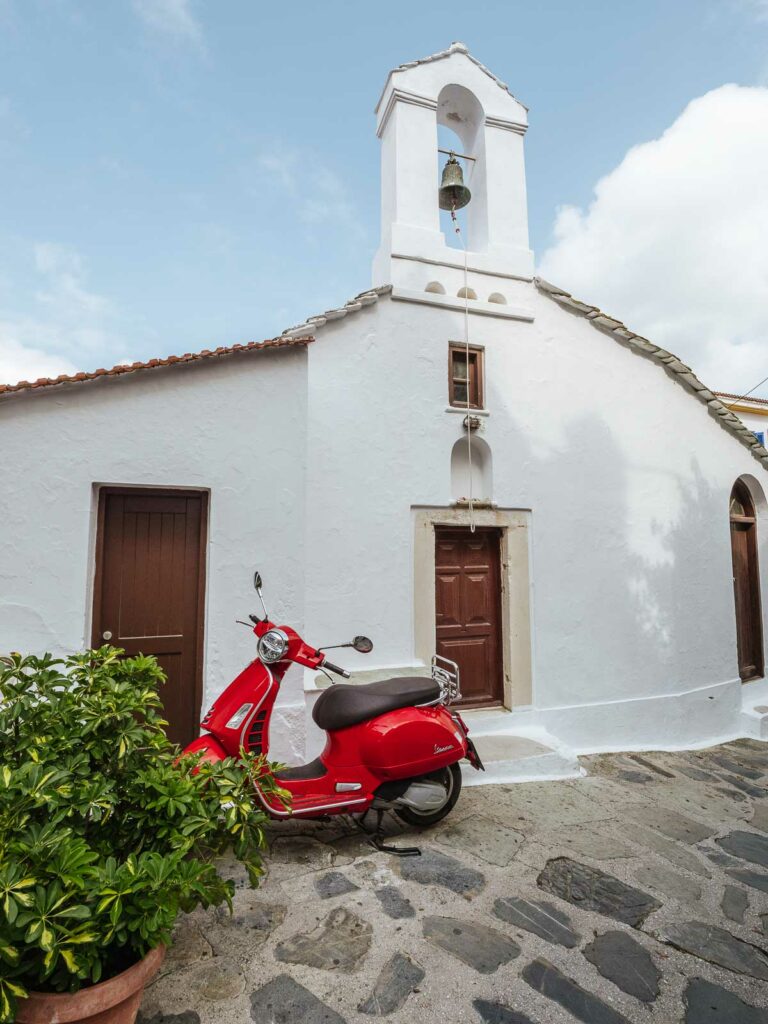
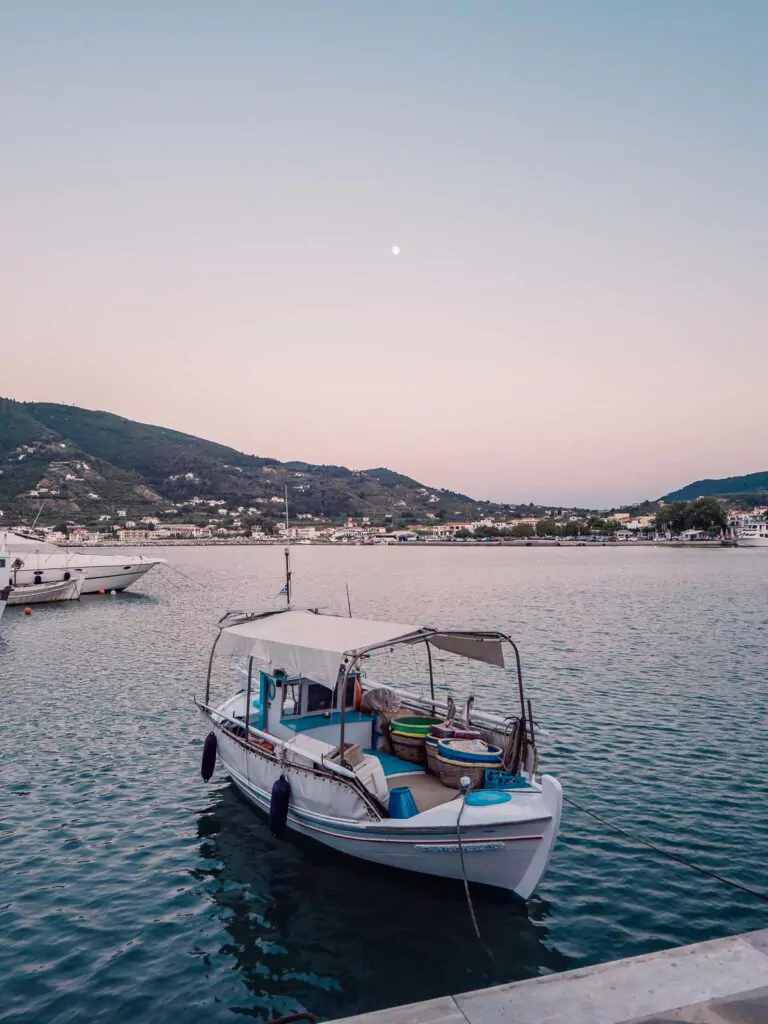
- Karpathos (Dodecanese): Wild, rugged and up-and-coming, with colourful hillside villages and picture-perfect beaches.
- Symi (Dodecanese): Its pastel-coloured neoclassical architecture makes this little island a popular day trip from Rhodes, but the best way to see it is to stay overnight and explore once the crowds have left in the early evening.
- Paxos (Ionian): Easily reached from Corfu and another one that’s much, much better for a multi-night stay. Book a boat tour to reach mind-blowingly beautiful swim spots and sea caves, and visit Il Capriccio in Gaios port for the best gelato you’ll find outside of Italy (big call but I stand by it!).
- Hydra (Saronic): Car-free and ruled by cats, Hydra has been a creative hub for writers, poets and artists for decades. It’s one of the fancier Greek Islands for sure, with fine dining restaurants, renowned art galleries and stylish clothing boutiques.

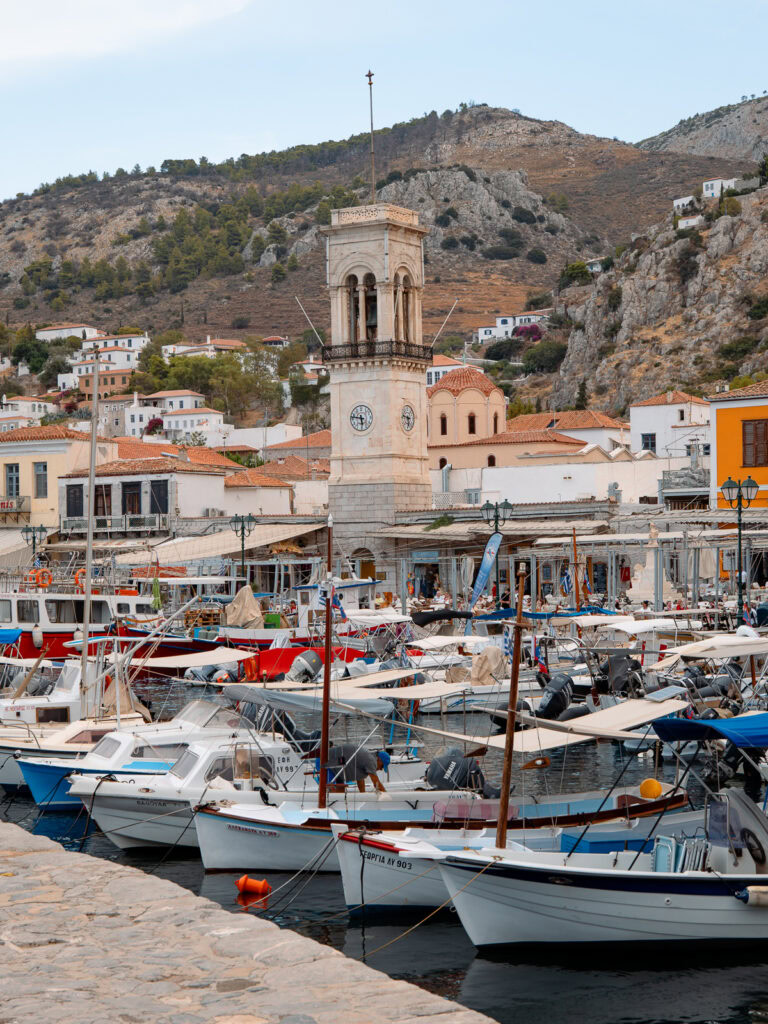
- Sifnos (Cyclades): The foodie favourite in the Cyclades islands, easy access from Paros, Milos and Naxos so it’s a popular add on after the bigger islands have been ticked off.
- Folegandros (Cyclades): Santorini-esque on a smaller scale, with insane views from the elevated Chora (old town).
- Samos (North Aegean): I bet you thought you’d heard the last of Pythagoras when you finished high school… He was born here! It’s also famous for hiking trails, traditional villages and sweet local wine.
- Kastellorizo (Dodecanese): The epitome of Accidentally Wes Anderson, with brightly-painted symmetrical buildings lining the port. This one is hopefully going to be my next stop in Greece!
- Chios (North Aegean): Known for its medieval geometric village (with patterns painted on the facades) and mastic gum production, Chios has a super unique vibe that you won’t find elsewhere.

Mainland must-dos
- Athens (obviously): History buffs could spend weeks here, but 2-3 days minimum is required for the key sights.
- Meteora: I have maybe never felt so insignificant and so useless as I felt when I saw the Meteora monasteries perched sky-high on rocky pillars. You can see them on a day trip from Athens or Thessaloniki but I’d recommend staying in Kalambaka for at least a night so you can watch sunset or sunrise.
- Delphi: Another archaeological hot spot with well-preserved ruins and a world-renowned museum.
- Thessaloniki: Serviced by low cost airlines and offering ferry access to some of the Sporades and North Aegean Islands, Thessaloniki might be a cheaper place to start your trip than Athens depending on where you’re heading. The food scene is on fire too, blending Turkish, Balkan and Greek cuisine.
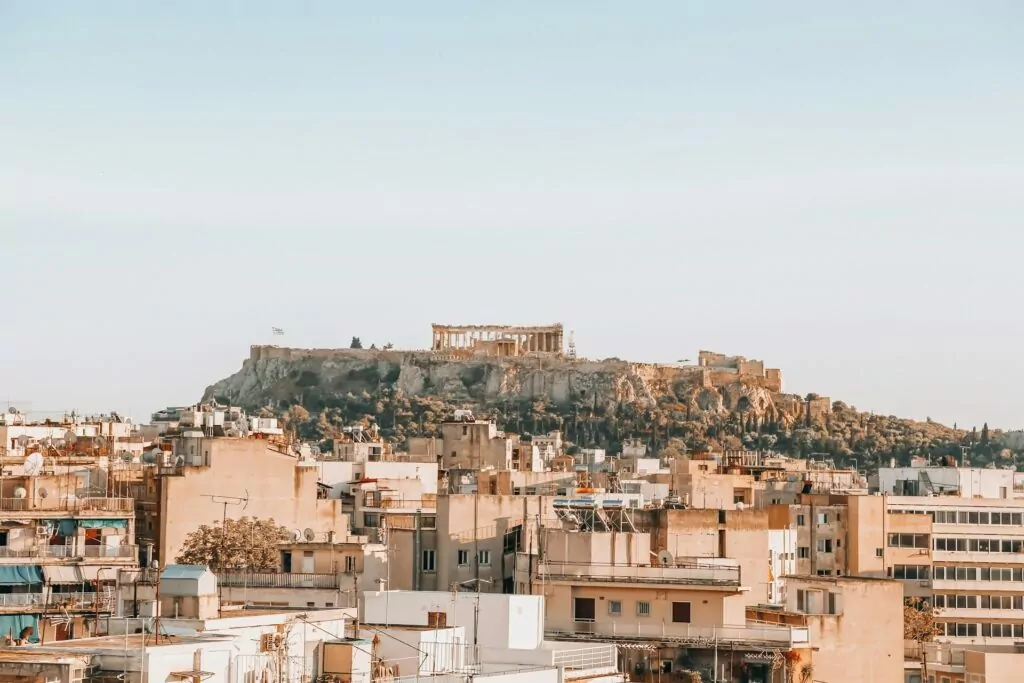
How to choose where to go in Greece
Okay so I’ve just hit you with a lot of information, but now lets narrow down the best Greece options for you depending on your travel preferences.
If you’re travelling in peak season (July/August):
- Avoid the popular islands unless you’re prepared for chaotic crowds and insane prices
- Visit the less commercialised island groups like the Sporades or North Aegean, or choose 1-3 smaller islands in the famous Cyclades (like Folegandros, Sifnos and Tinos) or Dodecanese (Kastellorizo, Karpathos or Symi)
- Book a week-long sailing tour to see a range of places without having to deal with summer ferry crowds
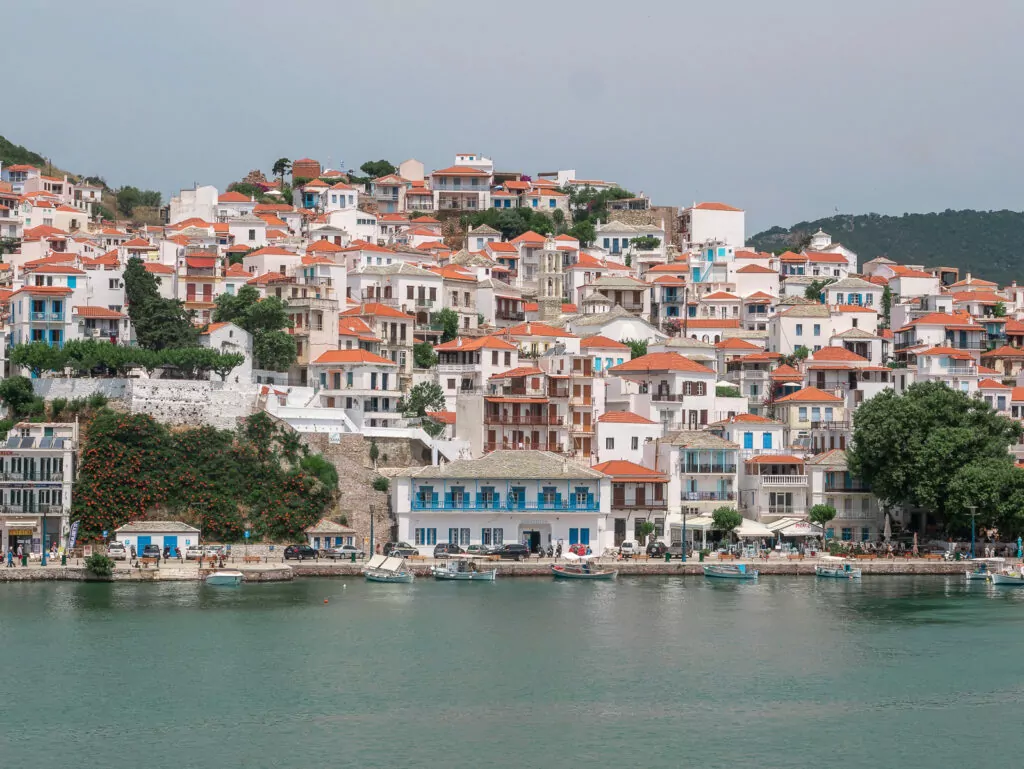
If you’re on a tight budget:
- Shoulder season + non-touristy islands = best value for money
- Choose smaller islands where you don’t need a rental car, like Hydra, Paxos or Symi
- Book local guesthouses rather than hotels, you’ll get to experience authentic Greek hospitality and often they’ll have a kitchen so you can avoid restaurants
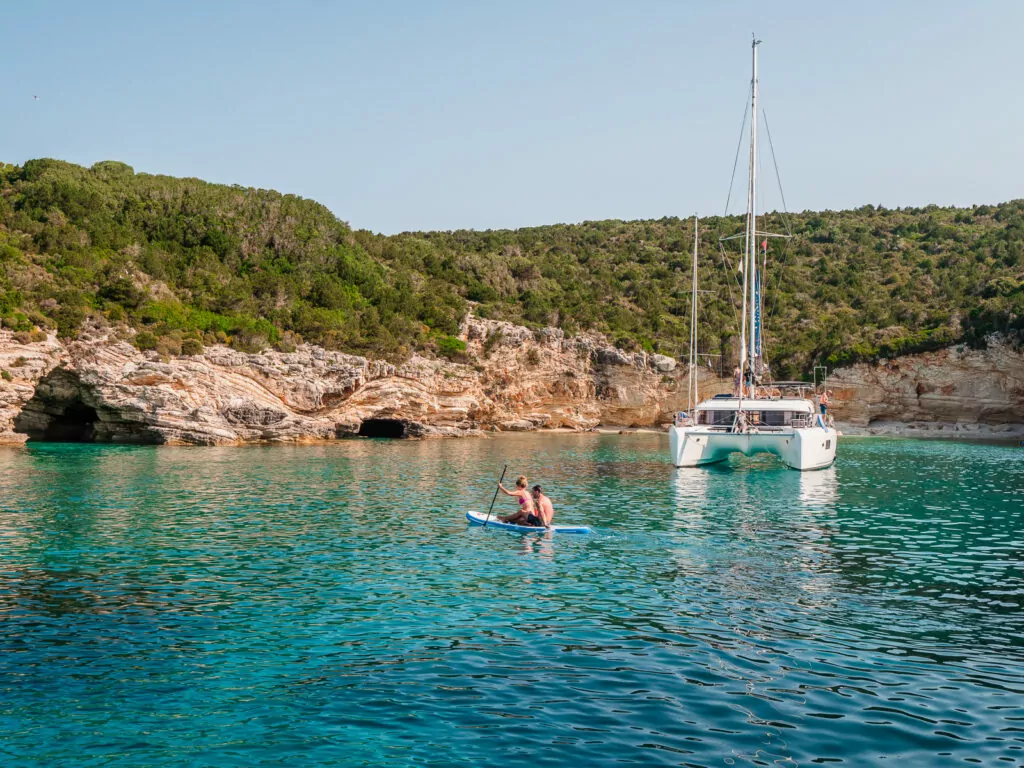
If you’re searching for the best beaches:
- The Ionian Islands (Corfu, Lefkada, Zakynthos etc.) are unbeatable, with epic caves, piercingly blue water and greener landscapes than most other islands
- The Sporades (Skopelos, Alonissos etc.) have the best water visibility I’ve ever seen, you’ll want a rental car or quad bike to explore
- Crete is where you’ll find the famous pink beach of Elafonissi
- Milos has super unique beaches and secret swim spots, best accessed on a boat tour
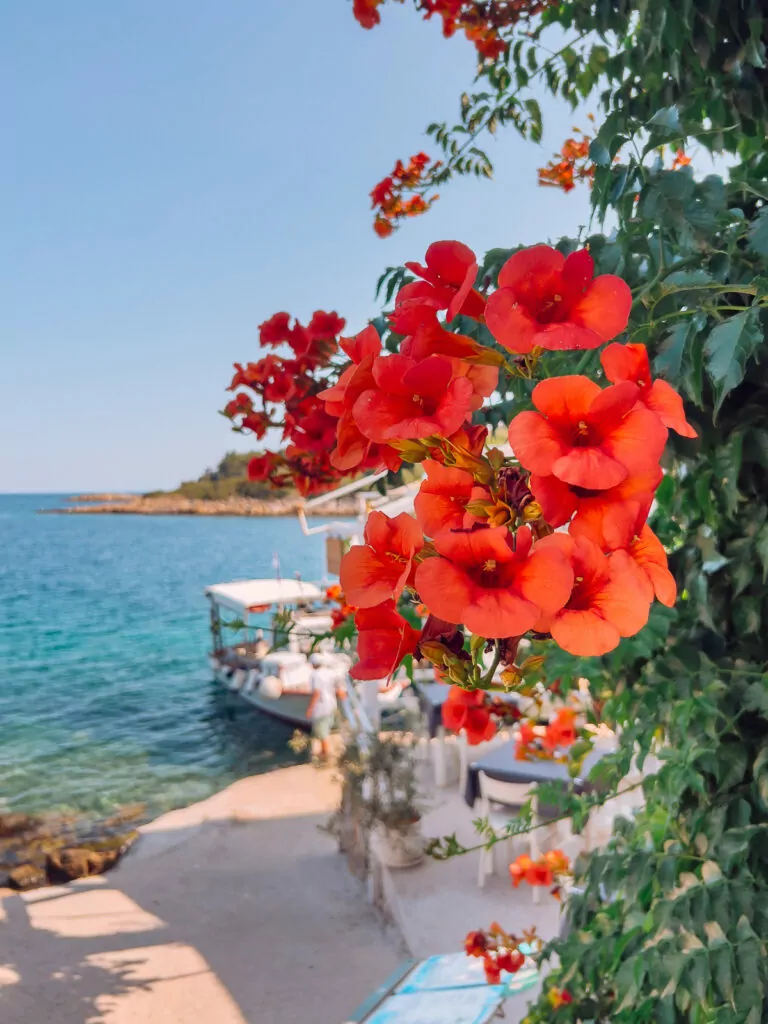
If you want to party:
- Mykonos for glitzy beach clubs and famous DJs
- Ios for backpacker bar crawls
- Thessaloniki for local student nightlife
If you want to step back into ancient times:
- Athens, Delphi and Meteora on the mainland
- Crete for the Palace of Knossos
- Rhodes for its medieval city and lots of other historically-significant sites
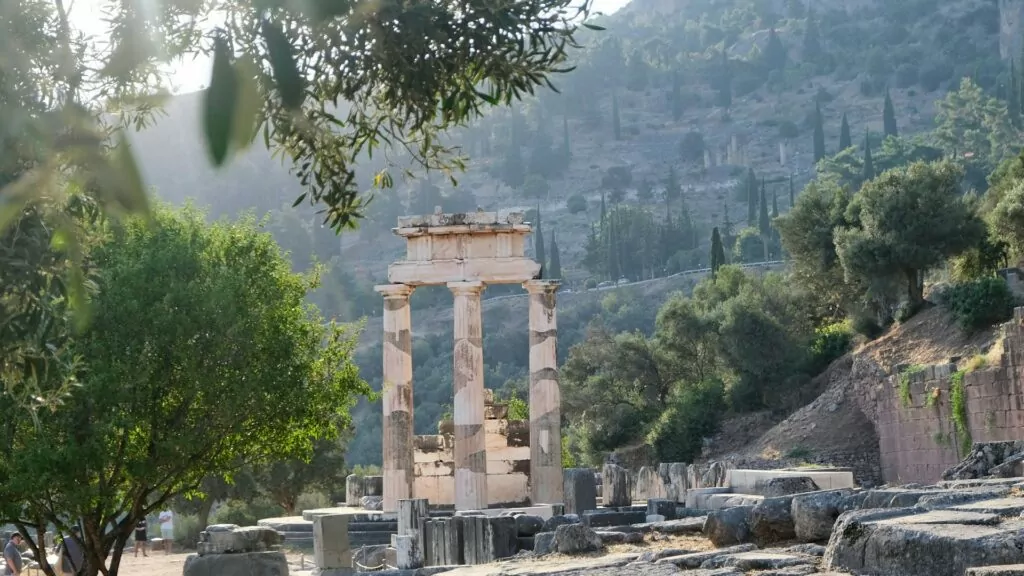
If you’re travelling for the food:
- Sifnos for traditional Greek cuisine
- Crete for local produce and unique dishes you won’t find elsewhere in Greece
- Alonissos for incredible quality without the price tag of the bigger islands
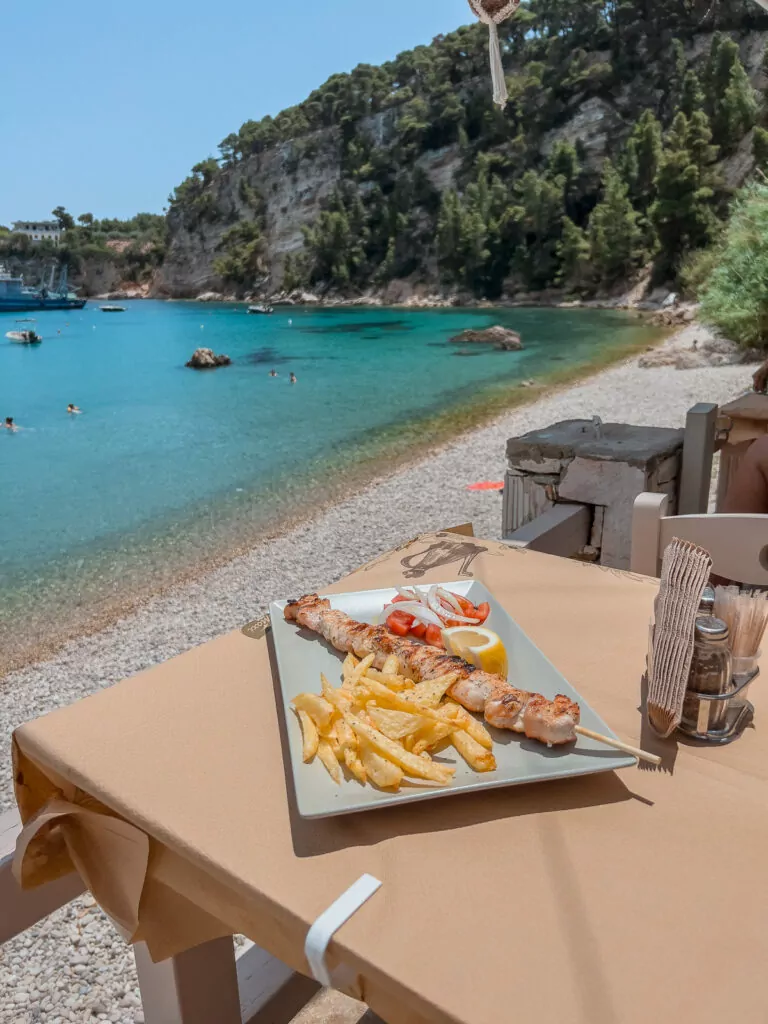
Getting around Greece
If you’re visiting Greece for the first time, navigating transportation is one of the most important things to understand, so let’s break down the transport options to get from A to B.
How to get to Greece
- Most people fly into Athens (ATH) or Thessaloniki (SKG) on the mainland, Chania (CHQ) and Heraklion (HER) on Crete, Corfu (CFU), Rhodes (RHO), Santorini (JTR) or Mykonos (JMK). Check Skyscanner to find the cheapest flights, and don’t fall for the incognito mode myth!
- You can get to Greece by ferry from the Albanian Riviera (Sarande to Corfu is only 40 minutes on the fast ferry), Italy (overnight ferries to Bari, Ancona, Venice and Brindisi) and Türkiye (short ferries from the Dodecanese and North Aegean islands). Ferry schedules depend on the season and operator websites are often confusing, I use Direct Ferries or Ferryhopper to find current options.
- There are buses that run from Thessaloniki to Sofia in Bulgaria, Skopje in North Macedonia, and some other places in the Balkans. Check Flixbus for current timetables.
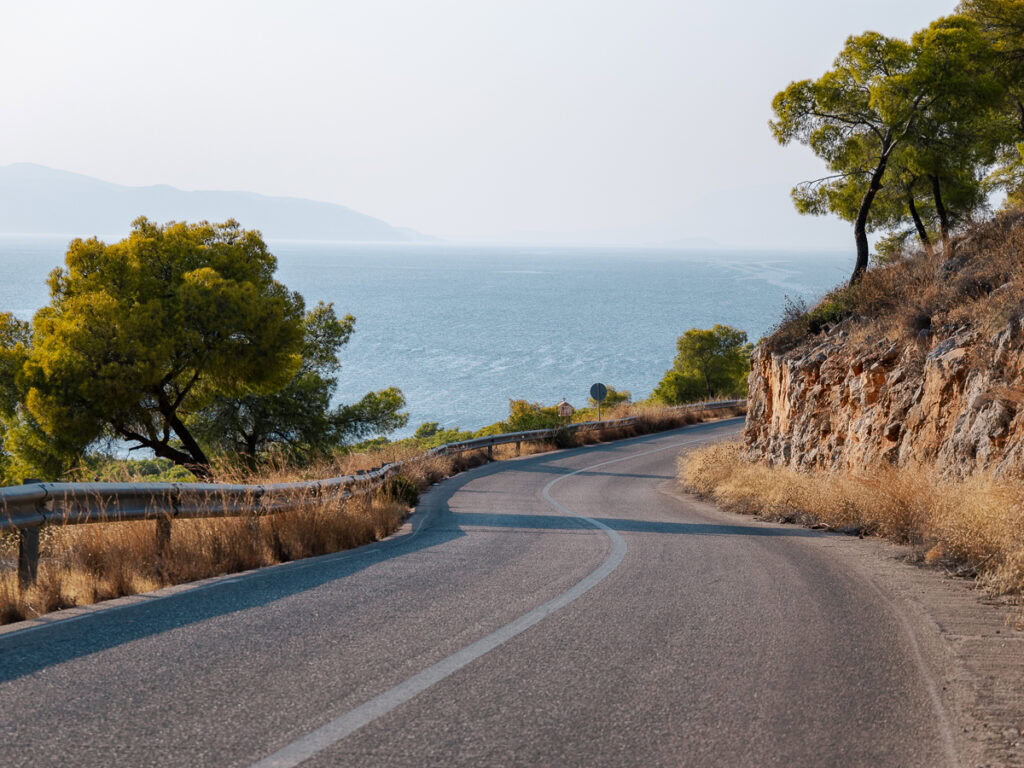
How to get from the airport to your hotel
Athens Airport to the city
Do not, I repeat, DO NOT take a taxi from the airport taxi stand.
Athens taxi drivers are notoriously dodgy, they’ve tried to clean up the industry by setting a flat fee for the airport to the city (€40 from 5am-midnight, €55 after midnight) but drivers will try get around it.
On my most recent trip I was super delayed and arrived at 8pm, with a 9pm dinner booking, so I treated myself to a rare taxi on arrival. I saw there was a flat fee of 40EUR, told my driver my address, and got in the car. He lit up a cigarette while driving down the highway with the window up 🙃 (welcome to Greece!) and then when we got to my hotel, he told me it was outside of the city zone and the cost was 80EUR.

I was fairly certain he was lying but I didn’t have a photo of the city zone map and couldn’t find one online, after 20 minutes of yelling at each other in the street I agreed to €60 and was late to my dinner.
Here’s a map of the city centre zone if this happens to you too!
Instead, from Athens Airport you can easily reach the city by metro (40 mins) or bus (60 mins to Syntagma Square), or if you want a private ride I’d recommend pre-booking a transfer with someone like Welcome Pickups or HolidayTaxis, it’ll cost a little more (5EUR-ish) than a taxi on arrival but it’ll be all sorted for you and you won’t get ripped off.
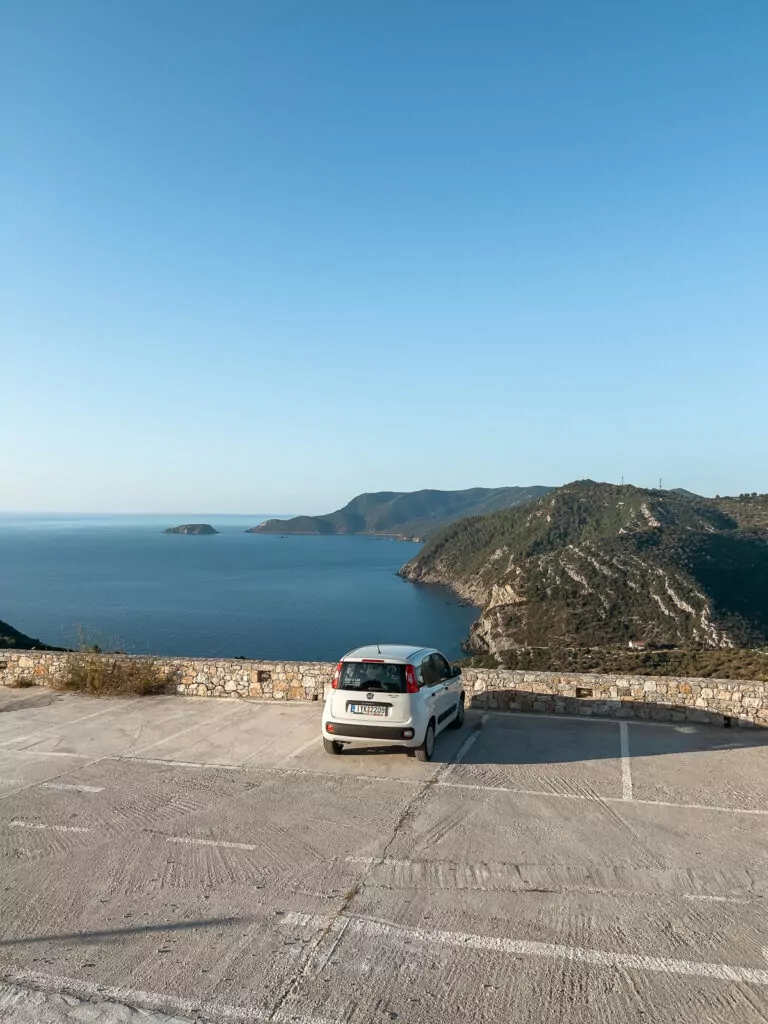
Island airports to your hotel
If you’re flying into Corfu, Santorini, Crete, Rhodes or any other island, there will usually be buses that service the main hotel hubs. Taxis on islands are expensive because they know people will pay, in Corfu I was charged €25 for a 12 minute trip!
For a private ride again I’d recommend booking an airport transfer, or check with your hotel if they offer a free pick up service (luxury hotels often do).
Island hopping vs. staying in one place
The age old dilemma, how many Greek Islands can you visit in one trip?
The answer really depends on your personal travel preferences, and whether your priority is relaxation, exploration, or a mix of both.
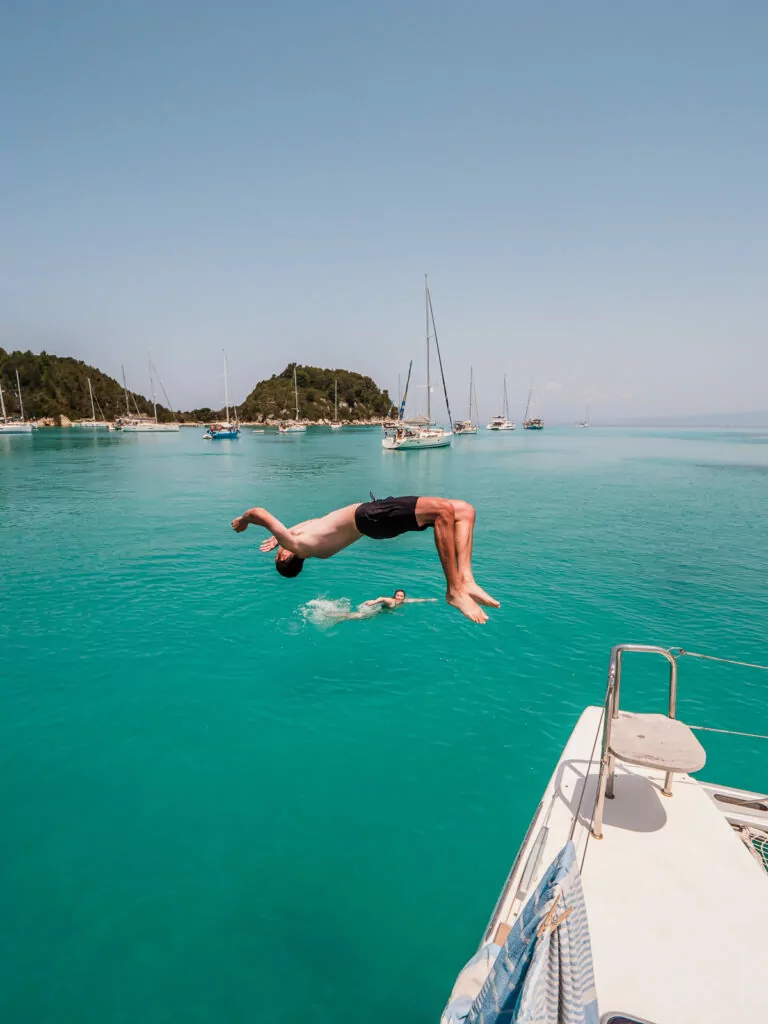
One of the most important tips for travelling to Greece is to avoid trying to see too many islands in one trip, you’ll end up exhausted and you’ll risk major logistical issues if a ferry gets cancelled.
If you want to see a variety of different islands, your best bet would be to stick to one island group and spend 2-3 days per island at an absolute minimum. Single night stays are too risky with Greece’s ferry schedules, if your ferry gets delayed or cancelled you could miss that place entirely and then struggle to catch up to your next destination.
The Cyclades are well set up for island hopping, as are the Dodecanese. The other island groups are more spread out but you could combine two islands like Corfu and Paxos in the Ionian, or Skopelos and Alonissos in the Sporades.
Your second option is to stay in one place and explore it in depth or do day trips to smaller islands nearby, or your third option is to book an organised island hopping yacht tour which I’ll talk about in a sec.
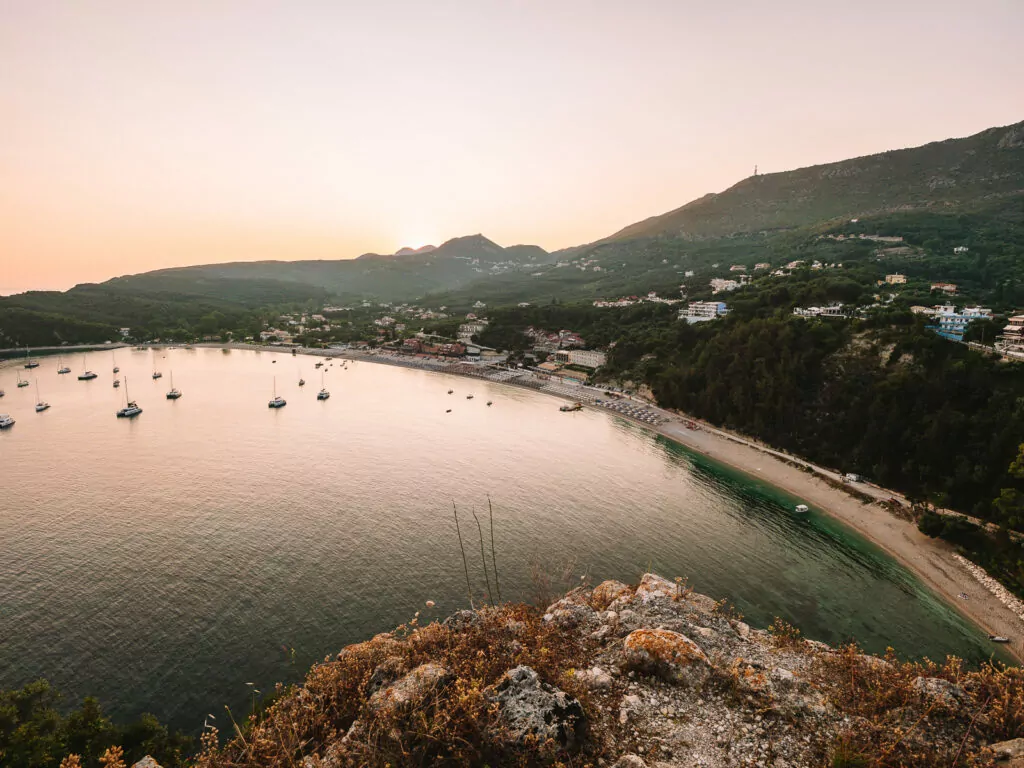
Domestic flights
The main domestic carriers in Greece are Aegean Airlines, Olympic Air and SKY Express, and they service routes from all island airports to Athens, with a few inter-island routes like Corfu to Crete during the summer season. Most flights from one island to another will include a stop in Athens though.
Domestic flights can be affordable if you book in advance, but they can get very expensive in summer or if you’re booking last minute. Luggage generally isn’t included in the ticket price, so you’ll need to add a checked bag when booking if you’ve got more than just carry on.
Check the flight options for your travel dates on Skyscanner, then book direct with the airline rather than a third party (easier to deal with any delays or cancellations if you’ve booked direct).
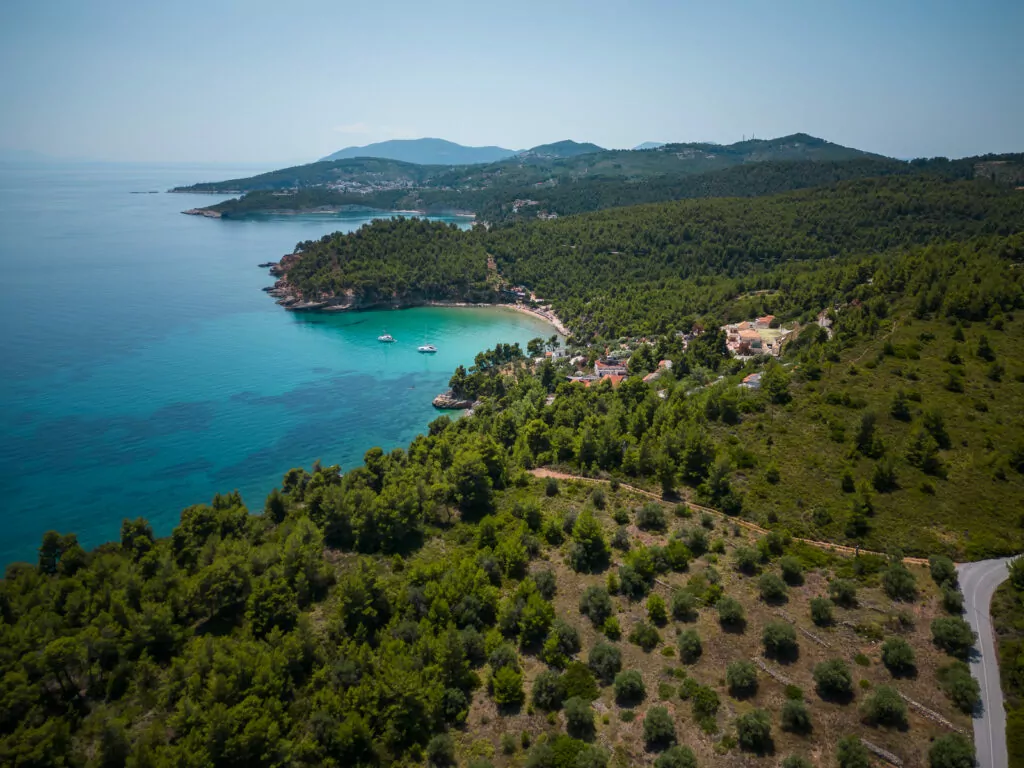
Ferries
Ferries are the most popular way of getting between the Greek Islands.
There are a bunch of ferry operators in Greece, their schedules are season-dependent and they can change without notice so I don’t want to give you any specific timetables here. Check the options for your travel dates on Direct Ferries or Ferryhopper to get the most up-to-date options.
You’ll notice that the same route might take two hours with one operator and six hours with another, this is because some ferries are high-speed and some are much slower. The high speed ferries cost more (unsurprisingly) but you’ll obviously save time, so up to you which one you prefer.
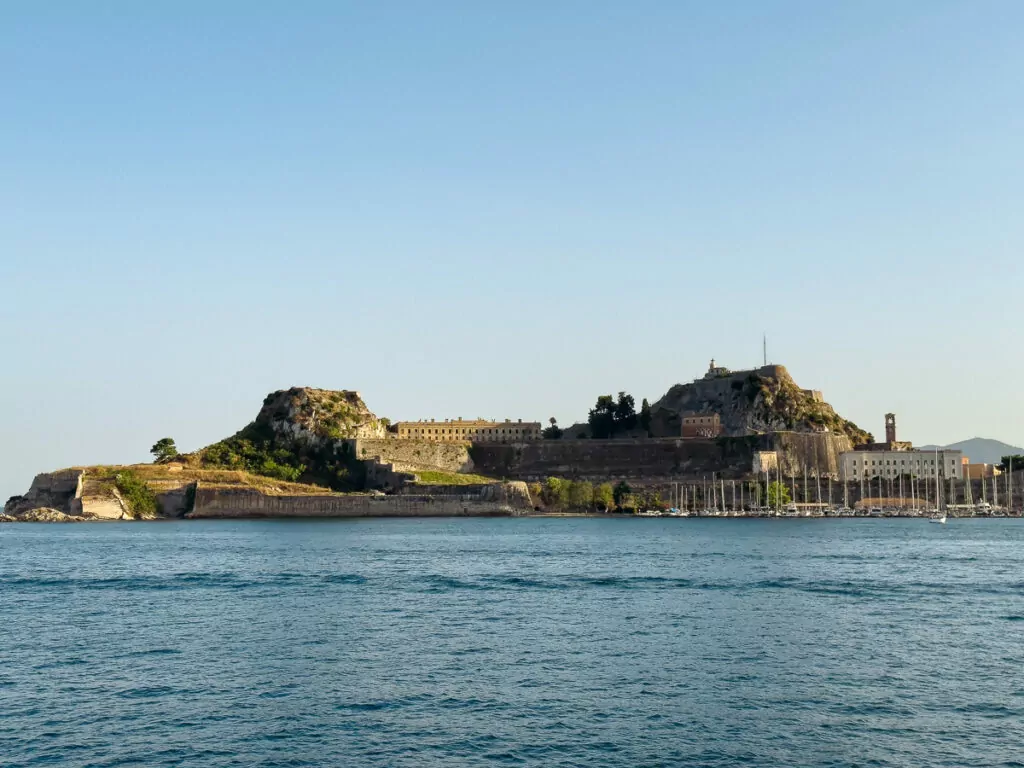
Sailing tours (my fave!)
I love love love exploring the islands by boat, unpacking just once and being able to visit a bunch of different islands and ports is my idea of the perfect trip!
I’ve done both of MedSailors Greece routes, they run flotilla-style sailing trips for travellers in their 20s and 30s, where you can book a bed (if you’re solo), a double cabin (couple or two friends) or even a whole boat (8-11 friends) and visit a different port every night.
The Corfu Discovery trip takes you around the Ionian to visit Corfu, Paxos, Parga and more, and the Athens Voyager hits the Saronic and ticks off Aegina, Agistri, Ermioni, Hydra and more.
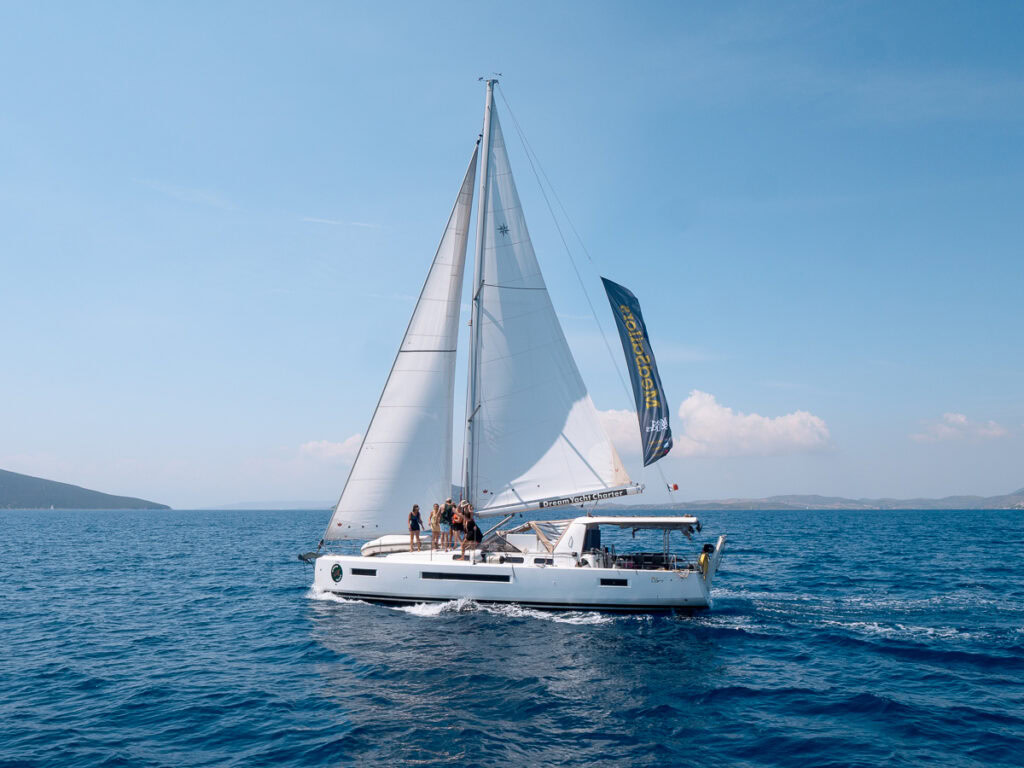
Your trip includes yacht accommodation for six nights, an expert skipper, breakfast supplies, and you can BYO food and drinks so there’s no nasty bar tab at the end. Honestly one of the highlights of my Europe summer every year.
💰 PROMOCODE: Save 5% on your first MedSailors trip with the promocode FindingAlexx24, book here!
If you’re in your 40s/50s/travelling with kids or if you’re just looking for a more elevated experience, they have a sister company called Yacht Getaways with fancier boats, breakfast and lunch cooked by your host. They have a perfect 5/5 rating on Google too!
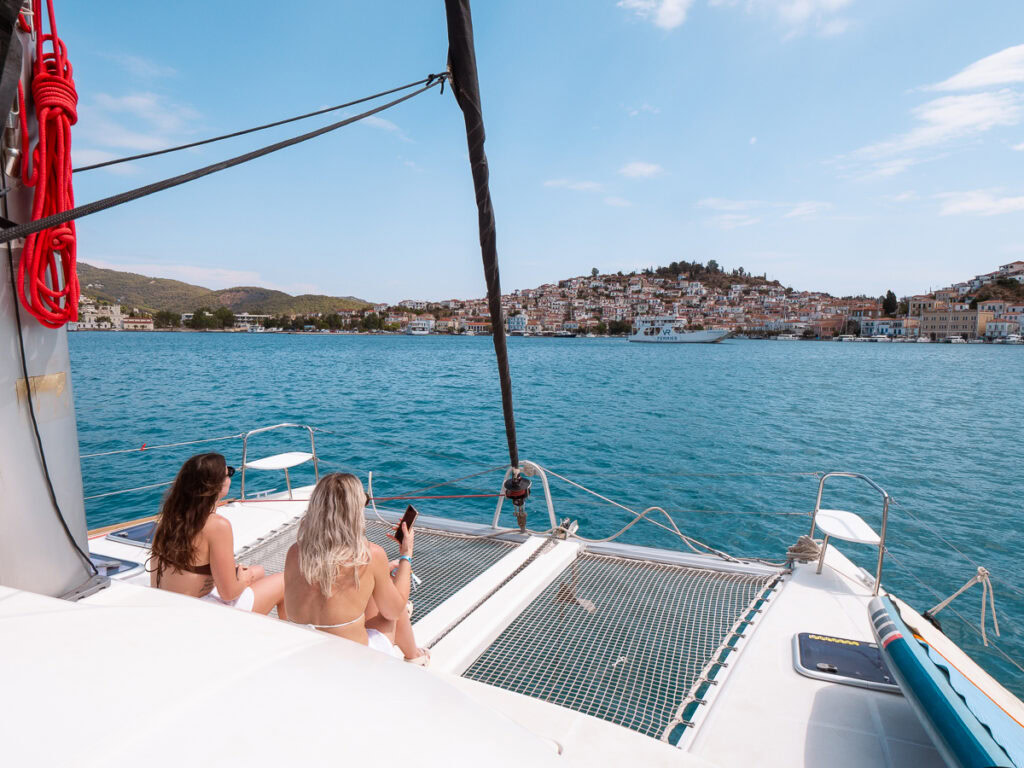
Local transport
Car rental
Most islands have cars available for rental, but in summer they do get booked up so you don’t want to rely on a last minute booking.
Some things to note:
- Most cars are manual transmission, automatics are limited and will probably cost more due to demand
- The roads are sub-standard on many islands, don’t expect a smooth drive
- Parking isn’t always included in hotel bookings so check for any parking fees before you book
- Car rental prices vary drastically based on demand, on smaller islands in shoulder season you could find a cheapie from as little as €10 per day but on a busy island in summer you might be looking at €150 per day
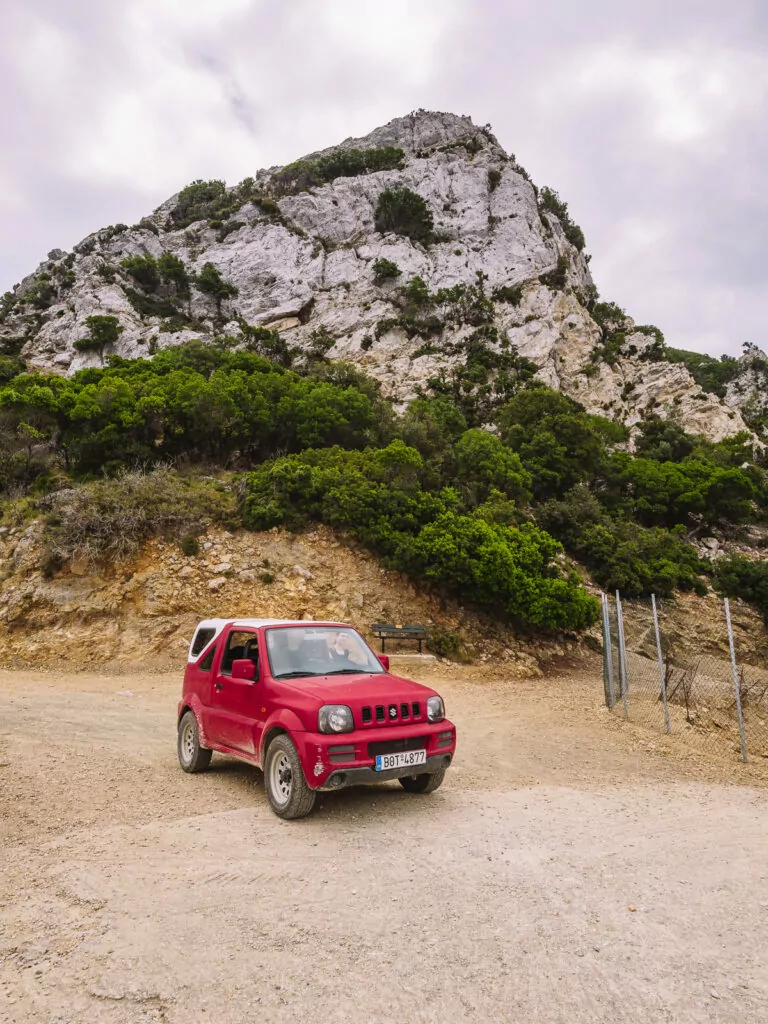
IMPORTANT: There is so much incorrect info online about if you need an international license to drive in Greece, and I met people on my last trip who got stung with a huge fine for not meeting the requirements.
If you have a valid license from a country that has ratified the Vienna Convention on Road Traffic (full list here), you do not need an International Driver Permit (IDP) for Greece. This covers 86 countries around the world, but notably does not include the USA, Canada, Australia or New Zealand.
If you have a valid license from a European Union country, you do not need an IDP for Greece.
If you have a valid license from Australia, Canada, the USA, Japan or South Korea, you do not need an IDP because each of those countries has a special agreement with Greece which recognises your license.
If your license is from a country that doesn’t come under any of those, you need an International Driver Permit in order to legally drive in Greece. If any fellow Kiwis are reading this, this means our license from home is not recognised in Greece and we need an IDP to drive legally.
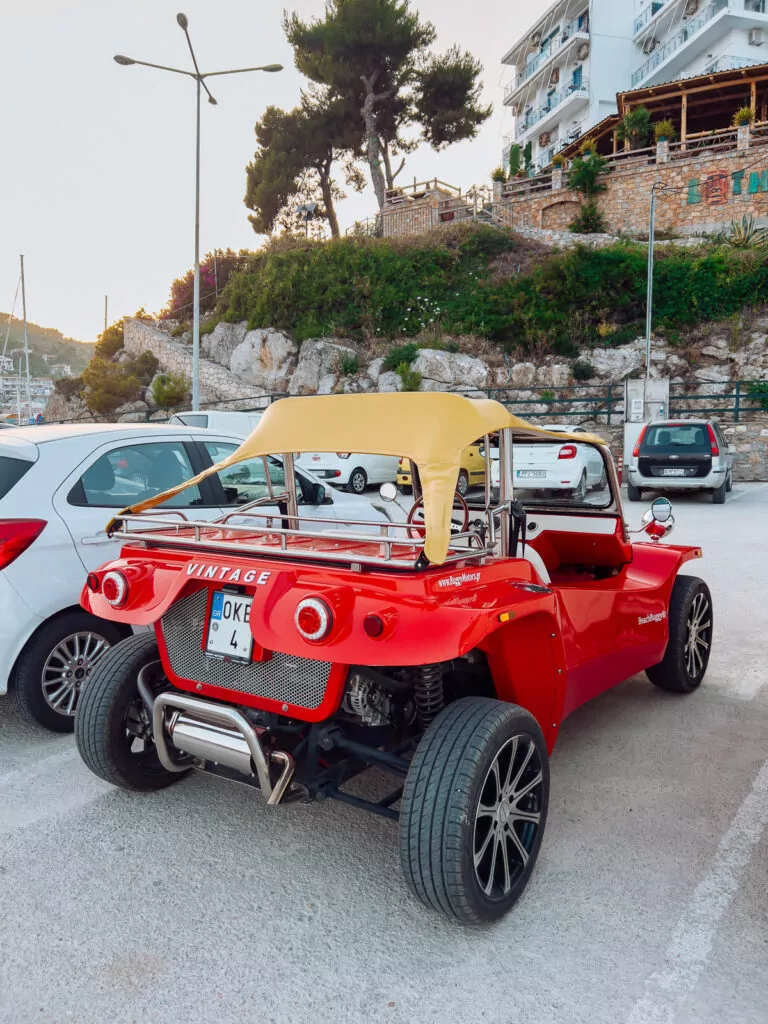
“But the rental place just checked my license from home and said it was fine!”
Yep, chances are most rental places either aren’t aware that NZ licenses aren’t actually valid *or* (perhaps more likely) they know that but just want your money. If you get away with driving in Greece without any run ins with the police then no harm no foul, but if you get pinged for speeding or if you’re in an accident, you could be up for a massive fine and your travel insurance won’t cover you for medical care or car damage because you weren’t driving on a valid license. It’s not worth the risk!
This website has more info on who needs an International Driver Permit for Greece.
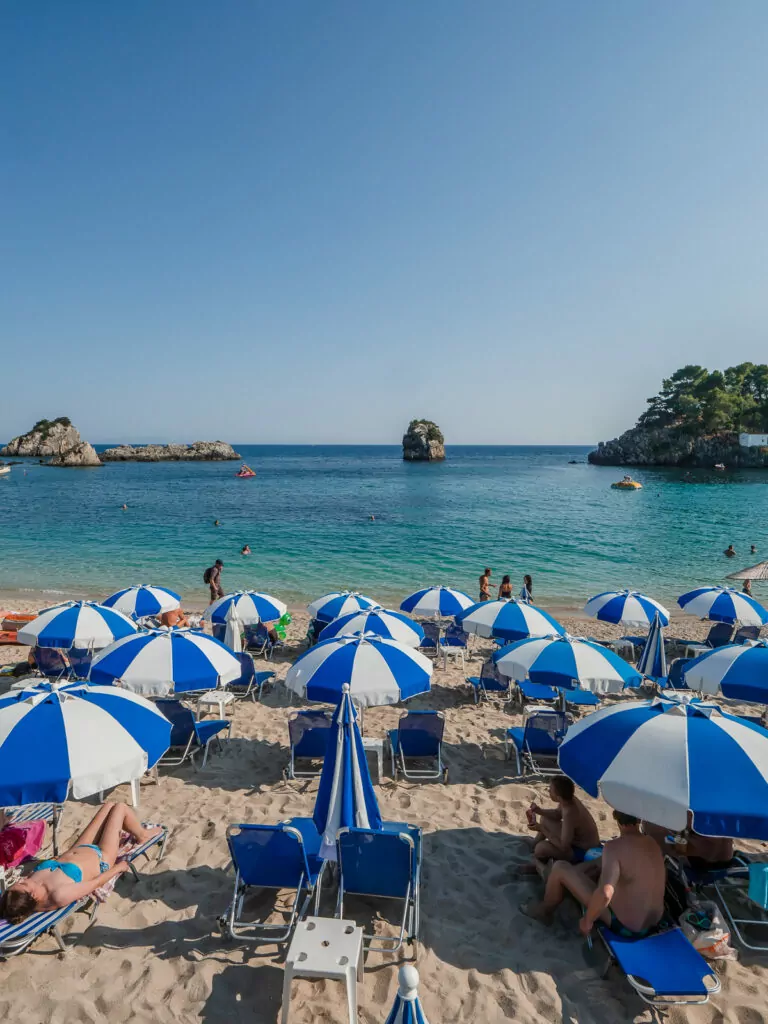
Scooter/quad bike rental
Scooters and quad bikes are cheaper than car rentals in most places and they’re great for exploring small islands. You’ll need to ensure your license is valid for the engine size you choose, you can find more info on that here.
If you’ve never driven a scooter before then a quad bike will be safer and easier, the islands have some terrible roads which aren’t that fun on a two-wheeler unless you know what you’re doing.
Just make sure your travel insurance covers whatever vehicle you choose, some might only cover up to a certain CC or some might require additional motorbike cover.
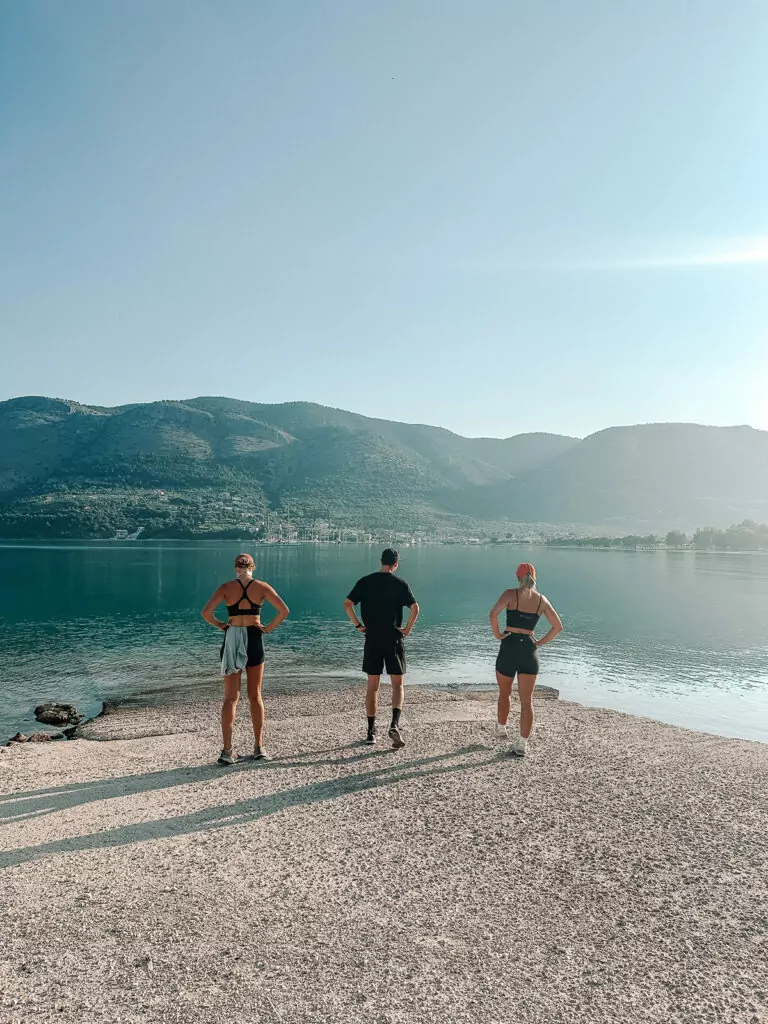
Public transport
Public transportation options vary depending on the island, but most tourist-friendly islands have a local bus network of some kind that service routes between the old town, the port, and any big residential villages.
Local buses in smaller islands will probably only take cash and need exact change so keep some coins on you.
The truth about cruises in Greece
Quick note: I want to preface this by saying that cruises can offer significant benefits to travellers who have accessibility needs or health considerations. No type of travel is impact-free (I’m certainly not a perfect traveller!) and I’m not here to judge. But the cruise industry’s effect on certain destinations is undeniable, and places like Santorini and Mykonos are suffering. Having an open discussion about this helps travellers make conscious and informed decisions, and hopefully cruise operators and local authorities will do something to reduce the impact.
Greece’s relationship with cruise tourism is complicated, and by complicated I mean that they know cruises are doing damage to their iconic islands, but the higher-ups refuse to do anything about it 🙃 Like your friend who keeps letting her toxic boyfriend back into her life.
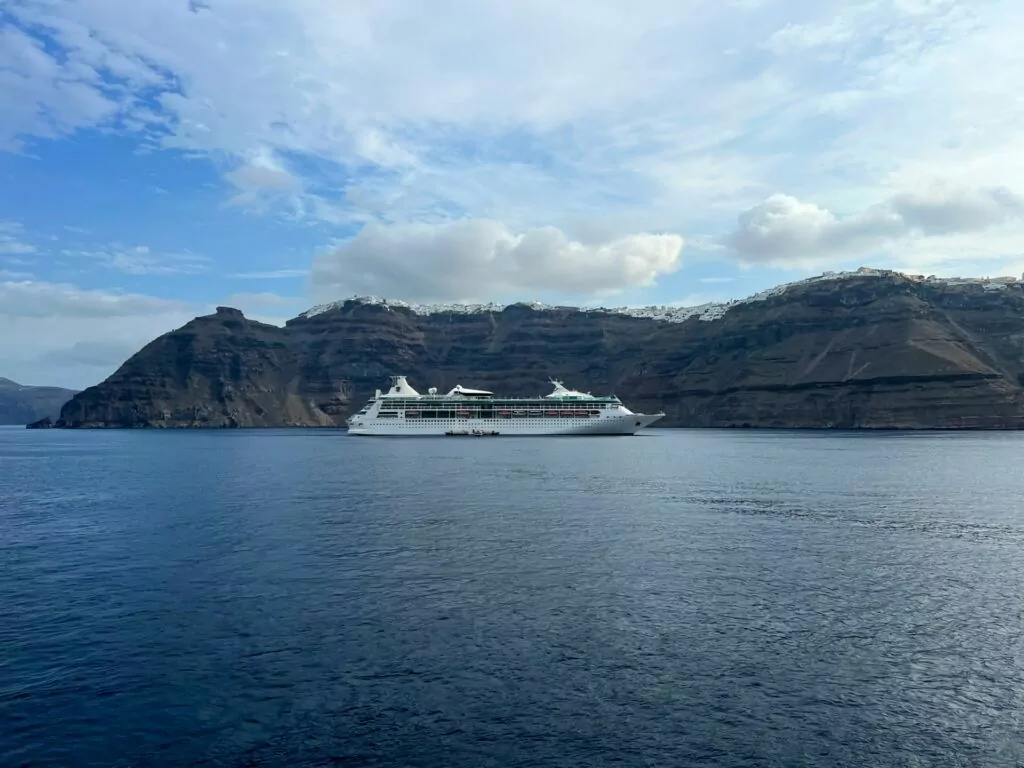
2023 saw record numbers of cruise tourists (7 million passengers from 5200+ ships 😲) and 2024 is expected to be even higher, I’m writing this in December but I’ll update it as soon as the final numbers are released.
While exploring the Mediterranean on a floating luxury hotel/amusement park certainly sounds appealing, we have a responsibility as tourists to understand the true cost of our travel choices and their impact on local communities.
The real impact of cruise ships in Greece
When cruise ships deliver boat-loads of passengers each morning to the islands, it creates absolute chaos.
Thousands of tourists with six hours to spend in Santorini, all of them rushing for the same viewpoints, eating at the same restaurants in Oia, doing cruise excursions to the same places, with no time to go beyond the bucket list spots. Streets become overrun, local infrastructure starts to crumble, and authenticity and charm start to fade.
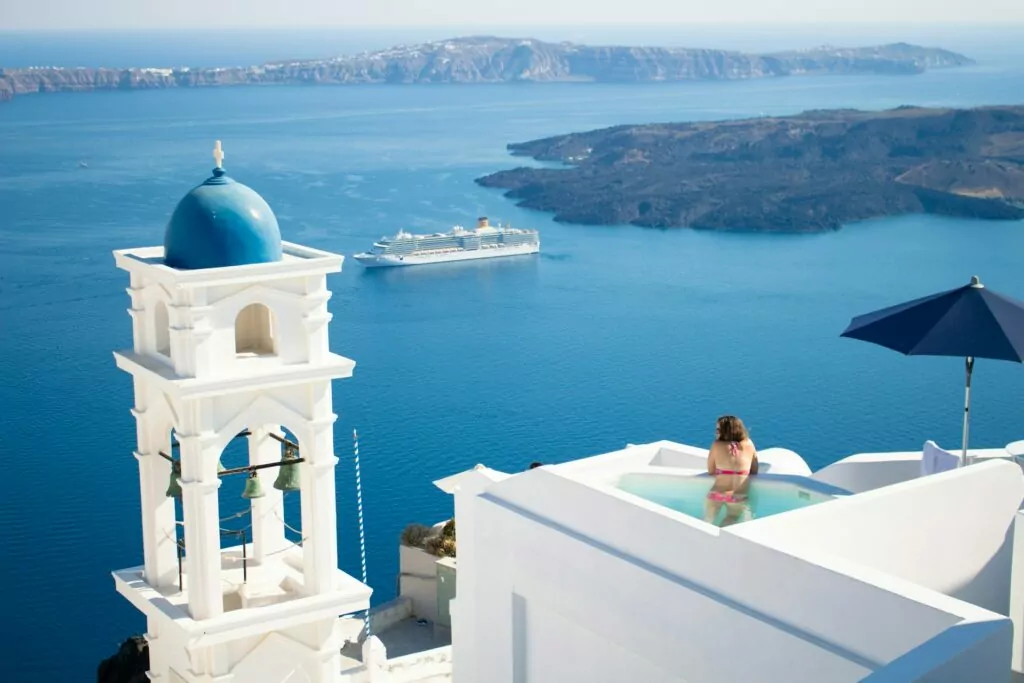
Cruise passengers on average spend considerably less in a destination than an overnight visitor, yet the sheer number of cruise tourists scares away those potential overnight guests who would’ve actually contributed to local hotels, restaurants and operators. It’s a double whammy to the local economy.
Greece has said they’ll do something to reduce cruise ships (there is currently no cap on cruise numbers at all), but they don’t seem to be in any rush.
So when is a cruise a good option?
In saying all of that, it’s also true that cruises can be the right choice for some people in some situations. If you fall into any of these categories, then a cruise might genuinely be your best option for exploring Greece:
- Travellers with accessibility needs
- Families caring for members with special needs
- People with medical conditions requiring reliable power and facilities
- Anyone with mental health issues which would make independent travel challenging
- Families with young kids or elderly members who couldn’t handle local ferries
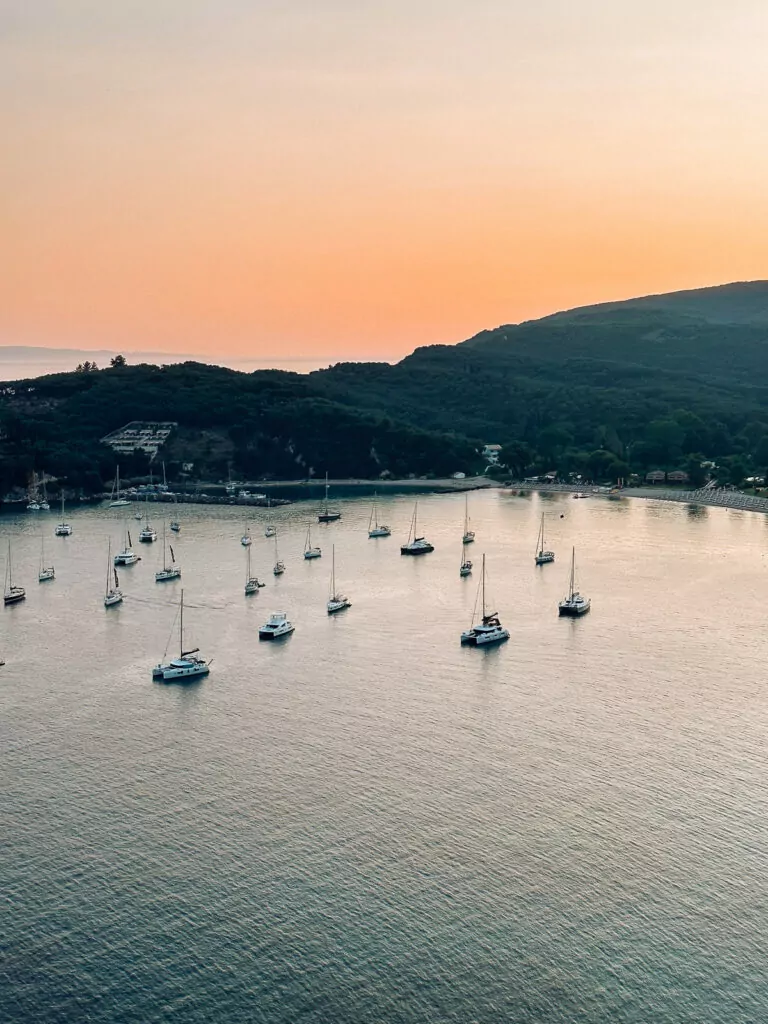
Better alternatives for everyone else
If you don’t fall into those categories, here are some ways to travel around Greece that won’t contribute to the issues cruising causes:
- Island hop by ferry and book local hotels
- Choose a small ship sailing tour instead (like MedSailors or Yacht Getaways for 8-12 people, or there are some companies who have boats for 40-50 people)
- Choose an island as a home base and do day trips from there if you don’t want to unpack and repack every few days
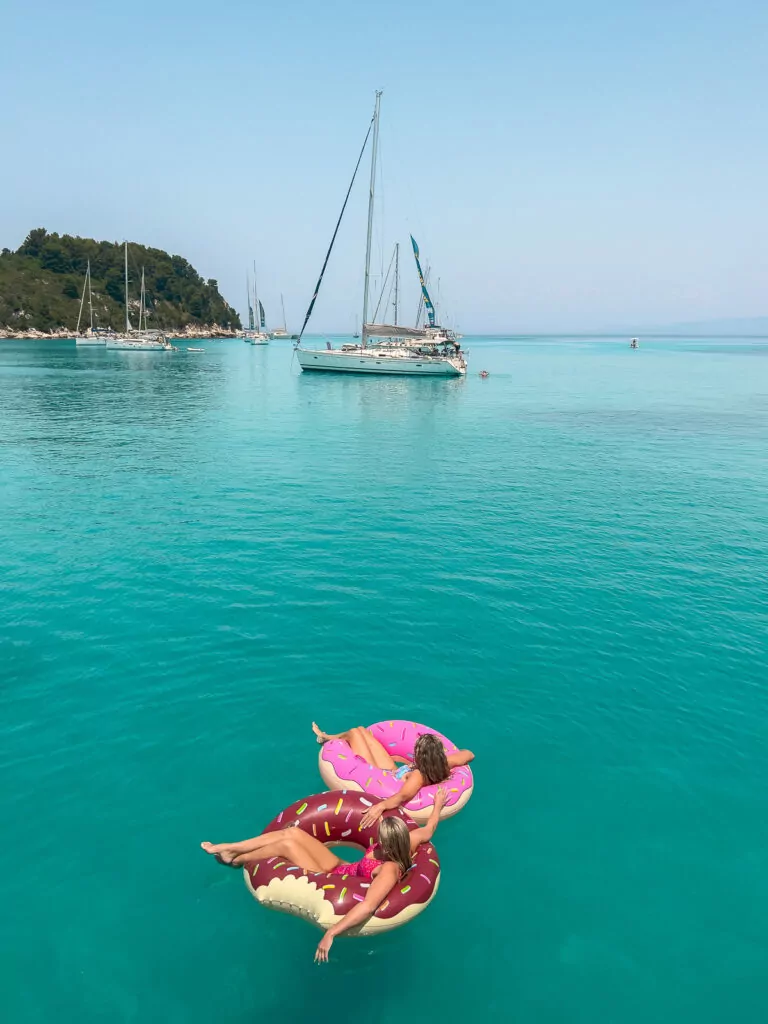
If a cruise is a non-negotiable for you…
If you’ve decided that a cruise is right for you, consider these ways to minimise the negative impact:
- Choose smaller vessels rather than the mega-ships which carry thousands of people
- Visit in the shoulder season (May/June or September/October)
- Skip cruise excursions and book locally-operated tours instead
- Research cruise companies’ sustainability policies and choose an operator that’s genuinely doing something to reduce their environmental footprint
- Consider a cruise in one of the less-visited island groups instead of the Cyclades
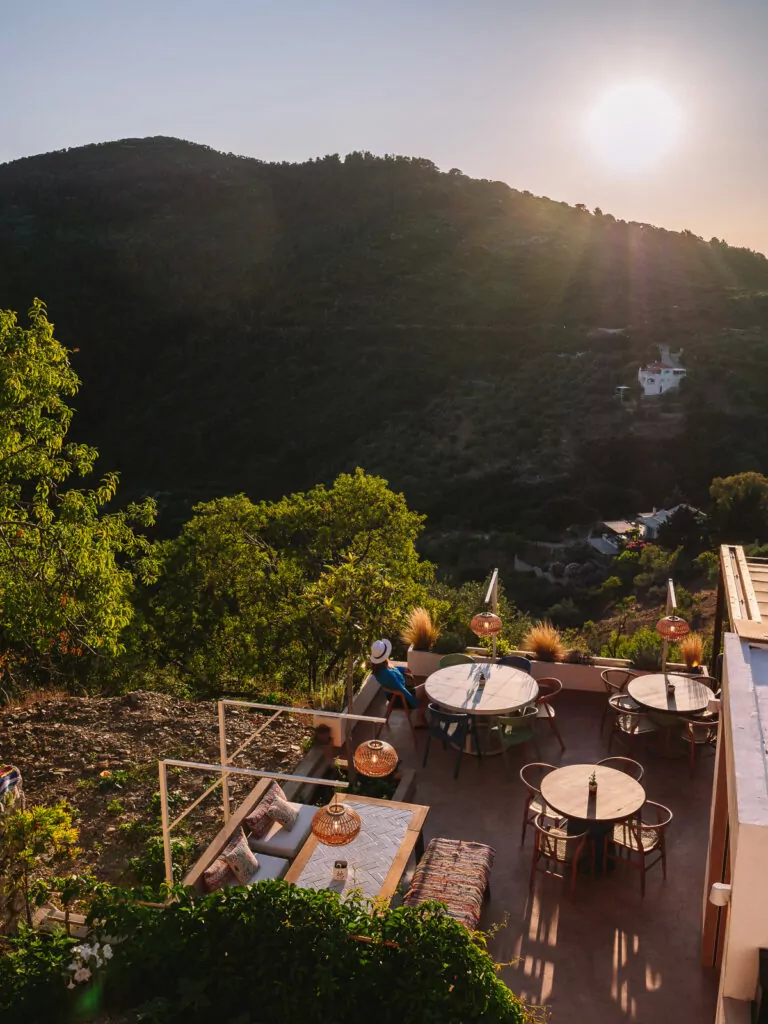
Essentials for planning a trip to Greece
Here are some essential tips for travelling to the Greek Islands and mainland marvels.
How long to spend in Greece
It’s impossible to say, it really depends on where you’re going and what you want to do.
If you only have a long weekend, you’ll want to stick to one destination with an airport so you can avoid ferries. Go to Athens for ancient ruins, Mykonos for a party trip, Santorini for a splurge, or Corfu, Crete, Zakynthos or Rhodes for beach time.
If you’ve got 4-5 days you could stay on one island for a more in-depth adventure, or combine two nearby islands with good ferry connections.
With 9-10 days you could see a few islands within one island group, and with two weeks or more you could realistically split your trip between two different island groups if you’re wanting to get some variation in your Greece itinerary.
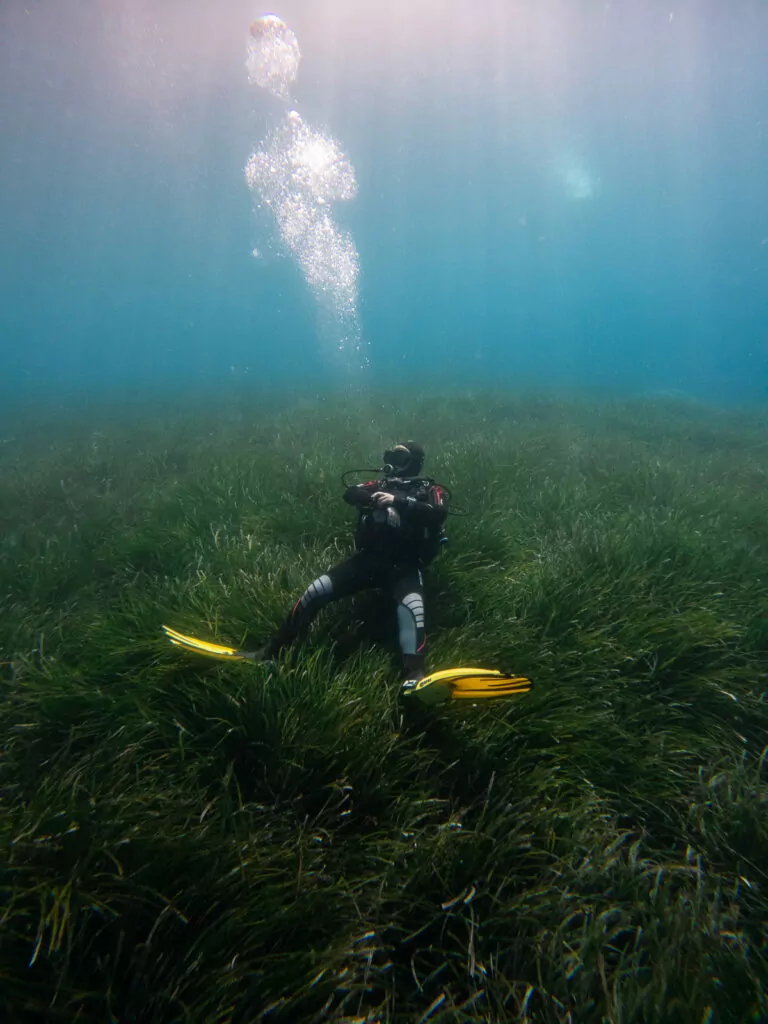
When to book your trip to Greece
For travel in summer, you’ll want to lock in your flights and accommodation around six months in advance to get the best deals, because seats and beds will get fully booked and prices rise with demand. Rental cars in tourist areas also get booked up, I’d recommend confirming your vehicle as soon as you know your travel plans.
Ferries are trickier to book far in advance because some operators only release their schedules 3-4 months before travel, just lock in your tickets as soon as there’s an option that suits you.
Shoulder season is a bit more chill, but last minute prices can still be a nasty surprise! Try to book 6-8 weeks out to avoid being stuck with no decent options.
Low season is more flexible but lots of hotels close for the winter, which means fewer places to choose from. If you leave it too late you might only have either luxury hotels or budget backpacker hostels on offer.
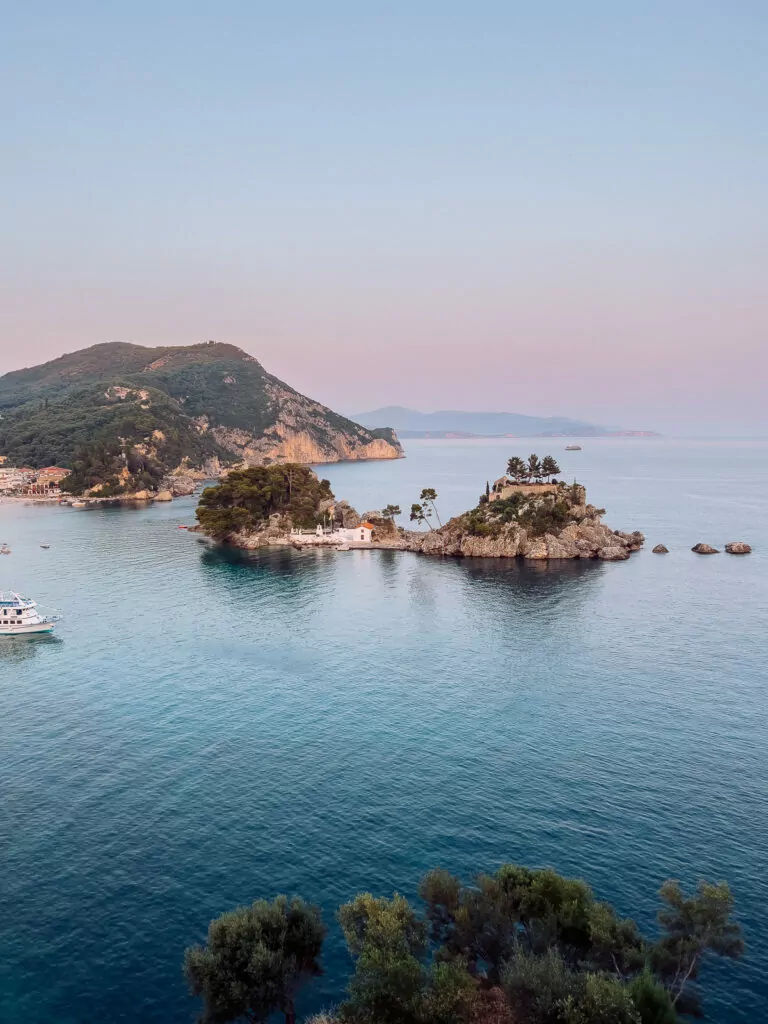
What to budget for your Greece trip
Accommodation costs in the shoulder season
All prices are based on my research for 2025 travel, booking 4-6 months in advance, for places rated at least 8/10 and in a convenient location.
- Athens: €15-20 for a dorm bed at a basic youth hostel, €30-40 for a dorm bed at a fancy hostel, €40-50 for a simple private room, €70-120 for a mid-range hotel, €140+ for a luxury hotel
- Popular islands: €20-30 for a dorm bed at a basic youth hostel, €40-70 for a dorm bed at a fancy hostel, €50-80 for a simple private room, €80-140 for a mid-range hotel, €160+ for a luxury hotel
- Under-the-radar islands: €30-60 for a simple private room, €60-90 for a mid-range hotel, €120+ for a luxury hotel
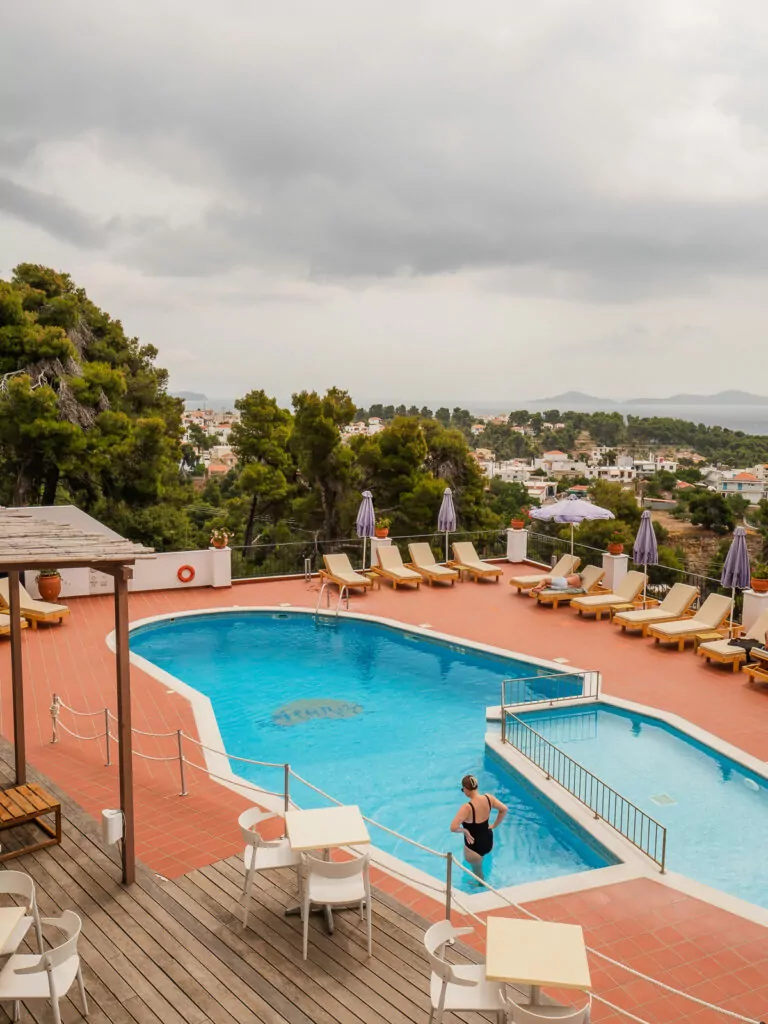
Accommodation costs in peak season
All prices are based on my research for 2025 travel, booking 4-6 months in advance, for places rated at least 8/10 and in a convenient location.
- Athens: €20-25 for a dorm bed at a basic youth hostel, €30-60 for a dorm bed at a fancy hostel, €40-80 for a simple private room, €100-150 for a mid-range hotel, €180+ for a luxury hotel
- Popular islands: €20-35 for a dorm bed at a basic youth hostel, €40-80 for a dorm bed at a fancy hostel, €60-100 for a simple private room, €120-160 for a mid-range hotel, €240+ for a luxury hotel
- Under-the-radar islands: €40-60 for a simple private room, €90-140 for a mid-range hotel, €150+ for a luxury hotel
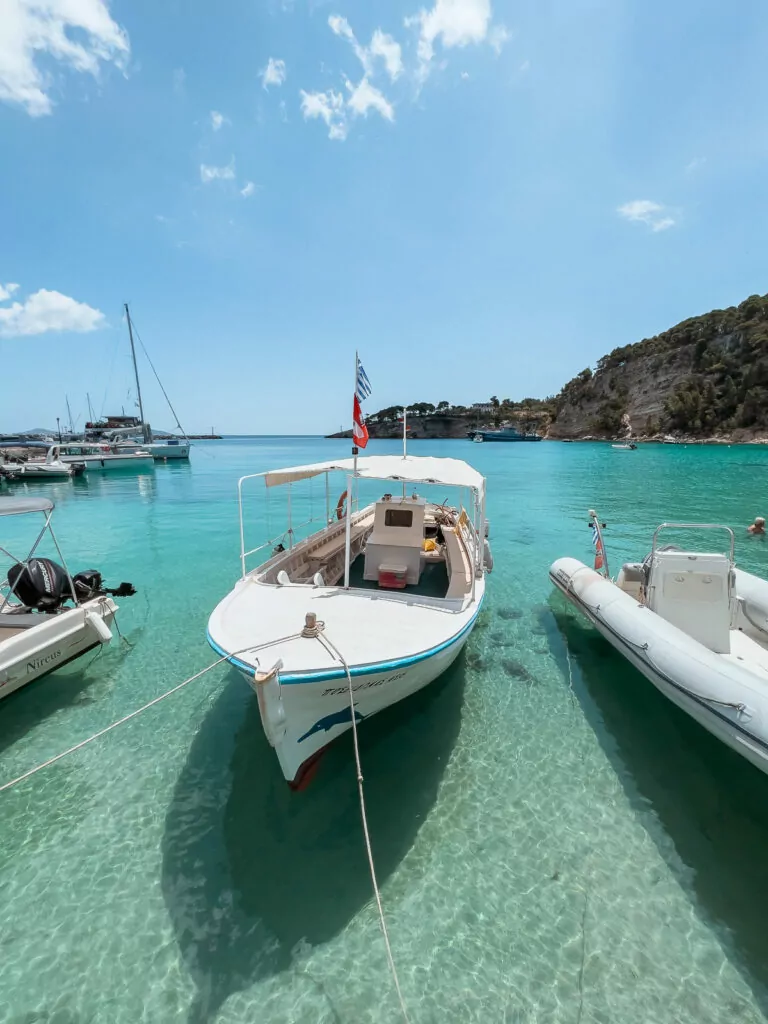
Transport costs
- Domestic flights from Athens to the islands generally from €30-150 one way depending on demand
- Ferry tickets between islands from €20-100 one way
- Local transport very cheap, €1-3 per bus journey
- Buses between regions on the mainland from €10-50
- Taxis can be very expensive, always ask to use the meter and in Athens just book taxis through Uber so you get a price estimate before the trip
- Scooter/quad bike hire from €20-40 per day
- Car hire from €30-100 per day depending on demand
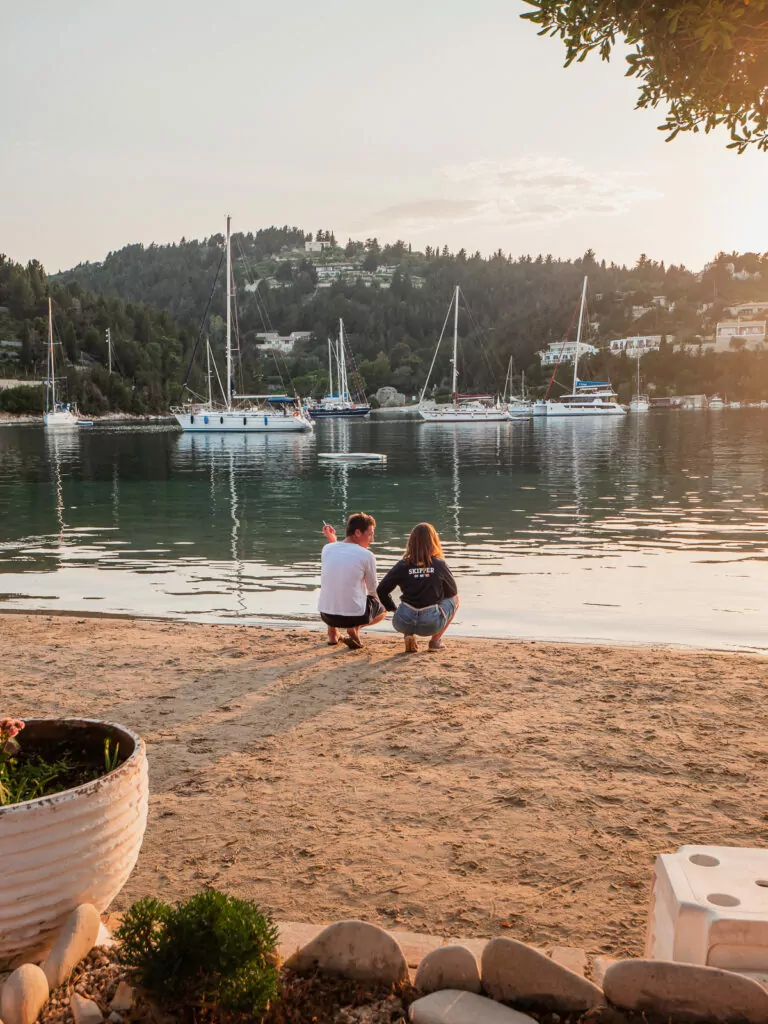
Food costs
All prices based on my Greece trip in September 2024. Prices in Santorini, Mykonos and other touristy areas will probably be 20-50% higher.
- Gyros from €2-5
- Bakery treats from €1-2
- Hearty lunch or dinner at a casual taverna €10-20
- Local beer from a supermarket or convenience store €0.80-1.50
- Local beer at a restaurant €2.50-4
- Cocktails €8-12
- Bottle of table wine at a restaurant €6-10

Activity costs
- Museums and ruins anywhere from free to €20 entry
- A shared day trip on a boat €30-120
- Private yacht cruise in Santorini €350+
- Water sports like jet skiing, crazy couch, banana boat from €30-100 per half hour
Money tips
Cash vs. card
Greece used to be a predominantly cash-based economy, but the pandemic switched things up a bit and now cards are accepted in most places tourists would go. I use my Wise debit card for all my travel spending!
In saying that though, on more local islands or for smaller purchases you might need cash, so always have some Euro coins and notes with you.
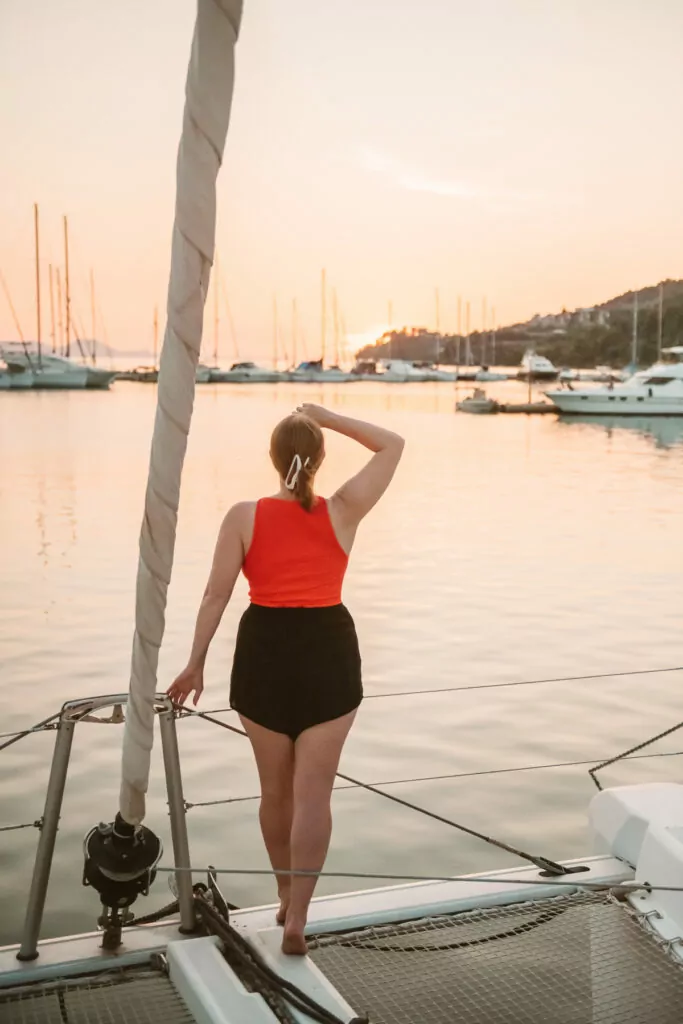
ATMs in Greece
You’ll find ATMs all over Greece, but on small islands they might only have one or two and they’ll generally be located near the port.
Where possible, use a bank-owned ATM to withdraw cash, like Piraeus Bank, Alpha Bank or Eurobank. Bank-owned ATMs generally have lower fees than private ATMs like EuroNet (a.k.a. the devil ATM). Most bank-owned ATMs will charge a withdrawal fee of €1-3, vs. private ATMs which can charge €4-6.
When you’re withdrawing money from a foreign card, the ATM might offer you an exchange rate to your local currency, e.g. if you want €100 it might come up with a screen showing you the exchange rate to USD and then an option to accept or decline the converion.
⚠️ Always decline the conversion ⚠️
One of the most important budget-related things to know before travelling to Greece (or anywhere else).
The exchange rate they use is often hugely marked up, like 5-15% more than what your bank will charge! If you press ‘decline’ it’ll just use your bank’s exchange rate which will be much better.
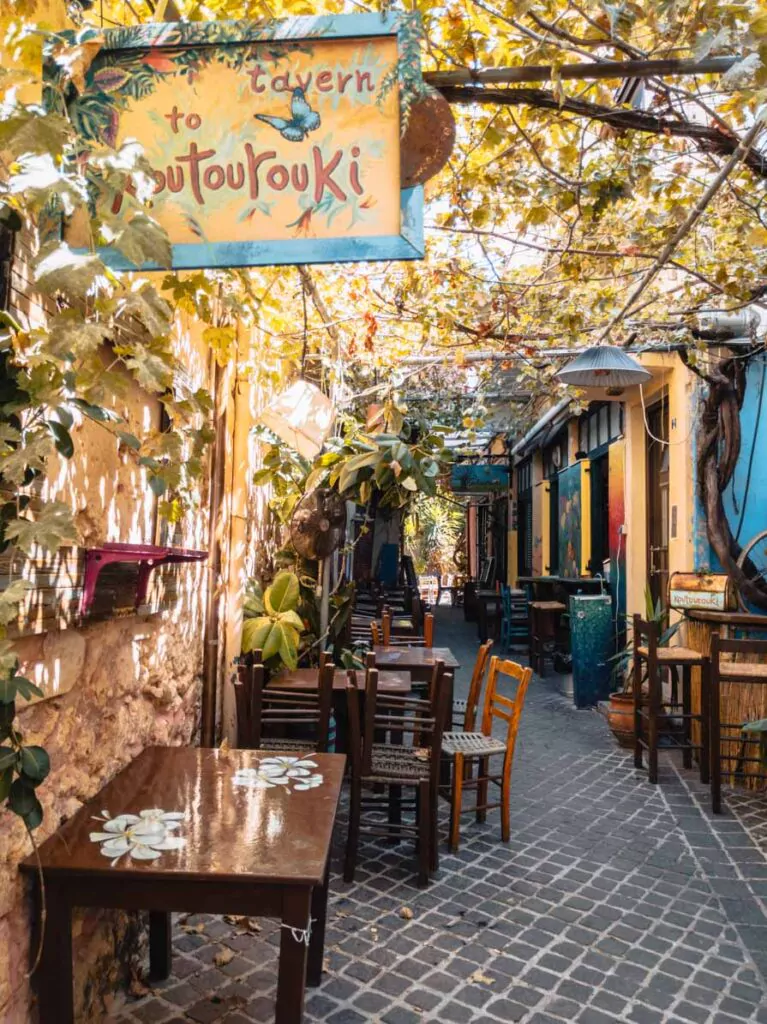
Tipping
This is a controversial one (as always) and it depends on who you speak to!
Tipping isn’t mandatory in Greece, but in tourist areas it’s become the norm because of so many tourists who are used to tipping back home. If you’re clearly American then hospitality workers will probably expect a decent tip (but won’t be angry if you don’t leave one), however if you’re a local or clearly from elsewhere then they wouldn’t be surprised if you just round up the bill or don’t tip at all.
The problem with tipping creeping into the economy thanks to international visitors is that it puts those services further out of reach for locals. Greek workers are paid a living wage, and if tipping 15-20% becomes standard it’ll make restaurants and services unaffordable for people who live there year-round. This is one of those situations where we should listen to what locals want, a quick Google search of ‘should you tip in Greece?’ will bring up some fiery debates.
To find the balance, typical tips are as follows:
- 5-10% for nice restaurants if the service was good, or round up the bill for more casual eateries
- Round up the bill for a taxi *as long as* they haven’t tried to rip you off already 🙃
- Leave any small coins for bakeries, cafes or gelato shops
- Tip tour guides 10% of the tour price
- Tip skippers 5-10% of the tour price for multi-night sailing tours
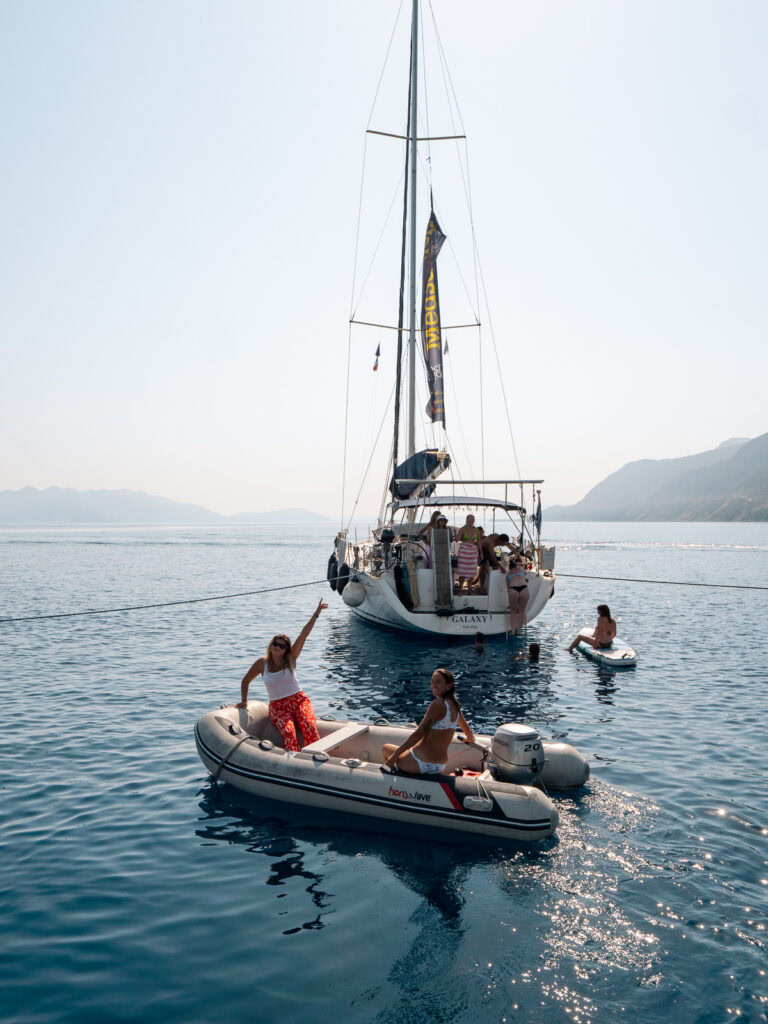
Do you need a visa to visit Greece?
Visa requirements for Greece depend on your passport. It’s part of the Schengen zone, so the same rules apply as other Schengen countries.
If you’re from a Schengen, EU or EEA country, you don’t need a visa for Greece.
If you’re from a country with visa-free access to the Schengen zone (like the USA, UK, Canada, New Zealand and Australia) then you can spend up to 90 days within any 180 day period in Greece and other Schengen countries, without needing a visa. That 90 days is the total you can spend in the zone, not per country.
If you’re from a country without a visa-free agreement with Greece, you’ll need to apply for a short-stay Schengen tourist visa.
Important: In 2025, the ETIAS system will launch and travellers from 60 visa-exempt countries will need an ETIAS travel authorisation to visit the member countries, similar to the ESTA system in the USA. The authorisation will be easily applied for online and it’ll cost €7, valid for three years or until your passport expires (whichever comes first). The ETIAS launch has been pushed back multiple times though and at the time of writing (December 2024) they expect it to be live in mid-2025, but double check the official website while you plan your trip to Greece so you know if you need to do this.
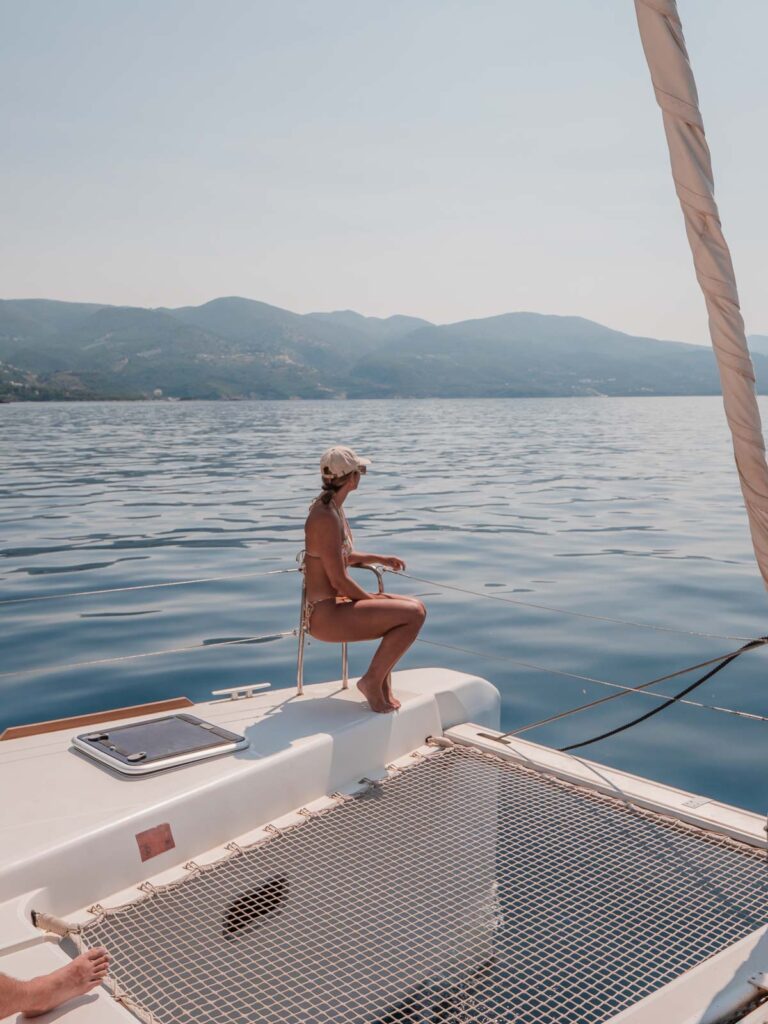
Where to stay in Greece
Types of accommodation
Greece has loads of different accommodation options but the inclusions and standards can vary drastically, so here are some important things to know before booking your trip.
Budget accommodation
In Athens, Santorini, Mykonos, Corfu, Crete and Rhodes, there are a range of cheap options from classic social youth hostels, to fancier boutique hostels, to small local guesthouses or private rentals.
Hostel prices vary hugely, from €15-20 for dorm beds at the basic backpacker hostels through to €70-80 for a dorm bed (yes, you read that right) at the ‘glampacking’ hostels in Santorini and the like. Wild 😲
If you want a private room then some hostels offer these too, priced anywhere from €35-100 per night, though you’ll probably get better value for money booking a local guesthouse, budget hotel or private studio/apartment instead.
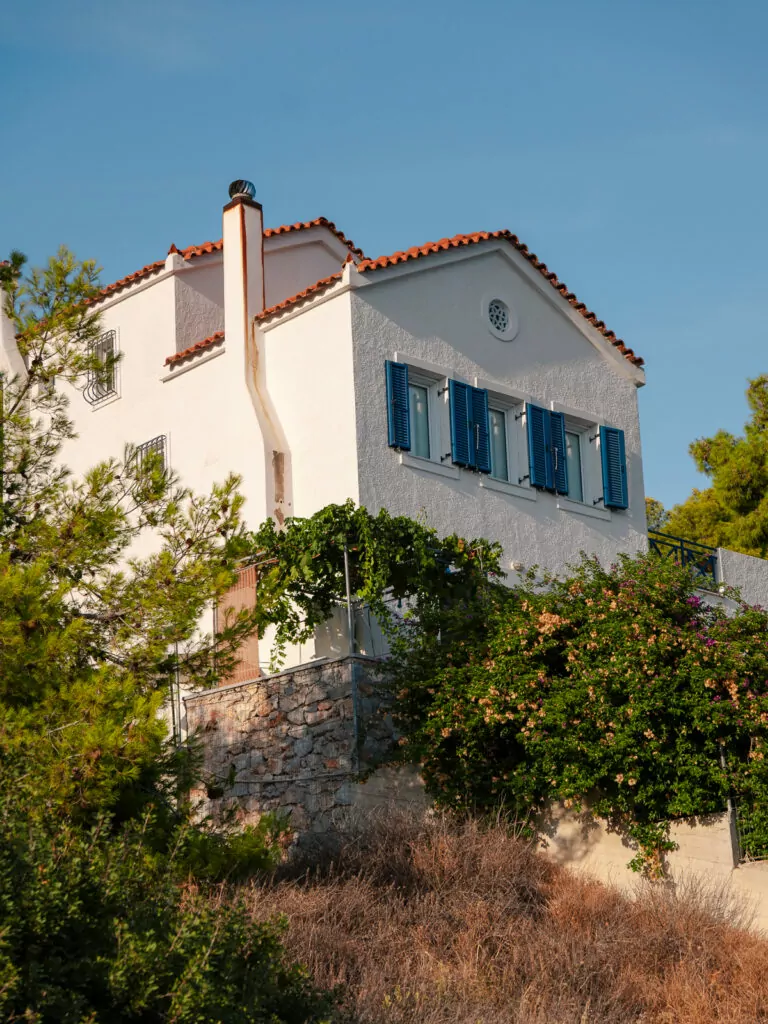
Privately-owned accommodation
All throughout the mainland and Greek islands you’ll find lots of local accommodation like private villas, rental apartments and small guesthouses. These locally-owned places can be significantly cheaper, however there can be hidden costs or inconveniences. The main things to be aware of are:
- If it’s somewhere without a reception then check in can sometimes be a nightmare, having to wait for someone to arrive with a key (sometimes for 45 minutes in the midday heat after a six hour bus journey where you’re just desperate to go to the bathroom 🙃)
- Luggage storage often isn’t an option, so if you aren’t leaving the island until later in the day you’d need to carry your bags around or find a storage location (generally €5-8 per bag per day)
- The standard may not be what you’d expect compared to other countries. Private accomm might not have air con, WiFi might not work very well, often there are just sheets on the bed rather than having a duvet or comforter (super common in Balkan countries)
- Even if you book through a trusted accommodation site like booking.com, private places often have strict cancellation policies and may not accept card for payment
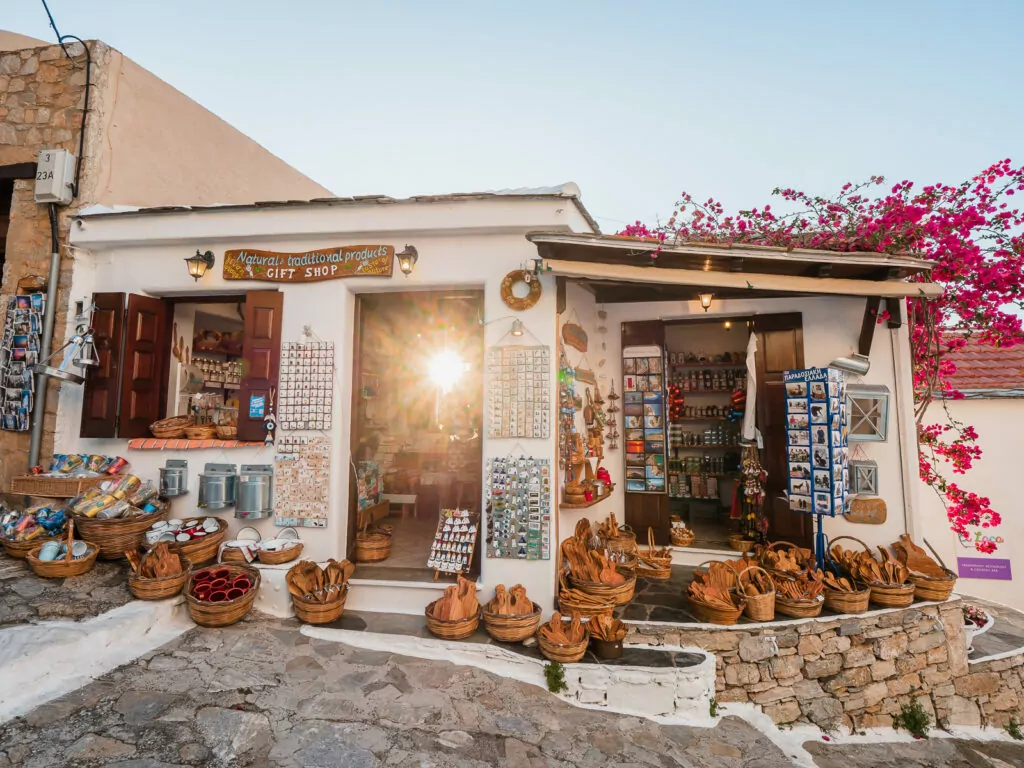
Of course there are positives too, local accomm can be perfect for:
- Big groups or families
- Longer stays
- More remote areas where tourist infrastructure is limited and therefore expensive
- Travellers wanting a more traditional Greek hospitality experience
- Return visitors who are confident navigating any potential hiccups
- People wanting kitchen facilities to self-cater
Some privately-owned villas and guesthouses offer brilliant value for money and a much nicer experience than a hotel, it’s just important to do your research before booking.
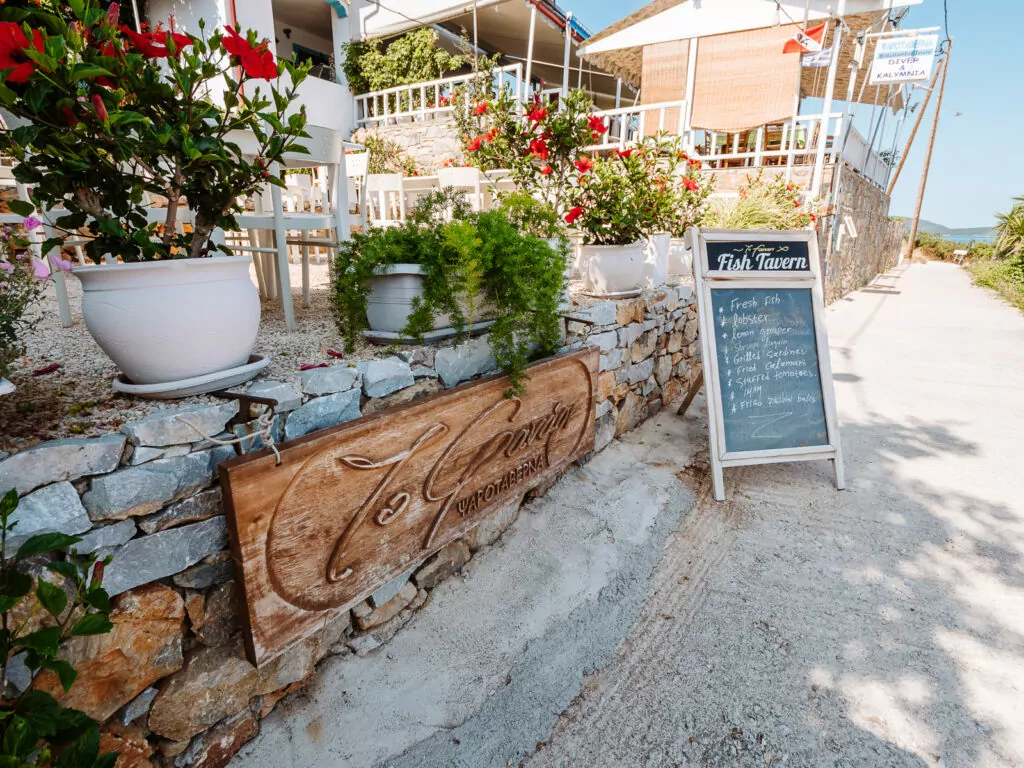
Hotels & resorts
You’ll find hotels on pretty much every island, but some smaller islands might have fewer options which book out in advance. Proper resorts are mostly found on the bigger islands like Santorini, Crete, Mykonos, Corfu etc., with some internationally-recognised chains (like Radisson Blu) but mostly independent resorts or Greek chains.
Standards and prices will range from simple family-owned hotels from as low as €40 a night, often with breakfast included, through to world-class luxury hotels for thousands per night, and lots of options in between.
Most hotels will have air con (but check to be sure), many of them have swimming pools or access to a neighbouring hotel’s swimming pool, and generally they allow luggage storage free of charge. Budget hotels can be very simple though, so compare facilities/amenities before booking anything.
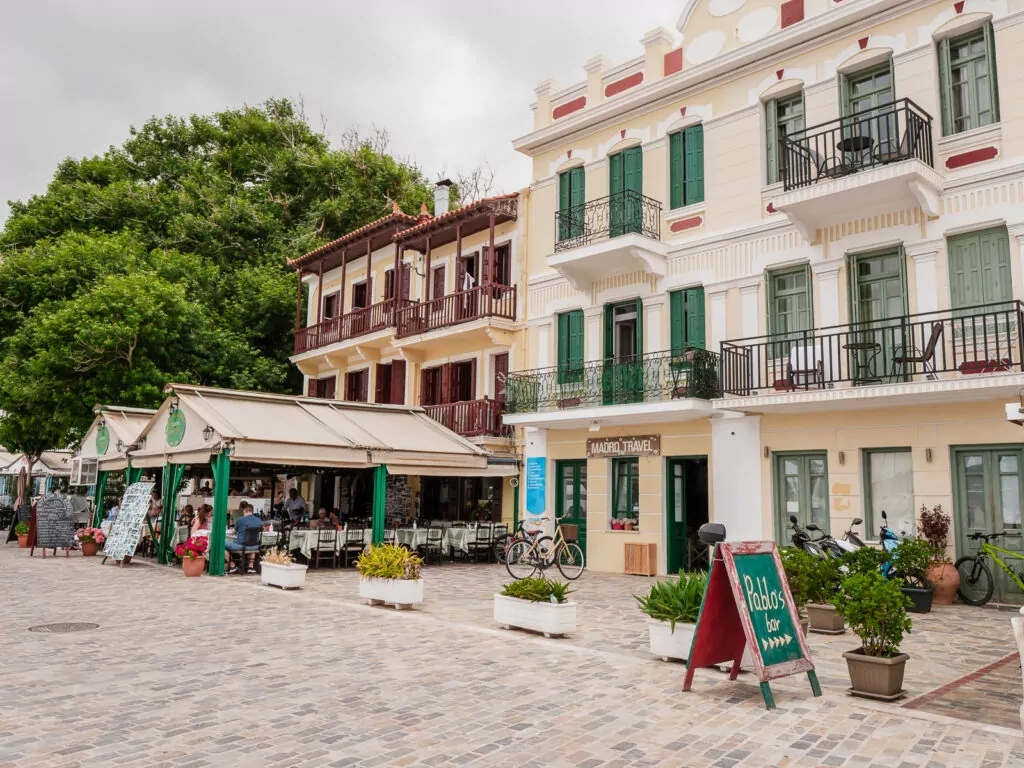
Unique places to stay
There’s no shortage of bucket list stays in the Mediterranean, and I always like splitting my holidays between value-for-money accommodation to start with, and then ending with a night or two somewhere epic!
If you’re celebrating something special, or if you just deserve a little treat, here are some insane accommodation experiences that’ll make your Greece adventure absolutely unforgettable:
- A cave house in Santorini
- Beach glamping tents in Nikiti on the mainland
- A windmill in the Cyclades
- An agrotourism farm stay
- An overwater bungalow at Stella Island Resort near Heraklion, Crete
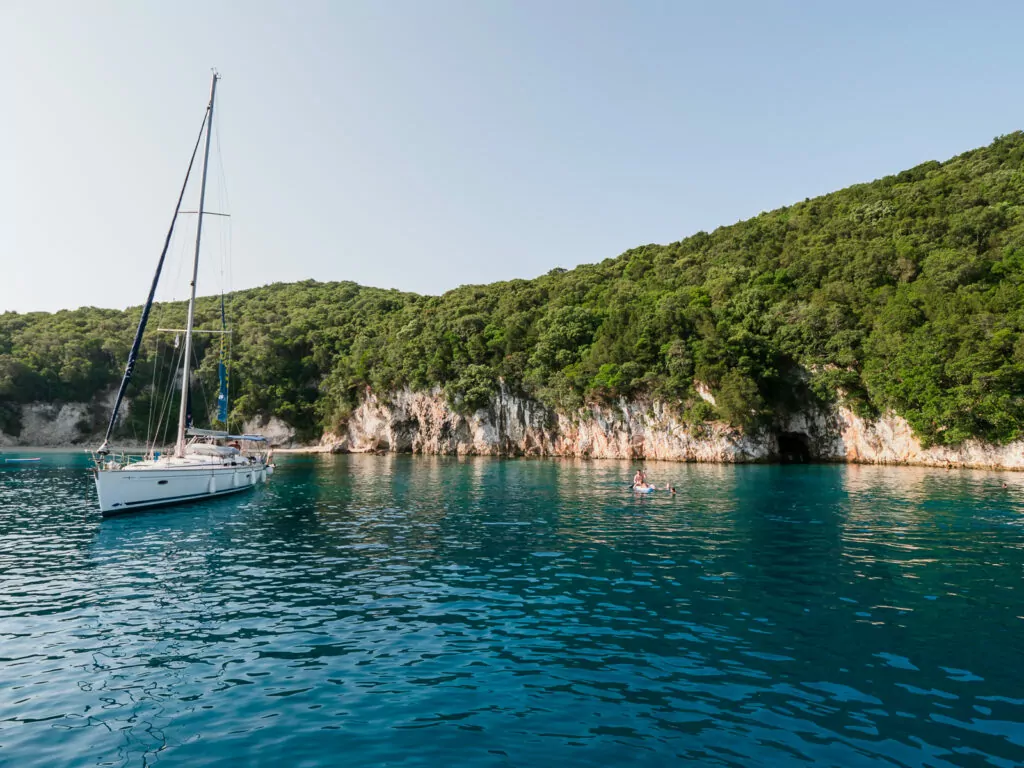
What to check before booking
Here’s a quick list of things to double check in the accomm details before you book:
- Location, is it accessible by foot, is it close to any public transport, or will you need a vehicle? If the latter, is parking included?
- Swimming pool access + dates the pool is open if you’re booking out of season, some hotels close their pools from mid-September
- If breakfast is included, and what food options are available nearby
- How to get there from the airport
- Can you pay with cash or do they take card
- Check in and check out times, and luggage storage if you arrive early/leave late
- Photos and reviews from recent guests
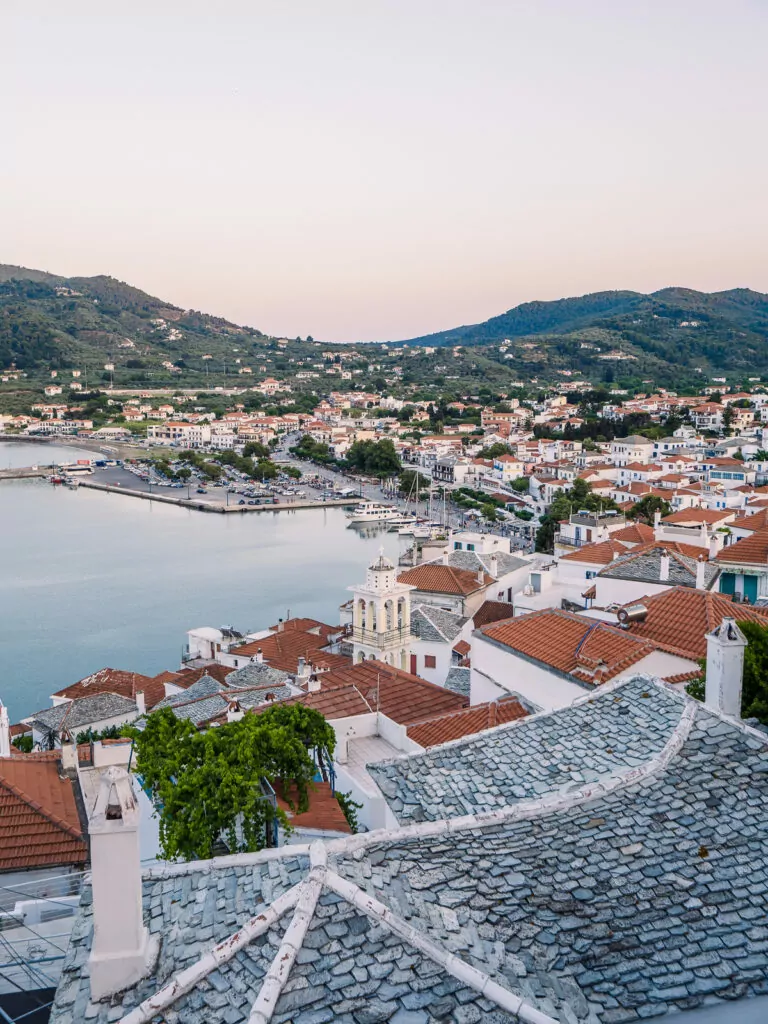
Booking direct vs. using booking.com (or similar)
While you should always always always book flights directly with the airline, to avoid having to deal with OTAs (online travel agencies) if there are any issues, I’m actually a big fan of using booking.com or similar for accommodation bookings for a few reasons:
- Having all your accomm bookings, invoices and instructions in one app/account makes keeping on top of travel plans much easier, especially for a trip with multiple destinations
- Booking.com has a loyalty programme called Genius which sometimes gives you discounted rates and bonuses like free upgrades, free breakfast etc.
- It’s easier to cancel free cancellation bookings on booking.com rather than dealing with a small hotel directly
- Fees and taxes are clearly shown on the check out page
- You can compare different accomm options using standardised filters to find the best place for your needs, rather than having to click in and out of 20 different hotel websites
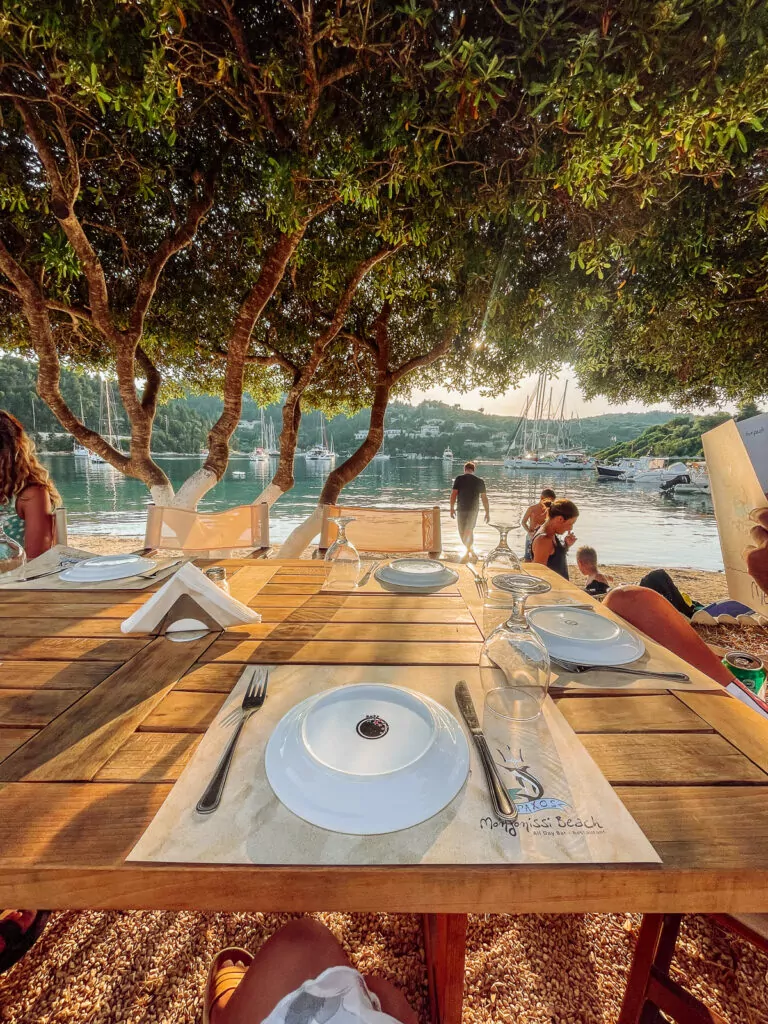
Unfortunately booking through an OTA does mean the hotel has to pay a commission so they get less money, and this is particularly tough for small family-run properties that operate on tight margins. This is a form of tourism leakage and it does contribute to the inequality in the tourism industry between local operators and huge multi-nationals.
But while it’s important to try to support local businesses where possible, you also need to protect yourself and your travel funds. If you’re dubious about a local hotel’s website and don’t feel comfortable booking through it, or if you’re planning a big trip with lots of different hotels/apartments and just want to keep it all in order, booking.com is probably the way to go.
And if you’re committed to maximising the positive impact of your trip, you could always use booking.com’s search function to find the perfect place to stay and then check their own website to book direct if you feel comfortable.
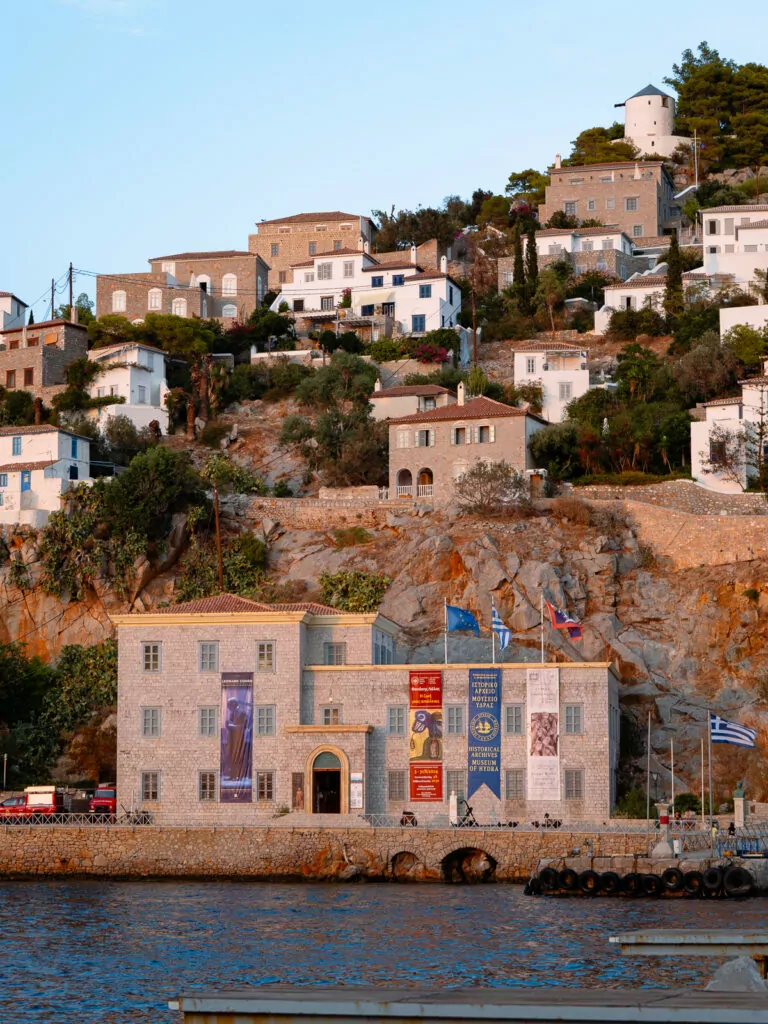
My accommodation recommendations
I’ve stayed in many hostels, hotels and apartments in Greece but these are the ones I have absolutely no hesitation recommending to you:
Athens
- ERMASS Modern Apartments (trendy minimalist studios for a very good price)
- Cabins Sleeping (basic but comfortable private rooms with air con and a mini fridge, better value than private hostel rooms)
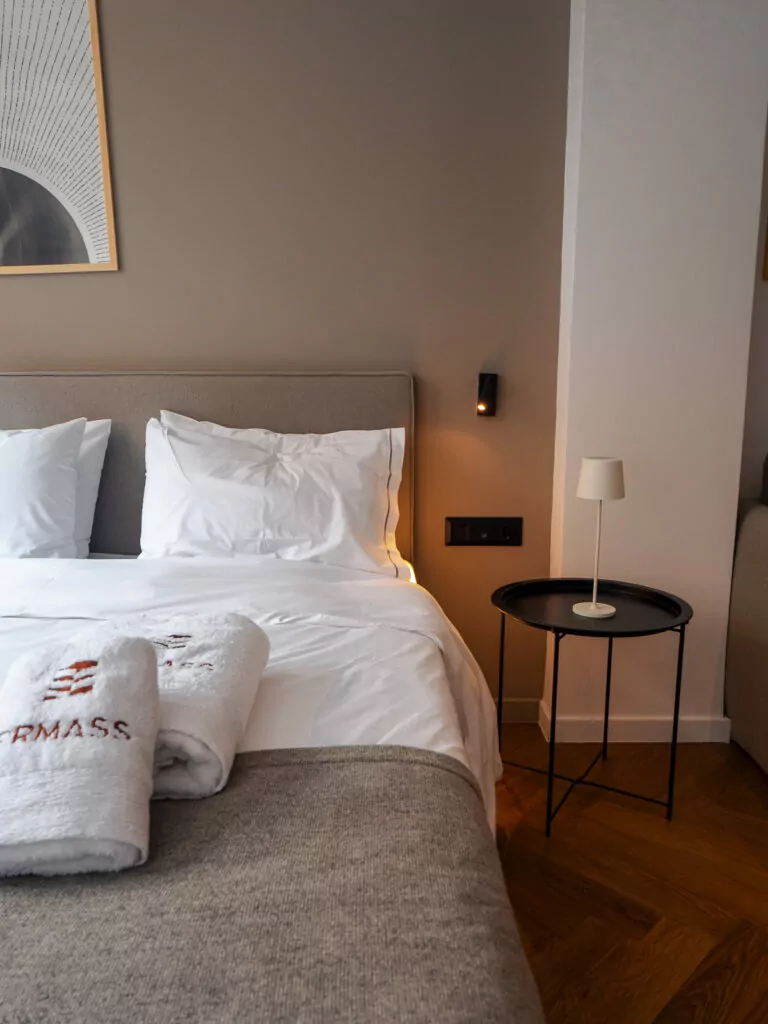
Chania, Crete
- Kumba Hostel (boutique hostel with pod-style beds and private rooms)
- Palazzo di Irene (beautiful apartment right in the old town)
Corfu
- Mathraki Resort (laidback family-owned resort with affordable rooms, you can even stay in a windmill! Use promocode ALEXX for 10% off)
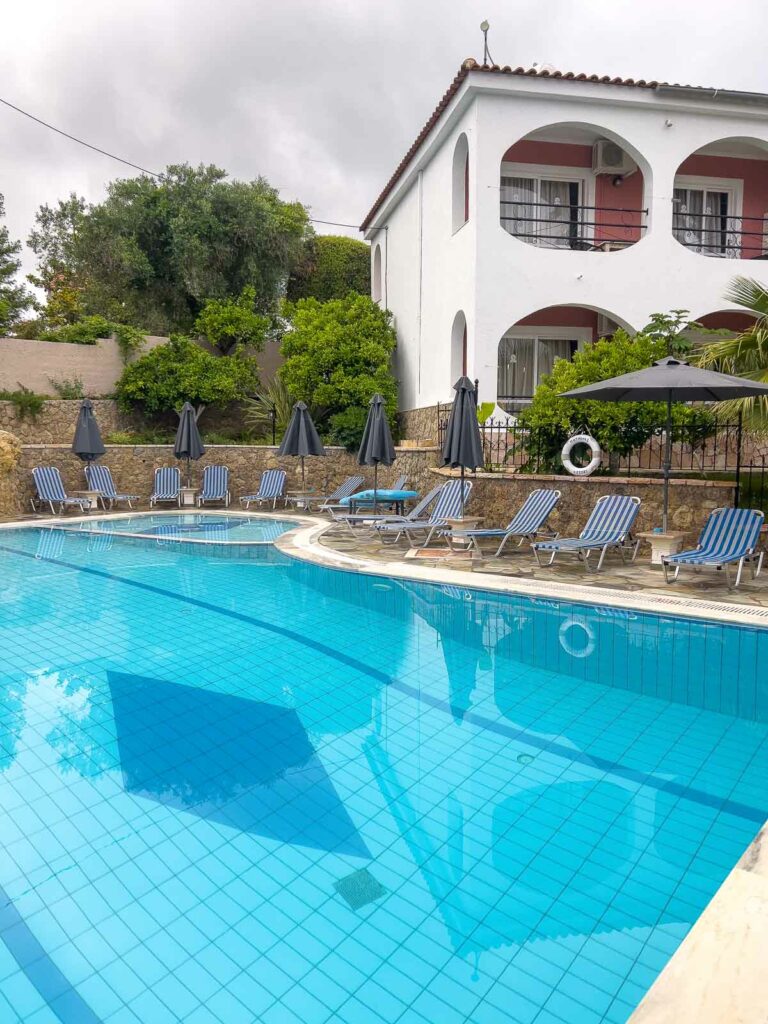
Santorini
- Orabel Suites (I stayed way back in 2017 when they first opened but I am desperate to go back, their reviews are outstanding and the breakfast I had here was the best hotel breakfast I’ve ever had in my life)
Mykonos
- Rocabella Hotel (sleek design hotel with a dreamy pool and panoramic views)
Alonissos
- Atrium Hotel (simple hilltop hotel with spacious rooms, two swimming pools and fantastic staff)
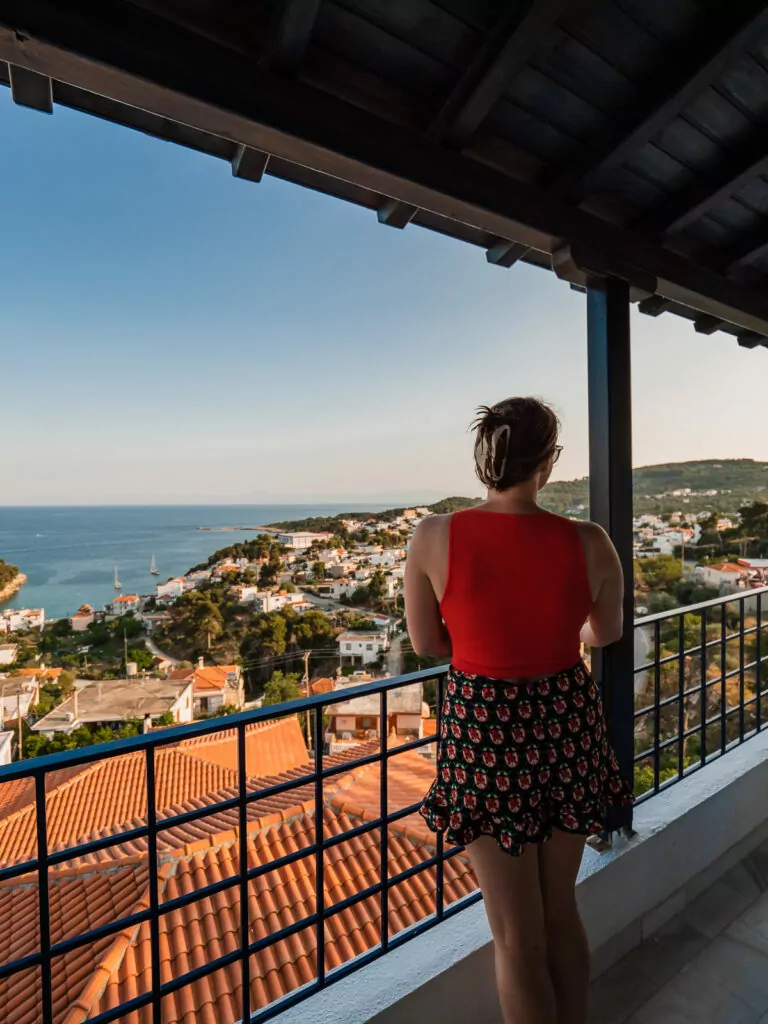
Things to know before going to Greece
Language & phrases to know
Many young people in Greece speak English well, especially anyone working in tourism, but it’s always nice to learn the basics so you can greet and thank people politely.
- Yassas (yah-sas) = Hello (formal / to people you don’t know)
- Efcharisto (ef-kha-ree-sto) = Thank you
- Parakalo (pa-ra-ka-lo) = Please/You’re welcome
- Yamas (yah-mas) = Cheers
- Naí (sounds like ‘neh’) = Yes (which is VERY confusing because our brains automatically interpret this as ‘no’)
- Óchi (this is hard to write phonetically so just watch this video) = No
The Greek alphabet is obviously completely different to ours, the only time this has been an issue for me is at bus stations where I’m looking for the bus to Athens but can only see Αθήνα. You can use Google Translate’s camera function for live translate from Greek to English.
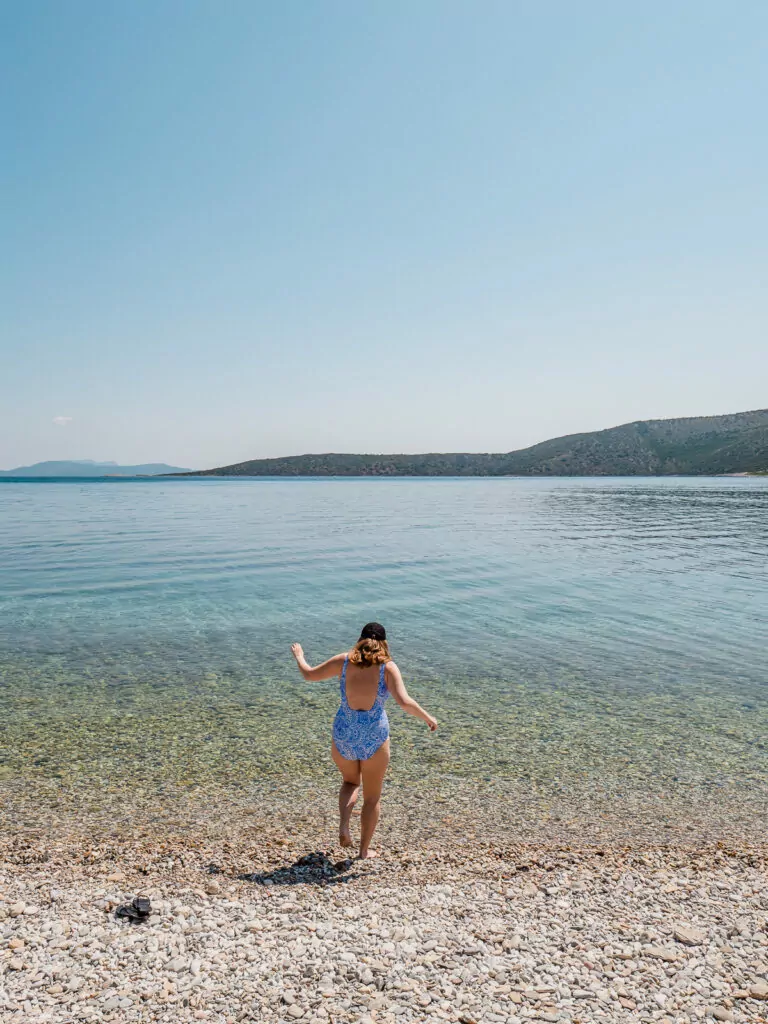
Etiquette in Greece
Etiquette and other random things to know before travelling to Greece:
- Greek time is like island time, no one is in a rush! If you’re checking in to an apartment and the host says they’ll meet you at 2pm, don’t be surprised if they show up at 2.30pm with a smile on their face.
- It’s typical for Greeks to eat late, restaurants might be completely empty until 7.30pm but they’ll be packed until 11pm
- Greek Orthodox is the predominant religion in the country. Younger generations are less involved in organised religion but older generations are still closely tied to the church, especially in more local islands. If you’re visiting any religious sites you’ll need to dress modestly, and it should go without saying but do not walk on church rooftops in Santorini (unless it’s clear that it’s allowed).
- Greece is considered a safe holiday destination for LGBTQ+ travellers, they legalised same-sex marriage in February 2024 and they’re the first Orthodox Christian-majority country to do so. Mykonos and many other islands have a thriving rainbow scene, smaller islands might be more conservative.
- Smoking is very popular, smoking indoors in public places (restaurants, nightclubs etc.) is prohibited but that doesn’t seem to stop people
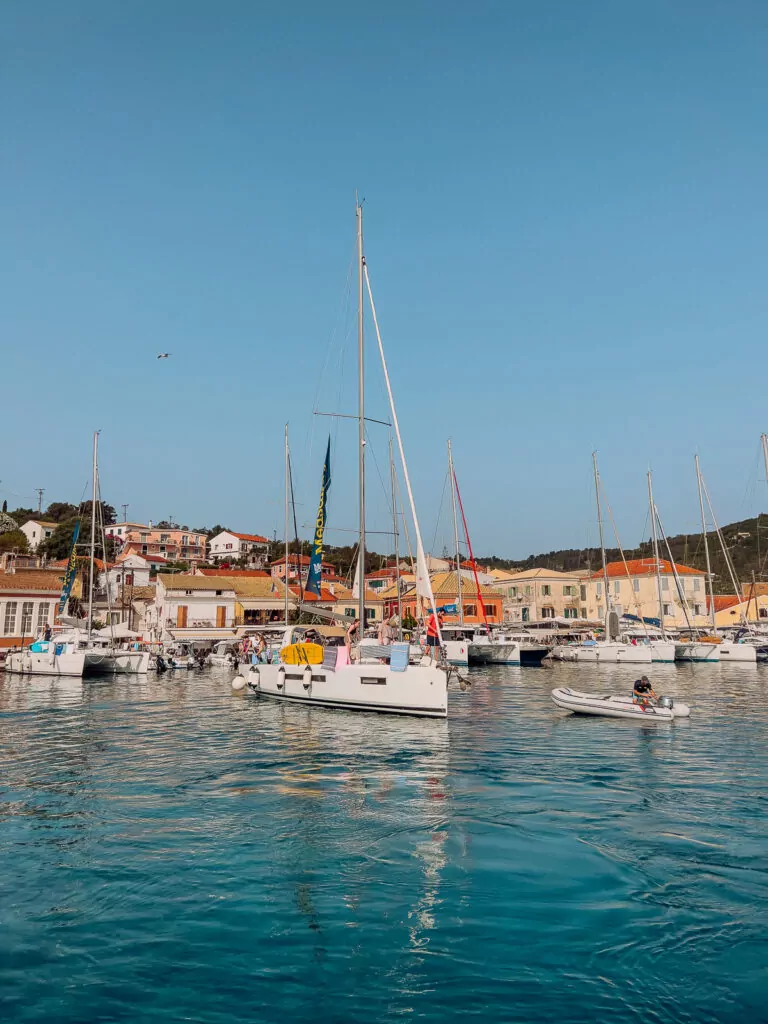
Food & drink tips
- Greek cuisine is hearty and delicious, with lots of focus on locally-sourced ingredients and fresh seafood. Be sure to try local specialties when you visit different islands.
- Walk 2-3 blocks away from tourist areas and the port to find better restaurants
- If a restaurant has someone outside trying to coax you in, or if they have a menu board translated into 3-4 different languages, find somewhere else. These places are usually tourist traps!
- Google reviews are gospel
- House wine comes by the bottle/carafe and is cheeeap
- Tap water is safe to drink throughout most of Greece, but on many islands it’ll have a slightly salty taste as its desalinated ocean water
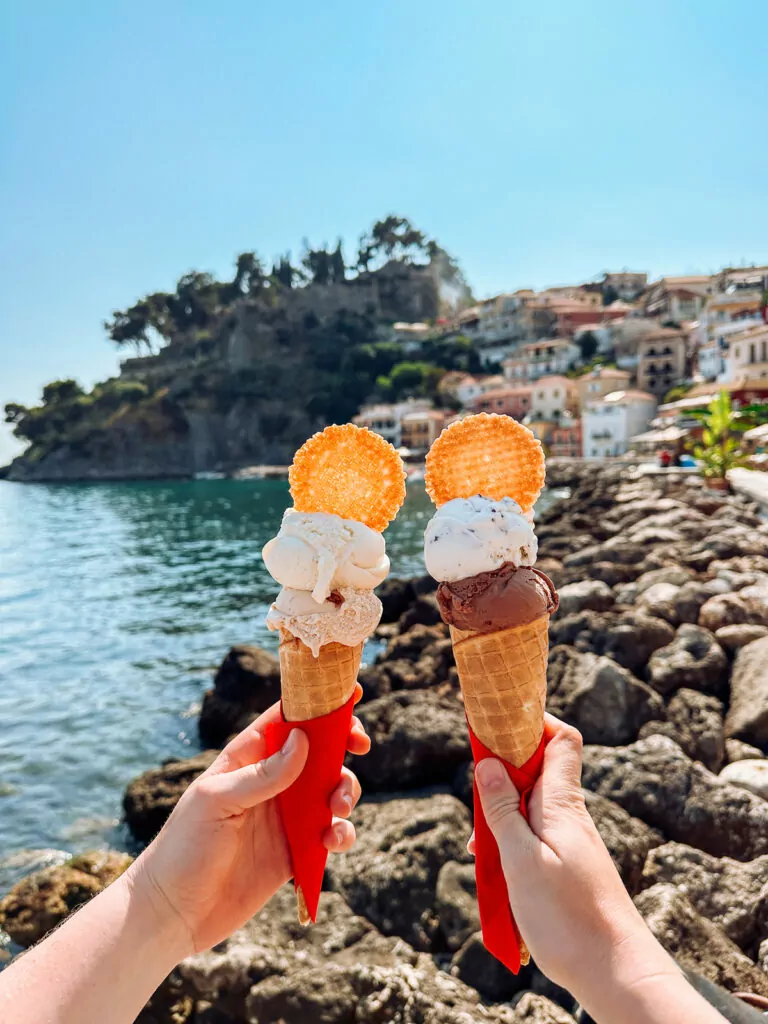
Health & safety
Is Greece safe to travel to?
Greece is overall a safe country, I’ve never had any safety concerns during my six visits.
Some parts of Athens can be a bit dodgy with petty crime, like any European capital, but the islands rely on tourism so most people are warm, welcoming and helpful, and crimes against tourists would be dealt with swiftly.
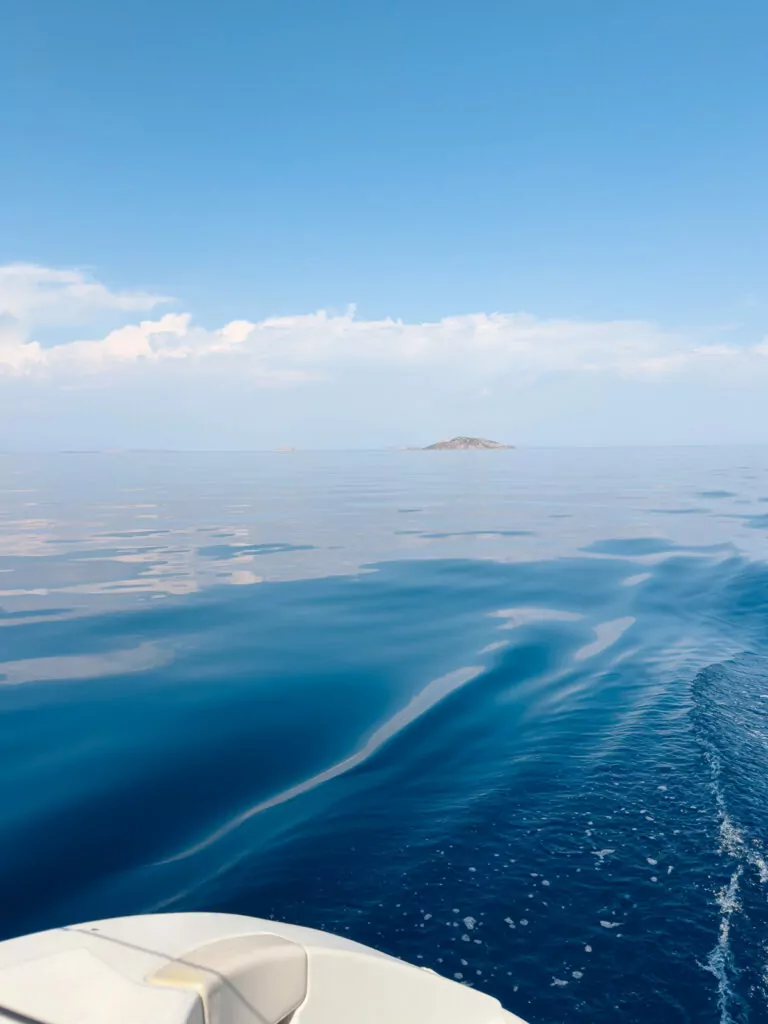
Health & safety risks in Greece
You should take the usual safety precautions for travelling in Greece, like keeping your valuables safe and being careful at night, but there are some Greece-specific risks to be aware of too:
- Extreme weather, especially heat in summer, is probably the biggest danger. Heatwaves can be deadly, if you’re visiting in July and August be sure to take weather warnings seriously, stay hydrated, and avoid being outside in the midday sun if the mercury is in the upper 30s or early 40s.
- Sea conditions can sometimes be rough, though overall Greek beaches are infinitely safer than what you might see in New Zealand, Australia, the USA or other exposed coastlines. Regardless, never swim alone and know your limit.
- Alcohol and the ocean don’t mix well, so if you’re getting amongst the legendary nightlife islands, stay alert enough to get home safely without the risk of falling into the water.

Healthcare
If you do need medical care during your trip to Greece, most tourist areas have English speaking doctors and pharmacists. Pharmacies in Greece are well-equipped to provide first aid stuff and advice for non-prescription medicines, though antibiotics will require a GP appointment.
There is top-notch healthcare available in big cities and major tourist hot spots, but if you’re visiting smaller, local islands then doctors might be few and far between. Ask a local if you need help though, they’ll find someone to come to you or advise you where to go.
Healthcare in Greece is affordable and of high quality, keep receipts and medical notes for insurance purposes.
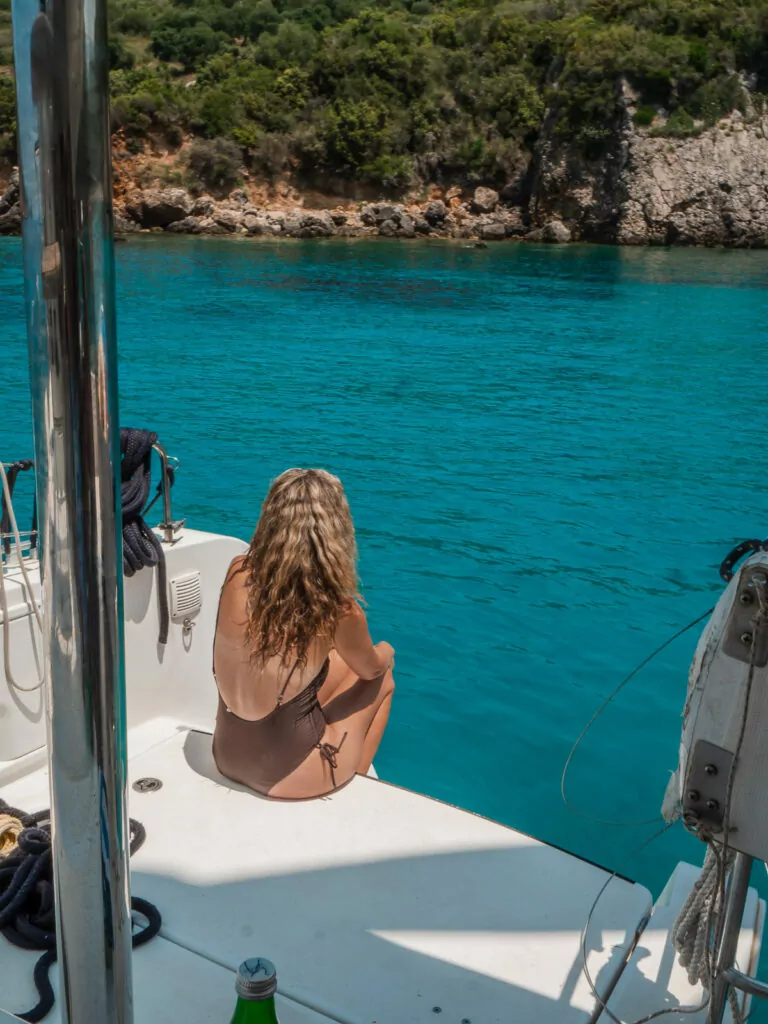
Travel insurance
I always say that travel insurance is a necessity, but in Greece, it really is an absolute necessity. Just ask anyone who’s had a medical emergency on a small island and needed to be evacuated by an air ambulance to get to the nearest hospital 🙃
A comprehensive travel insurance policy should cover things like:
- Medical care and evacuation
- Travel disruptions due to ferry or flight cancellations
- Lost or stolen belongings
- Delayed baggage
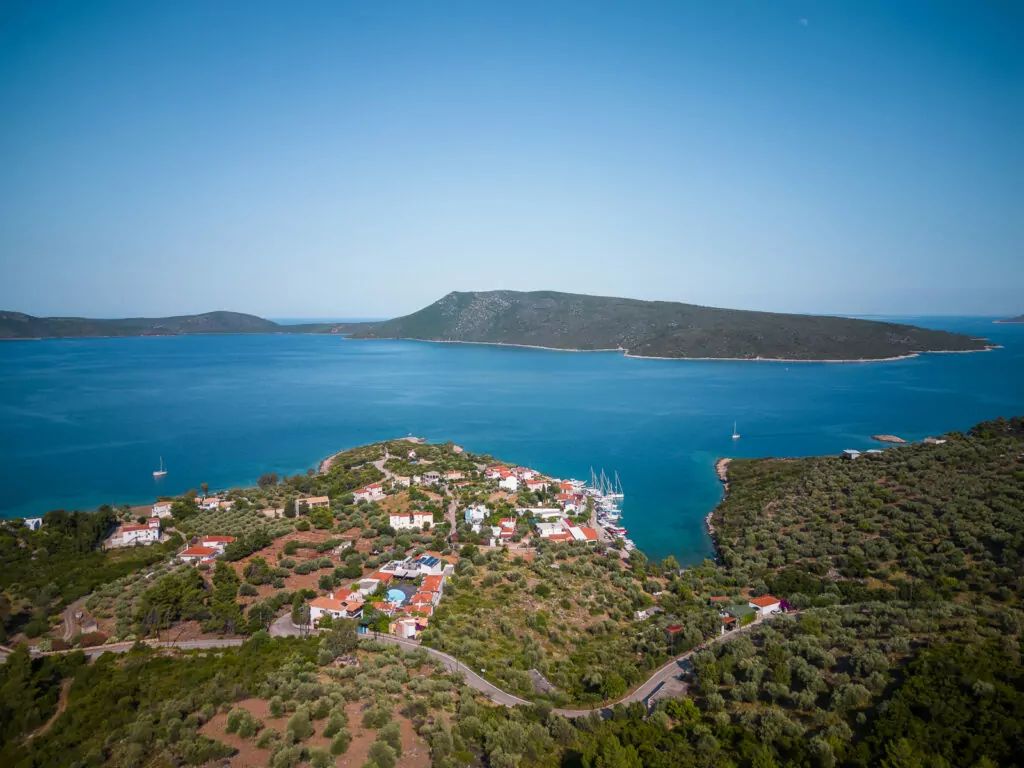
Different countries have different travel insurance providers, so your options will depend on where you live. I use Cover-More New Zealand for my travel insurance every year, they also operate in Australia, and I’ve had fantastic experiences with quick payouts and great communication for the few claims I’ve had to make.
If you live elsewhere then some options to look into are SafetyWing, World Nomads, or read my guide to choosing the best travel insurance policy.
Is Greece safe for solo female traveller?
I’ve spent a decent chunk of time in Greece as a solo female traveller, visiting a bunch of cities on the mainland as well as various islands, and I’ve felt safe the entire time.
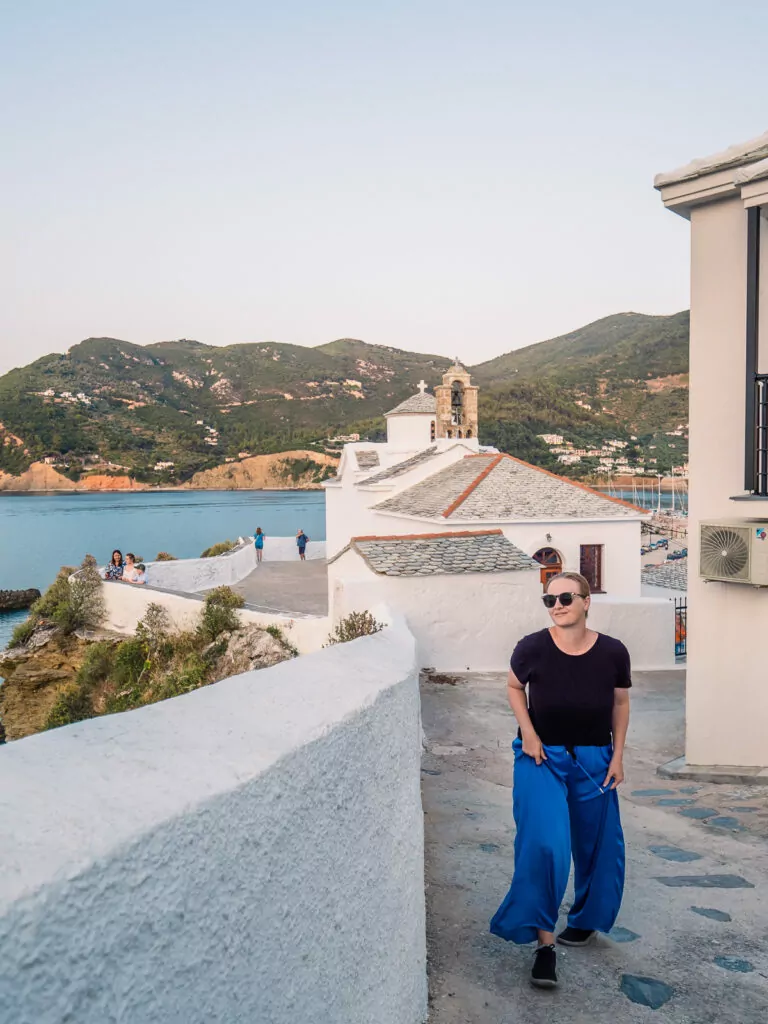
Athens is like any major city so you should take the usual precautions, avoid walking alone at night (book a taxi to get you to your hotel instead) and keep your belongings safe, but I’d be no more concerned in Athens that I would in Paris, Rome or London.
The islands are extremely safe for solo female travellers, probably some of the safest holiday destinations for solo gals in Europe. Restaurants are open well into the evening so there are always people around, solo travellers are common so you won’t stand out from the crowd just for being alone, and though the patriarchy still rules the roost, Greek women are known for being independent, stubborn and strong-willed, and they will always help you if you’re being hassled by a guy.

The best eSIM for Greece
I use eSIMs to stay connected while travelling, this way I can keep my normal phone number to receive calls and verification codes but get access to affordable data plans without paying through the roof for international roaming.
BUT eSIMs can vary drastically in price, and the ones you’ve probably seen promoted (Holafly, Airalo etc.) are wayyy more expensive than they should be.
MobiMatter is my top pick for eSIMs almost anywhere in the world, I’ve been using them for two years now and they have consistently been the cheapest option compared to any other global eSIM provider. In some instances there are local eSIMs available for a slightly lower price, but I like being able to track my data usage and top up on the MobiMatter app, and their Europe eSIMs cover loads of countries for a decent per GB price.
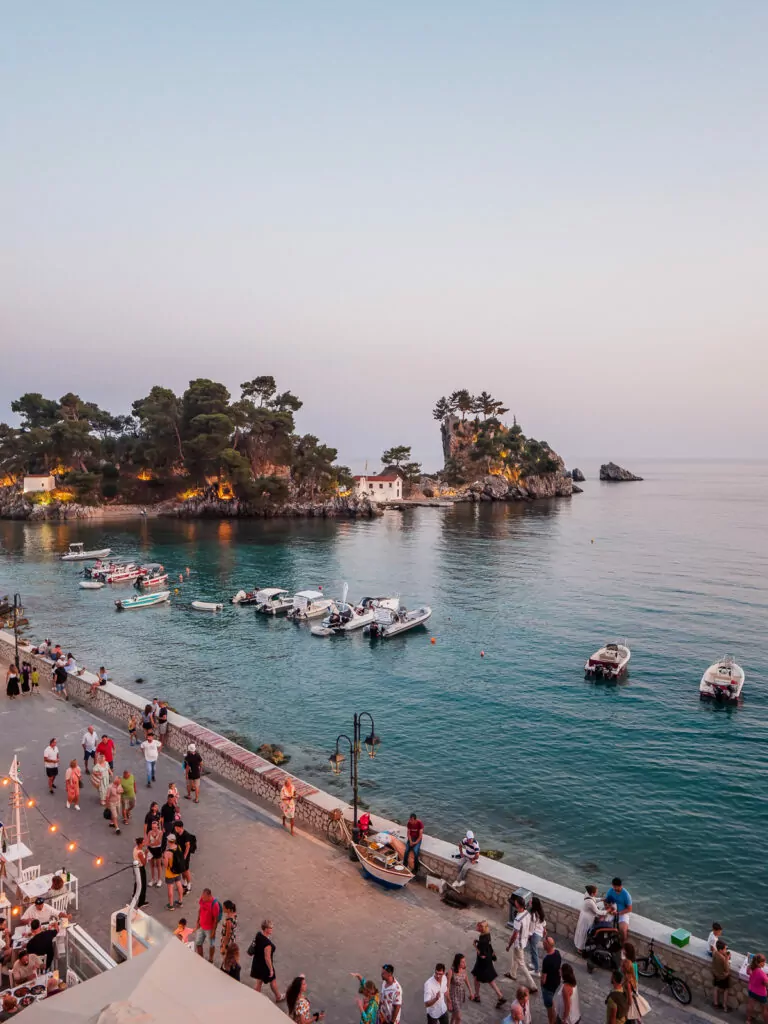
But don’t take my word for it, here’s a comparison with links to check for yourself. Prices in EUR:
- Mobimatter: 30GB in Greece only for €25.50 or 60GB in Europe over 60 days for €50.50
- Airalo: 20GB in Greece only for €48 or 50GB in Europe for €98
- Orange: 30GB in Europe for €39.99 or 70GB in Europe for €49.99 (but only 28 days)
- Nomad: 20GB in Greece only for €31.50
- Saily: 50GB in Greece only over 90 days for €92
- Jetpac: 30GB in Greece only for €24 (slightly cheaper than MobiMatter but only 4G, not 5G)
- Holafly: 10 days unlimited in Greece for €33.90
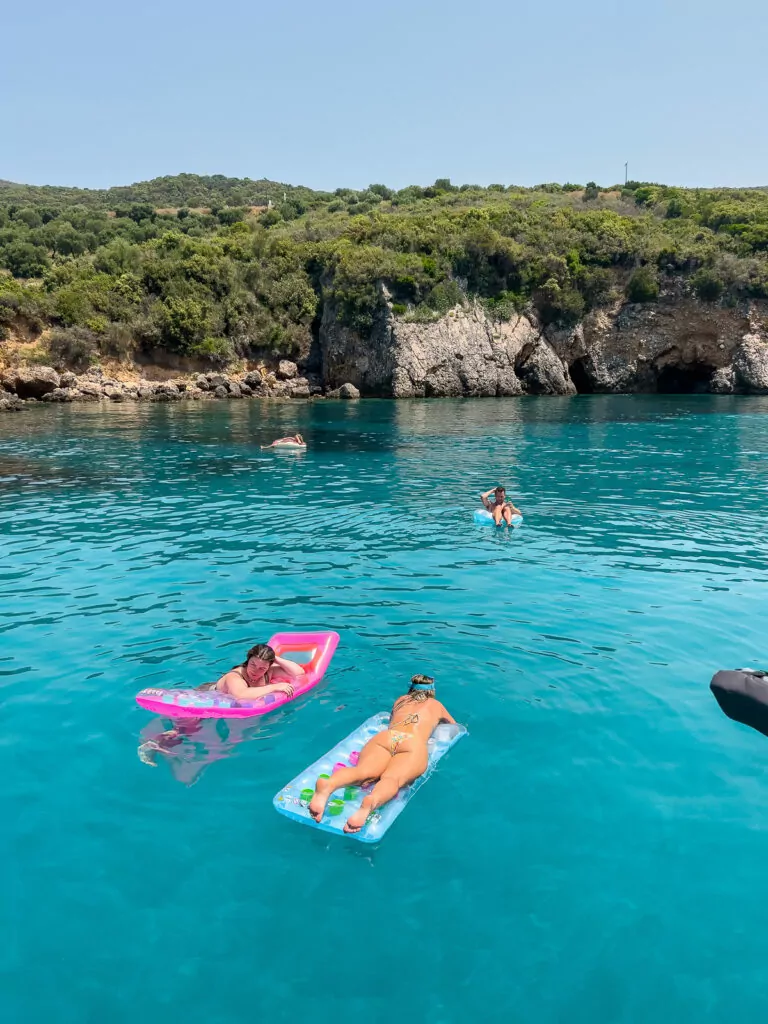
Common mistakes travellers make when planning a trip to Greece
Before you finalise your Greece travel plan, take note of these common blunders that can cause chaos.
Not leaving any buffer days
Rookie error, but so many people travelling to Greece for the first time will do this without realising until it’s too late!
If you’re visiting multiple islands, you need to have buffer days to leave space in case you get hit with flight or ferry cancellations, or a transport strike, or anything else that gets in the way of a vital journey. If you miss one trip then the domino effect can muck up booking after booking after booking, and it’s a niiightmare to reorganise.
Give yourself a buffer day in each destination and before your international flight home, just to be safe.
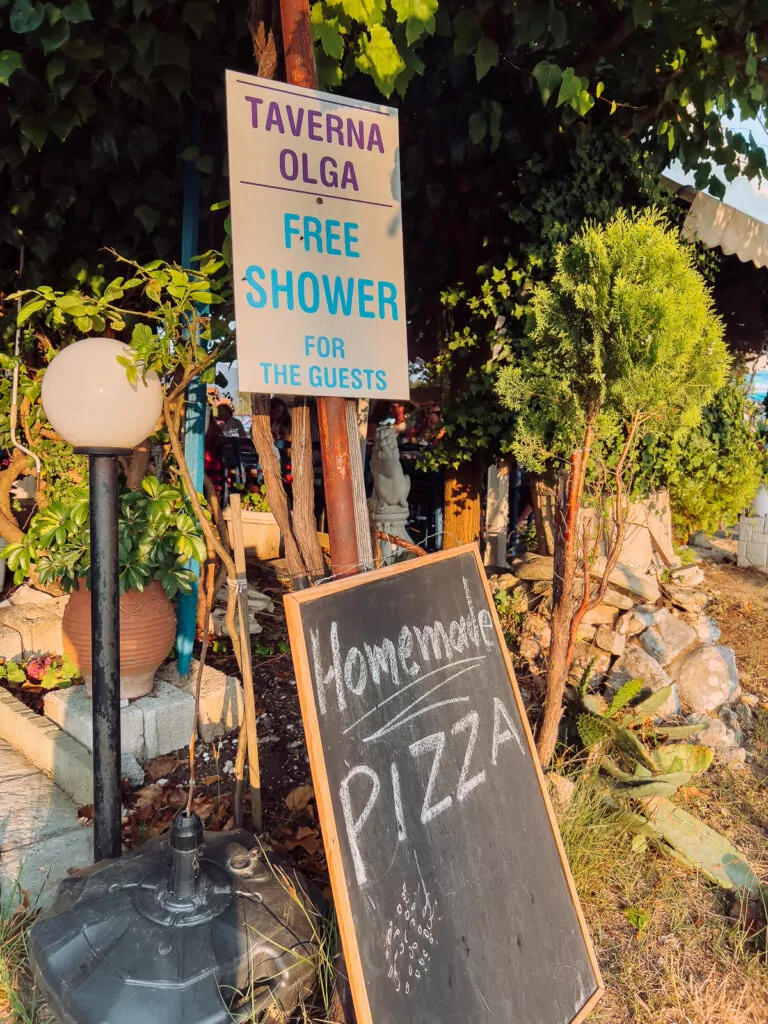
Booking too late
If you’re travelling between June and September, you’ll want to book accommodation 4-6 months in advance, and even earlier if you’ve got a specific hotel in your wishlist.
Greece is one of the most popular tourist destinations in the entire world, decent hotels get fully booked for the entire summer season, and if you book last minute you’ll be stuck with only average places to stay or insanely high prices (or both, the worst combo!).
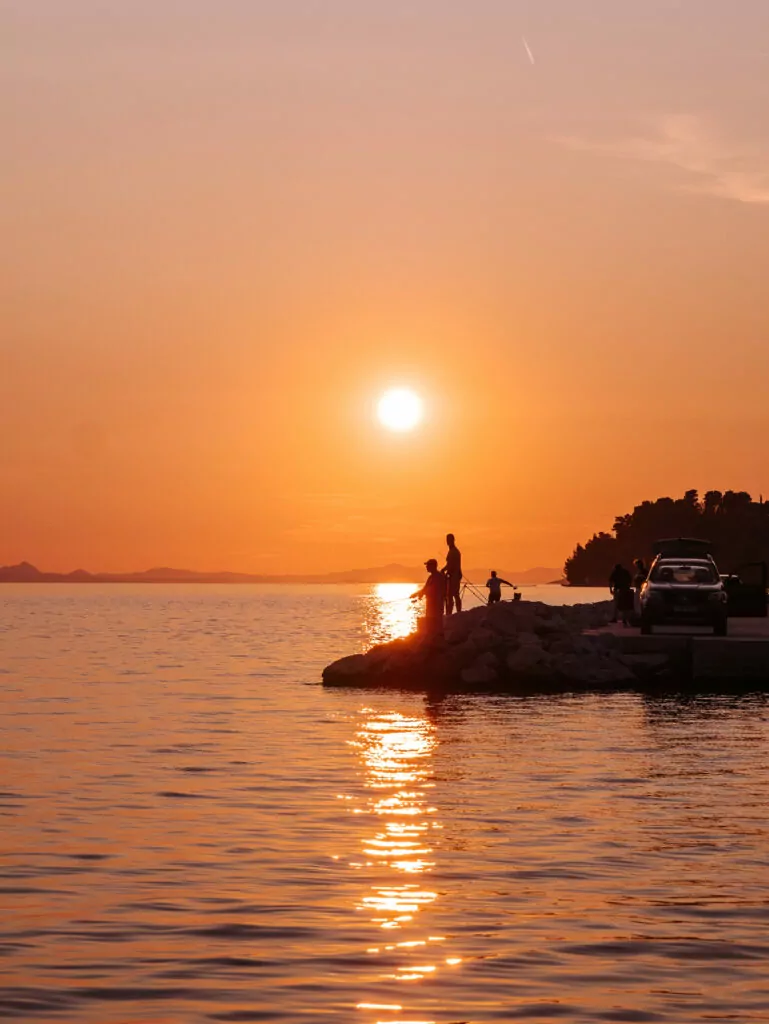
Trying to cram too much in
I totally understand the dream of experiencing a bunch of different islands, but trying to see five islands in 10 days is guaranteed to end in tears.
If you by some miracle make it to everywhere on time with no logistical issues (honestly unlikely), you’ll be exhausted and won’t have had any time to explore beyond the bucket list spots anyway.
Embrace island time and take it slow!
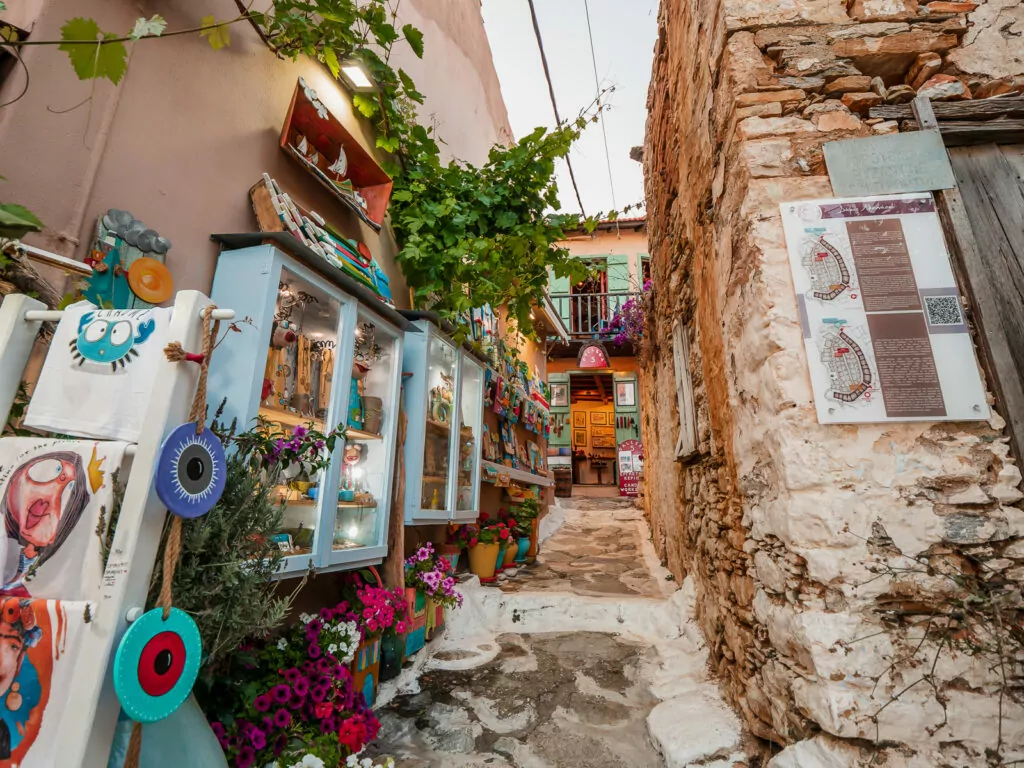
Only visiting Santorini and Mykonos
Suuuurely after reading this far you’ve been convinced to visit more than just the famous islands!
If you’re short on time and can only fit Santorini and Mykonos in this trip, promise me you’ll come back again and choose an island or two from the lesser-known list.
Visiting in summer
I’ll say it again: July/August in Greece are insanely hot, over-crowded and wildly expensive.
May/June and September/October (the outer months for busy places) will be more comfortable in every way.
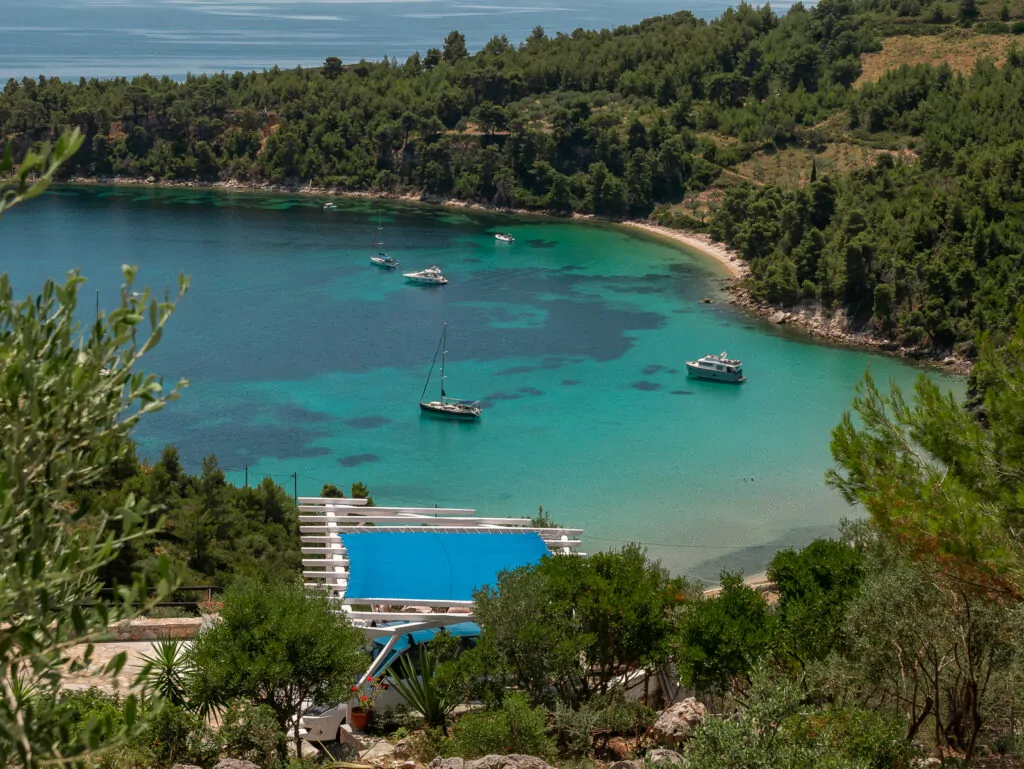
Would you believe that this blog post started as a list of 10 things to know before visiting Greece, but I hyper-fixated and now it’s 10,000 words covering exactly how to plan a trip to Greece on your own 🫠 how do I always do this! ANYWAY…
Planning your first trip to Greece can seem overwhelming, with so many islands to choose from, not-so-smooth logistics to navigate, a hectic summer season and lots of research required before booking. But with time to prep, realistic expectations and a willingness to veer away from the popular tourist trail, this Mediterranean slice of paradise may well be your future favourite country!
If you’ve got any questions about your Greece adventure, drop them in the comments below and I’ll get back to you as soon as I can. And if you’re looking for more specific Greece content, check out the following travel guides:
- Everything you need to know about Skopelos
- Everything you need to know about Alonissos
- Sailing the Ionian Islands with MedSailors
- Sailing the Saronic Islands with MedSailors
Is your trip to Greece part of a bigger Balkan or Europe escape? These itineraries might help you too:
- Two weeks in the Balkans
- Two months in Europe
- Three months in Europe
- Two weeks in Albania without a car
MY GO-TO TRAVEL PLANNING RESOURCES
Flights ✈️ I use Skyscanner to find the best flights for my trip and then I’ll always book direct with the airline to protect myself from having to deal with dodgy third parties if anything goes wrong.
Trains 🚂 If I’m travelling through Europe, I try to travel by train wherever possible! For an extended trip (2+ weeks) I’ll calculate if a Eurail Pass is worth it, or I’ll book point-to-point tickets through RailEurope or the local train operator.
Accommodation 🛎️ I book almost all of my accommodation through booking.com, they have a user-friendly website + app and many of their options are free cancellation, easily cancelled with a simple click of a button.
Activities 🗽I use GetYourGuide, Klook and Viator to look for activities in the places I visit, or I just Google ‘things to do in [city]’! P.S. If you book anything on Klook you can use the promocode FINDINGALEXXKLOOK to get 10% off
Travel cards 💳 I’m a Wise gal through and through, they’ve been my chosen travel card for more than five years now. You can easily top up your card from your bank account or through Apple Pay, convert your money to local currency, and spend money with minimal fees and the best exchange rates around.
Travel insurance 🩺 I use Cover-More NZ travel insurance for my own trips, I have a comprehensive policy and I’ve only had good experiences with them. Cover-More also has an Australian company, but if you’re from elsewhere then two popular insurance options for global travellers are SafetyWing (cheaper policy, lower coverage) and World Nomads (more expensive but significantly better coverage).
Luggage 💼 I travel with Samsonite Cosmolite suitcases, one 75cm check in bag and a 55cm carry on bag, and I absolutely adore them and will never travel with anything else! They are SUPER lightweight (2.8kg and 1.9kg respectively) so I have much more space for my actual stuff.
Camera gear 📸 I use a iPhone 15 Pro Max for phone photos/videos, and my camera kit includes a Lumix S9 (incredible lightweight full-frame camera, a game changer for travel creators!) with a 20-60mm lens, a Lumix G9 with an 8-18mm and 12-60mm lens, a DJI Mini 3 Pro drone and a GoPro Hero 10. I do all my writing and editing on my ASUS Zenbook 14, it’s lightweight but powerful enough for photo editing and intense blogging sessions.
